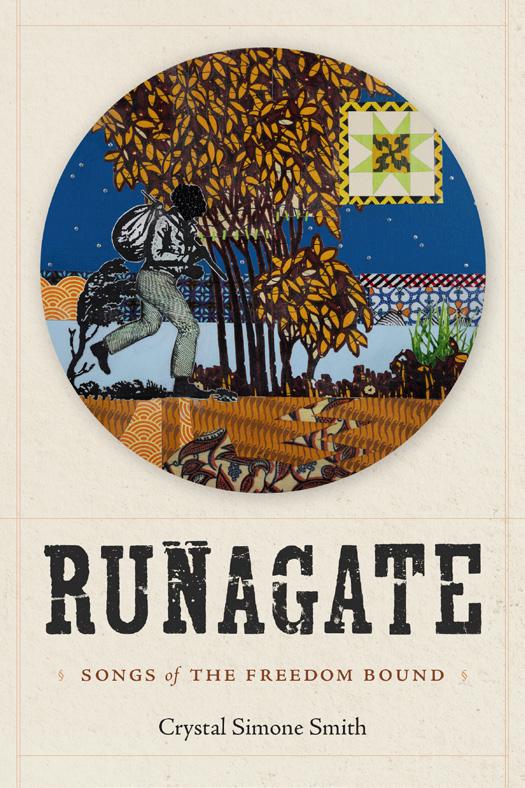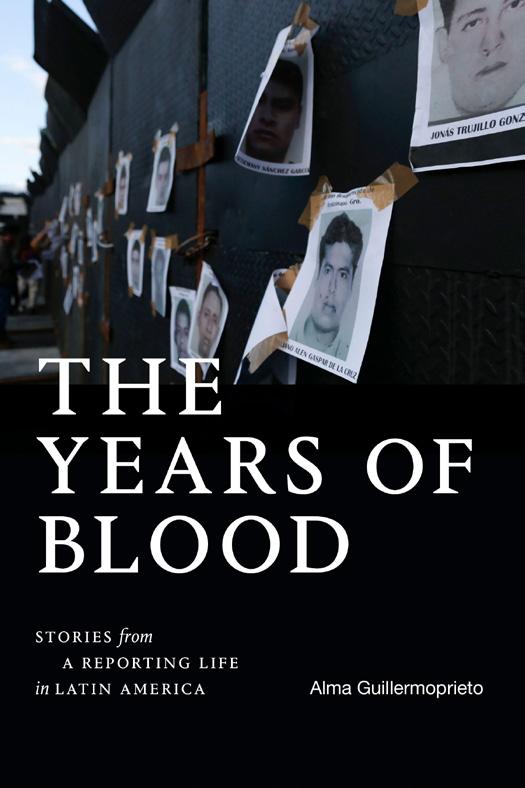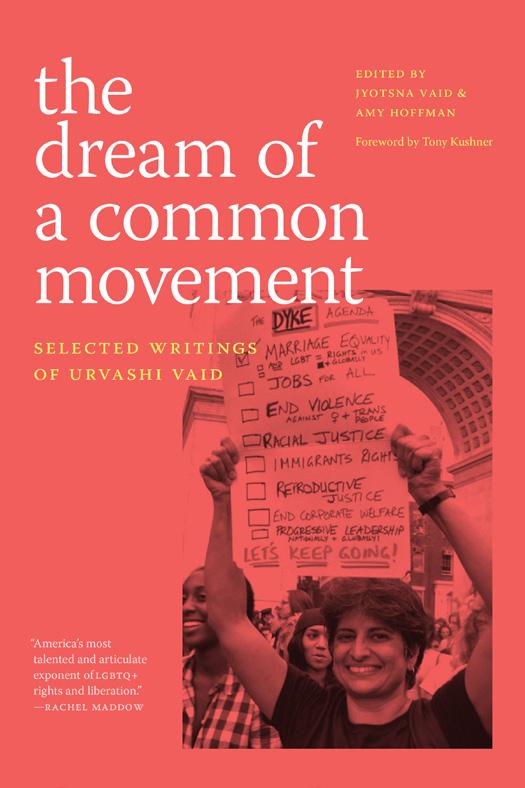duke university press



1 The Dream of a Common Movement Vaid
2 The Years of Blood Guillermoprieto
3 The Witch Studies Reader Chaudhuri and Ward
4 What Had Happened Was Pickens
4 Freeing Black Girls Lomax
5 Runagate Smith
6 Riding Mahdavi
7 The Aesthetics of Resistance, Volume III Weiss
8 Quiet Dawn Fignolé
8 Five Manifestos for the Beautiful World Boswell, Hartman, Oliveira, Pierce, and Rivera Garza
9 These Survivals Huffer
10 Selected Writings, Volume 1 Enwezor
10 Selected Writings, Volume 2 Enwezor
11 Postwar Revisited Enwezor and Gupta
12 Speculative Light Elias
13 Nuyorican and Diasporican Visual Art Dávila and Ramirez
13 Sounds of Black Switzerland Cox
14 Under Pressure Brzezinski
14 Ne me quitte pas Smith
15 From Forest to Steppe Brumfield
16 Slavery and the Invention of Dutch Art Fowler
16 Universal Prostitution and Modernist Abstraction Mansoor
17 Reparations and the Human Eng
18 Abolitionist Intimacies Luibhéid
18 How We Make Each Other Zurn
19 The Personality of Power Massumi
19 The Time beneath the Concrete Abourahme
20 Ice Geographies Smith
21 Bad Medicine Whitt
21 No God but Man Husain
22 Queer Emergent Perez
22 Feminism and the Cinema of Experience Marso
23 Carnalities Ortega
23 Care at the End of the World Kim
24 Federal Sentencing Reporter Berman and Chanenson
24 New Political Science Scerri and Surak
25 Science, Technology, Mobility, and Modernity in French and Francophone Histories Shelford and Soppelsa
25 Thomas Müntzer and the German Peasants' War at 500 Years Goldman and Tomba
25 Economic Miracles and Their Afterlives Kaur and Weinstein
26 Racing the Korean Imaginary Yi and Kim
26 Indigenous Feminisms Across the World, Part II Deb and Candelario
27 Medicaid at 60 Patashnik
27 Workers and the “Golden Age” of Social Democracy? Berger, de Graaf, Fink, and Dixon
28 Sound Carries Jazeel and Western
28 Institutional Dramaturgy Climenhaga, Vercauteren, and Sellar
29 Acting with the World Pickering
29 Subjects of the Sun Lennon
30 Artery Zeiderman
30 Somatic States Billé
31 Informatics of Domination Blas, Jue, and Rhee
31 Technocreep and the Politics of Things Not Seen Atanasoski and Parvin
32 DeepAesthetics Munster
32 Prosthetic Memories Yoon
33 Unmaking Botany Gutierrez
33 Decentralizing Knowledges Rodriguez Medina and Harding
34 Oceanic Becoming Wilson
34 Disaster Nationalism Choi
35 Magic’s Translations Wiener
35 The Future of Futurity Mankekar and Gupta
36 On the Semicivilized Elyachar
36 Men at Home Pandey
37 Boys Abducted Arvas
37 Unruly Comparison Wong
38 Emergent Genders Ho
38 Bangkok after Dark Tausig
39 Remixing Wong Kar-wai Biancorosso
39 Rhetorics of Value Kratz
40 The Fine Art of Persuasion Weisenfeld
41 Gone Gone Meyers
41 The Product of Medicine Gainty
42 The Kidney and the Cane Nading
42 Living and Dying in São Paulo Lesser
43 Doom Patterns Gil'Adí
43 Hemispheric Blackface Roper
44 Afterlives of Discovery restrepo rhodes
44 For Emplacement Blaser
45 Defending Rumba in Havana Berry
45 The Politics of Care Work Amador
46 The New Kingdom of Granada Muñoz-Arbeláez
46 Squatter Life Auyero and Servián
47 The Necromantic State Troconis
47 Contemporary African Screen Worlds Dovey, Agina, and Thomas
48 Poetics of Repair Pieprzak
48 An Unformed Map Janzen
49 The Noise Silence Makes Goshadze
49 Indenture Aesthetics Ellapen
50 Insecurities of Expulsion Hundle
50 Between Families and Institutions Ma
51 Selected Recent Award Winners
52 Journal subscriptions
54 Selected Backlist
Selected Writings of Urvashi Vaid
URVASHI VAID
Edited by Jyotsna Vaid and Amy Hoffman
With a foreword by
Tony Kushner
“Simply put, Urvashi Vaid was America’s most talented and articulate exponent of LGBTQ + rights and liberation during the most consequential period for that movement in our nation’s history. We all live today in a world Urvashi shaped profoundly— she ought to be a household name. This collection of her writings is much needed, timely, and beautifully done."— RACHEL MADDOW
“In this final, moving book by Urvashi Vaid, we find the history of a movement for radical justice, equality, and freedom embodied in the life of one of the most persistent, influential, and brilliant activists and leaders. Vaid tells her own story by documenting the formation of her politics and her youthful but prescient feminism and defense of lesbian and gay rights. The Dream of a Common Movement demonstrates how Vaid remained open to learning more, to collaborating more effectively across a range of issues. We feel her life and her thought, but also the enormous power to change that she surely was.”—
JUDITH BUTLER
The Dream of a Common Movement collects essays, interviews, and speeches by the late feminist and civil rights activist Urvashi Vaid, whose pioneering writing and organizing over the course of four decades fundamentally shaped the lgbtq+ movement. Vaid explores the lgbtq+ movement’s impact on the aids epidemic and its challenges as it developed a national presence. She calls out movement leaders and donors for not addressing gender, race, and class issues and passionately argues that the goal of any liberation movement should be transformation, not assimilation. In personal essays, Vaid describes a double consciousness forged by the experience of immigration and a complicated relationship with her Indian-American and lesbian identities. Whether she was focused on the Donors of Color Network, the 22nd Century Initiative, the Lesbian Political Action Committee, or other initiatives she launched, Vaid was steadfast in her vision of a more just society and believed deeply in the power of people coming together to effect change. Offering a window into the breadth of her progressive vision for social change, this volume inspires readers to never stop organizing and marching.
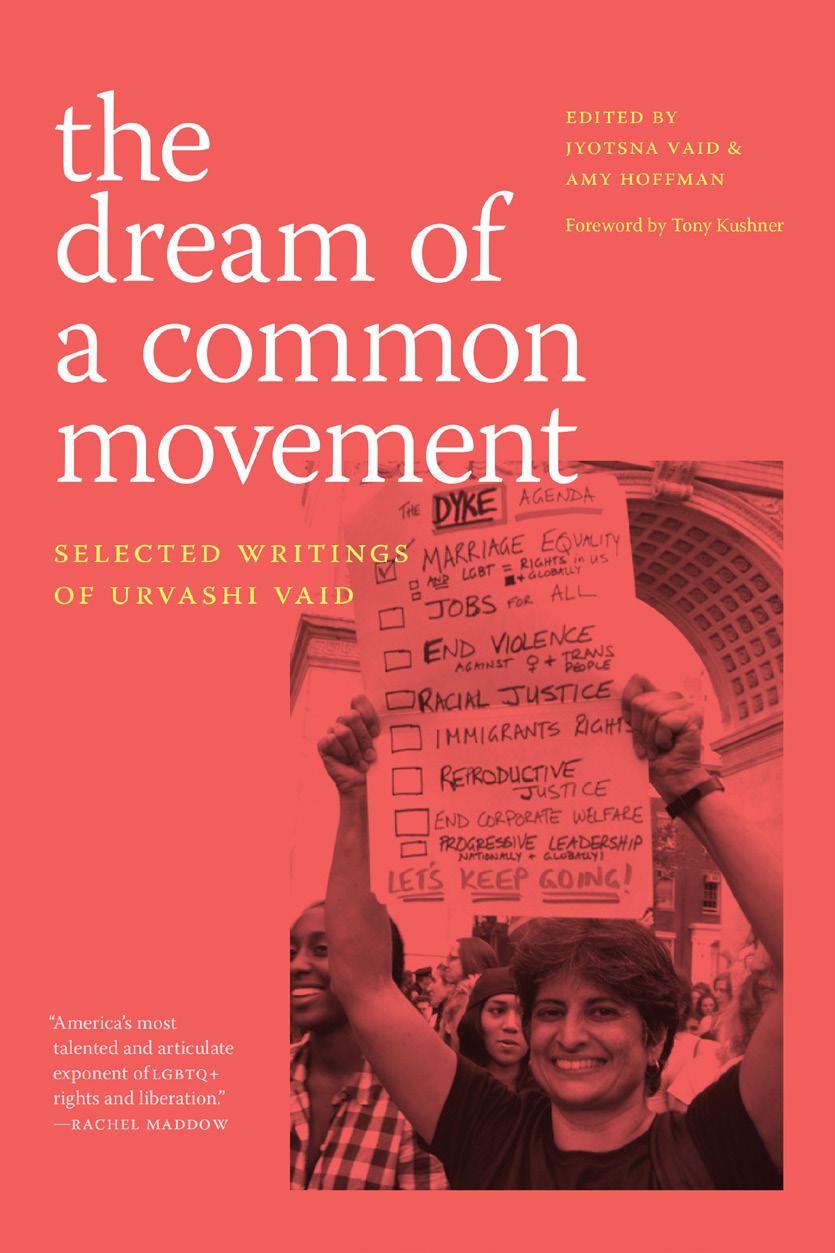
April 296 pages, 12 illustrations paper, 978-1-4780-3162-8 $26.95tr cloth, 978-1-4780-2844-4 $102.95


Urvashi Vaid (1958–2022) was an LGBTQ+ rights activist, lawyer, writer, and the author of Virtual Equality: The Mainstreaming of Gay and Lesbian Liberation
Jyotsna Vaid is Professor of Psychological and Brain Sciences and Women’s and Gender Studies at Texas A&M University.
Amy Hoffman is a writer, editor, activist, and the author of five books.
Tony Kushner is a Pulitzer Prize–winning author, playwright, and screenwriter.
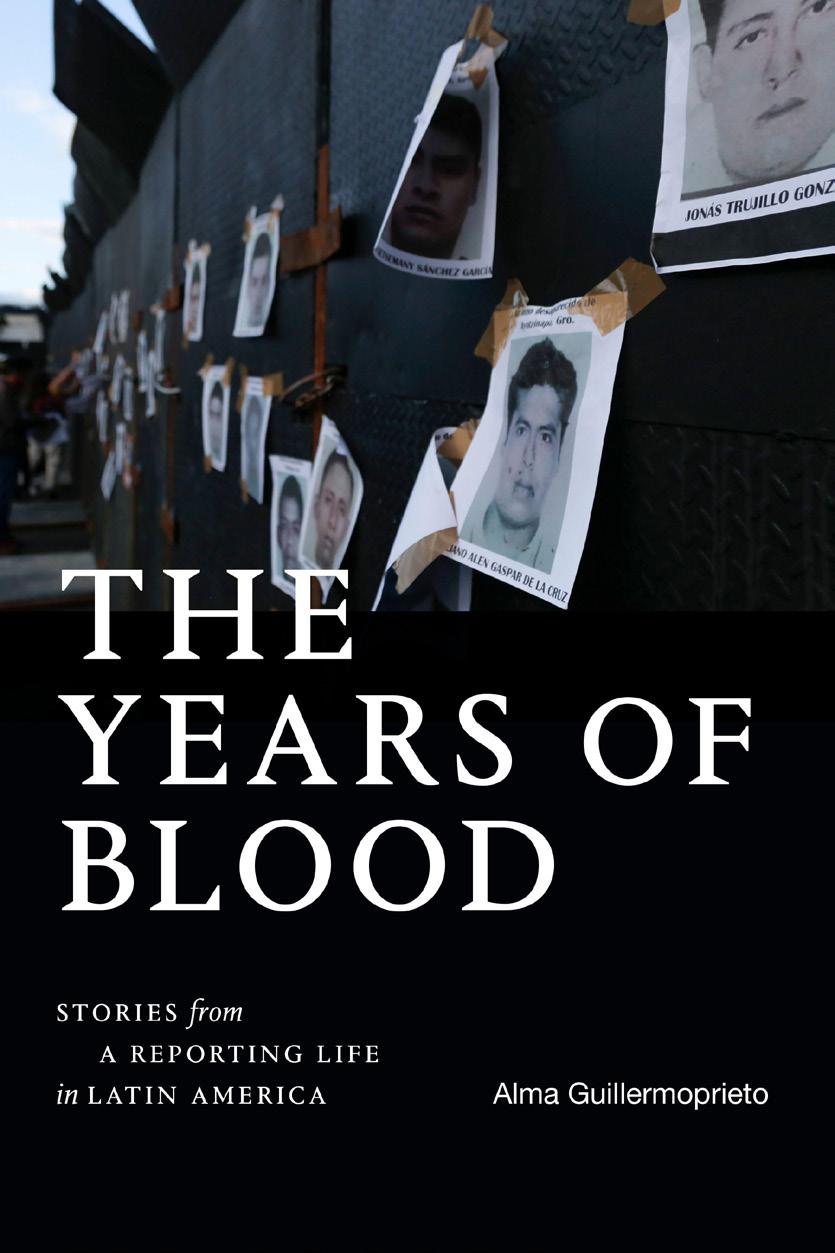
April 256 pages, 2 illustrations paper, 978-1-4780-3139-0 $26.95tr/£20.99 cloth, 978-1-4780-2817-8 $99.95/£83.00

Alma Guillermoprieto’s reports from the field have been published in The New Yorker, The New York Review of Books, and National Geographic magazine. Among many other distinctions, she has received a MacArthur Fellowship and the Princess of Asturias Humanities Award. She is a member of the American Academy of Arts and Sciences and a laureate of the George Polk Awards in Journalism.
“No writer captures the joy and the pain of life in Latin America like Alma Guillermoprieto. This collection goes far beyond the usual headlines to explore the deeper currents shaping the human experiences of everyone who lives in our hemisphere.”
PATRICK IBER , author of Neither Peace nor Freedom: The Cultural Cold War in Latin America
For forty years and more Alma Guillermoprieto has wandered tirelessly over the Latin Americas, interviewing assassins and the families of their victims, talking to street sweepers and artists, rowdy carnival makers and thoughtful politicians (and plenty of rowdy politicians as well). Guillermoprieto draws out common threads in different contexts, like the effects of The War on Drugs in rural and poverty-stricken regions and the experiences of people mixed up in the fray of violence and drug trafficking. At the same time, she shows how Latin American art translates nostalgia and pain into great beauty.
In The Years of Blood, the third volume of her collected stories, she completes her complex and always compelling portrait of the Latin America of our times, in all its tragedy and glory, as it traverses a new era of populism and demagoguery, and tries, yet again, to answer the great unsolved question: How do we change? How do we change our future so that it does not so exhaustingly resemble our past?
AMERICAN ENCOUNTERS/GLOBAL INTERACTIONS
A series edited by Gilbert M. Joseph and Penny M. Von Eschen
SOMA CHAUDHURI and JANE WARD, editors
“In this impressive compendium, materialists and spiritualists, cyborgs and goddesses alike will find much to chew on. Witches of all genders, unite!”— SOPHIE LEWIS, author of Enemy Feminisms: TERFs, Policewomen, and Girlbosses Against Liberation
Stories about witches are by their nature stories about the most basic and profound of human experiences—healing, sex, violence, tragedies, aging, death, and encountering the mystery and magic of the unknown. It is no surprise, then, that witches loom large in our cultural imaginations. In academia, studies of witches rarely emerge from scholars who are themselves witches and/ or embedded in communities of witchcraft practitioners. The Witch Studies Reader brings together a diverse group of scholars, practitioners, and scholar-practitioners who examine witchcraft from a critical decolonial feminist perspective that decenters Europe and departs from exoticizing and pathologizing writing on witchcraft in the global South. The authors show how witches are keepers of suppressed knowledges, builders of new futures, exemplars of praxis, and theorists in their own right. Throughout, they account for the vastly different national, political-economic, and cultural contexts in which “the witch” is currently being claimed and repudiated. Offering a pathbreaking transnational feminist examination of witches and witchcraft that upends white supremacist, colonial, patriarchal knowledge regimes, this volume brings into being the interdisciplinary field of feminist witch studies.
Contributors Maria Amir, Ruth Asiimwe, Bernadette Barton, Ethel Brooks, Shelina Brown, Ruth Charnock, Soma Chaudhuri, Carolyn Chernoff, Saira Chhibber, Simon Clay, Krystal Cleary, Adrianna L. Ernstberger, Tina Escaja, Laurie Essig, Marcelitte Failla, D Ferrett, Marion Goldman, Jaime Hartless, Margaretha Haughwout, Patricia Humura, Apoorvaa Joshi, Govind Kelkar, Oliver Kellhammer, Ayça Kurtoğlu, Helen Macdonald, Isabel Machado, Brandy Renee McCann, Dev Nathan, Mary Jo Neitz, Amy Nichols-Belo, Allison (or AP) Pierce, Emma Quilty, Anna Rogel, Karen Schaller, Jacquelyn Marie Shannon, Shashank Shekhar Sinha, Gabriella V. Smith, Nathan Snaza, Shannon Hughes Spence, Eric Steinhart, Morena Tartari, Nicole Trigg, Katie Von Wald, Tushabe wa Tushabe, Jane Ward

March 528 pages, 11 illustrations paper, 978-1-4780-3135-2 $29.95/£23.99 cloth, 978-1-4780-2813-0 $119.95/£99.00


Soma Chaudhuri is Associate Professor of Sociology at Michigan State University.
Jane Ward is Professor of Feminist Studies at the University of California, Santa Barbara.

March 96 pages paper, 978-1-4780-3149-9 $23.95tr/£17.99 cloth, 978-1-4780-2828-4 $89.95/
In her debut poetry collection, What Had Happened Was, Therí Alyce Pickens investigates the complex structures of Black storytelling. Addressing topics ranging from Black life, popular culture, and history to individual encounters with emotion, love, and chronic disability, Pickens crafts and questions the stories we tell ourselves about who we are and who we want to be. Throughout, Pickens mines the formal structures and the play of Black English within the lives and afterlives of Harriet Tubman, Mary J. Blige, Li’l Kim, Breonna Taylor, and figments of our collective imagination. Her singular poetic voice effortlessly flows between what she knows and what she’s heard and between everyday Black conversation and her work in cultural criticism and disability studies. Travelling at the speed of thought, Pickens explores a praxis of storytelling governed by the places where truths and fables kiss.
Therí Alyce Pickens is Charles A. Dana Professor of English and Africana at Bates College and author of Black Madness :: Mad Blackness, also published by Duke University Press, and New Body Politics: Narrating Arab and Black Identity in the Contemporary United States
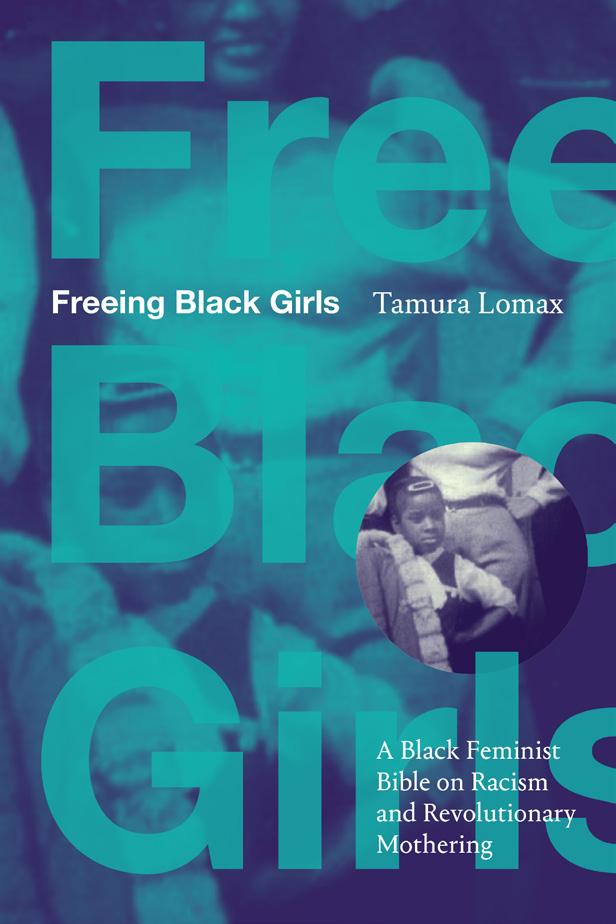
May 240 pages, 15 illustrations paper, 978-1-4780-2837-6 $24.95tr/£18.99 cloth, 978-1-4780-2477-4 $94.95/£79.00
Gender studies/Black studies/Religious studies
A Black Feminist Bible on Racism and Revolutionary Mothering TAMURA LOMAX
In Freeing Black Girls, Tamura Lomax offers an insurgent feminist love letter to Black girls, women, mothers, and othermothers. Exploring what it means to mother Black children in the twenty-first century, Lomax shares her journey from her traditionalist Black girlhood to finding the path to revolutionary Black motherhood. Along the way, she shows how all Black people are endangered by white supremacist capitalist heteropatriarchal dominance and emphasizes the power of looking and talking back. Lomax insists on Black feminist ways of living that value and nourish whole persons, sketching a radical dream that will allow Black women and girls to survive America while being able to love themselves, others, and collective Black freedom. Ultimately, Lomax declares that Black women and girls are emphatically not defective, second-class, or immanent nurturers; they are sacred and revolutionary beings who deserve to live a life free of predation, patriarchy, misrecognition, misogynoir, and violence.
Tamura Lomax is Associate Professor of Religious Studies at Michigan State University and author of Jezebel Unhinged: Loosing the Black Female Body in Religion and Culture, also published by Duke University Press.
“In this engaging experiment in archive interpretation and poetic form, Crystal Simone Smith centers the voices of freedom seekers and survivors of US chattel enslavement with an intimacy and simplicity that gives these ancestors room to breathe. Each poem quiets the reader and bids her to listen longer.”— ALEXIS PAULINE GUMBS, author of Survival Is a Promise: The Eternal Life of Audre Lorde
“Runagate is a collection of poems that looks the harsh truths of slavery in the eye and turns its savagery into sorrow songs and temples of beauty. Crystal Simone Smith refuses to abstract the dead. She illuminates our human capacities to be virtuous or lethal, to still ourselves or steal our freedom. Her artful narratives about slavery are powerfully imagined because the poet deals in facts and truths about American slavery that few have told with this much clarity.”—
TIMOTHY B. TYSON
, author of The Blood of Emmett Till
“Crystal Simone Smith’s poetry sparkles with clarity—haiku allows nothing less. She offers searing attention to the wounds of the past. The imagery and formal look of each poem on the page also reveal her gifts as a visual artist. Here are poems our ancestors deserve.”—TSITSI JAJI , author of Mother Tongues
Crystal Simone Smith’s new poetry collection, Runagate, reimagines the experiences of enslaved and formerly enslaved persons in a stark and chilling response to the archives of chattel slavery: bills of sale, interviews, narratives, and fugitive runaway ads. Embodying the aesthetics and Japanese poetic forms haiku and tanka, her poems bear witness to the brutal and horrifying treatment of enslaved people and contrast their humanity with the inhumanity of their enslavers. In these poems, fugitive persons evade slave patrol hounds by climbing magnolia trees, use the cover of night and the detritus of a shipwreck to swim to freedom, and find temporary refuge in a cabin where a woman offers bread and water. Throughout, Smith poignantly envisions their flights to freedom—passages that were fueled by love, hope, and impossible dreams. She unceasingly gives voice to those who found courage in both bondage and freedom. In Runagate, the enslaved regain their stories and return to the sensory world.
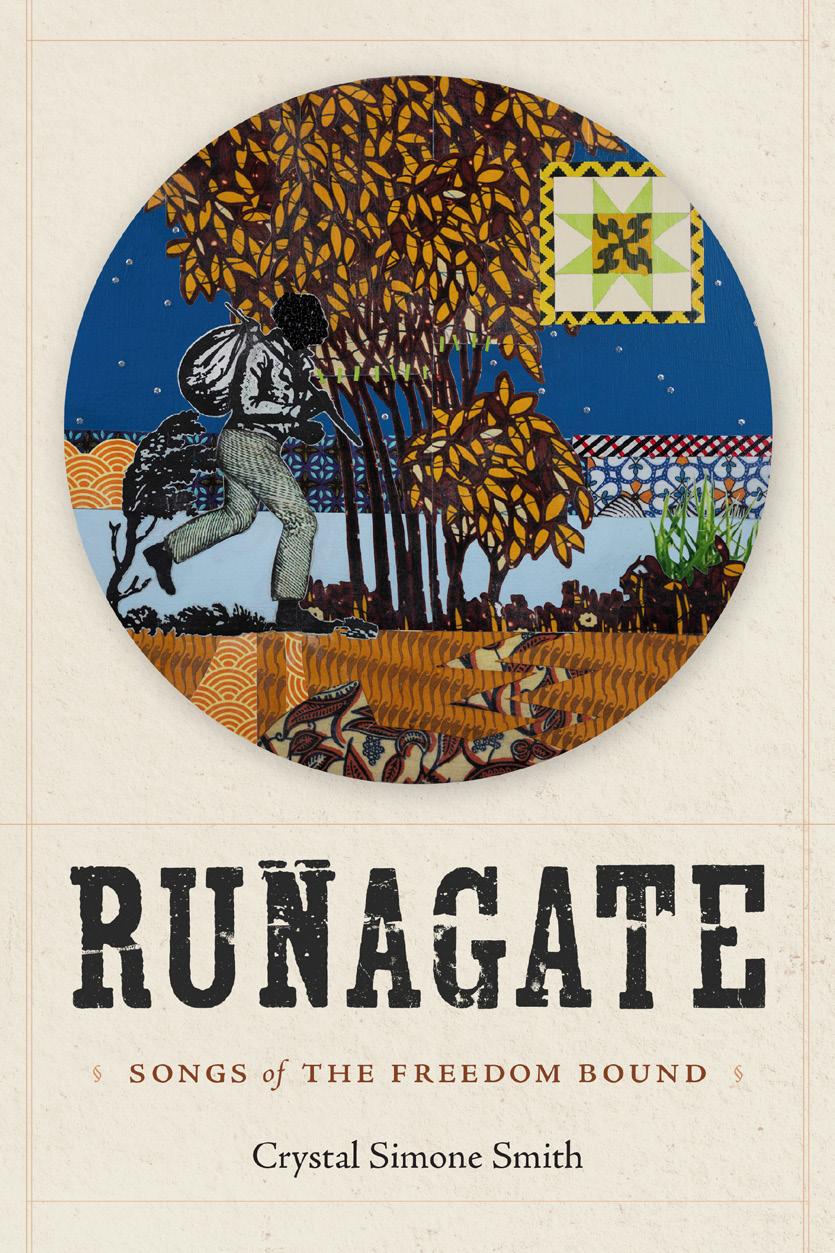
May 96 pages paper, 978-1-4780-3181-9 $24.95tr/£18.99 cloth, 978-1-4780-2858-1 $94.95/£79.00

Crystal Simone Smith is Instructor of the Thompson Writing Program at Duke University and author of Dark Testament: Blackout Poems

March 96 pages, 2 illustrations paper, 978-1-4780-3155-0 $15.95tr/£12.99 cloth, 978-1-4780-2840-6 $84.95/£74.00

“Riding is a compelling story about failure, feminism, and freedom, mixed with tantalizing glimpses of an Iran that Americans never see. It is a fast, exhilarating read, like a good gallop!”— ANNE-MARIE SLAUGHTER , author of Unfinished Business: Women Men Work Family
“This impassioned memoir introduces readers to the thrill of riding as ultimate reciprocity, inspiring us to rethink what we mean by learning. In the process, we discover the lineaments of beauty in the ardent commitment to a feminism rethought across species and against the background of a country’s tragedy. Mesmerizing.”— COLIN DAYAN, author of Animal Quintet: A Southern Memoir
In Riding, Pardis Mahdavi meditates on the lessons learned over a lifetime of horseback riding and the falling, failing, and joy it brings. At once a history of Caspian horses, an exploration of Mahdavi’s Iranian-American identity and family history, and a reflection on the capacity for self-reflection and self-compassion through human-animal relationships, Riding offers a roadmap for learning to live in harmony with the self and environment around us. Mahdavi shows how her relationship with horses gives her insights into intergenerational strength and tools for healing intergenerational trauma. Riding from the mountains of Iran to the beaches of California, Mahdavi shares her love affair with horses, rediscovers a homeland she longs for, and ultimately, finds her strength.
PRACTICES
A series edited by Margret Grebowicz
Also of interest
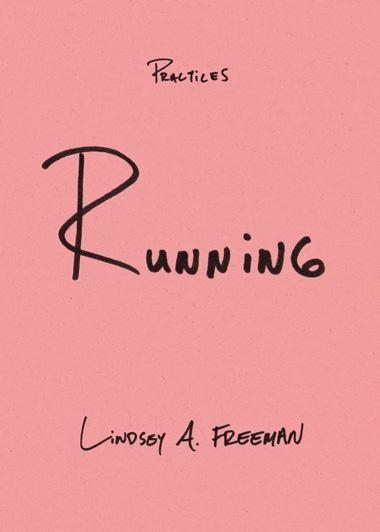

Running Lindsey A. Freeman paper, $15.95tr/£12.99
978-1-4780-1965-7 / 2023
Fly-Fishing
Christopher Schaberg paper, $15.95tr/£12.99
978-1-4780-1936-7 / 2023
A Novel
PETER WEISS
Translated from the German by Joel Scott
A major literary event, the publication of the final volume of Peter Weiss’s three-volume novel The Aesthetics of Resistance makes one of the towering works of twentieth-century German literature available to English-speaking readers for the first time. Weiss’s crowning achievement, The Aesthetics of Resistance spans the period from the late 1930s to the end of World War II, dramatizing antifascist resistance and the rise and fall of proletarian political parties in Europe.
Volume III, initially published in 1981, teems with characters, many of whom are based on historical figures. It commences in May of 1940, as the narrator’s parents flee Nazi forces in Eastern Europe and reunite with their son in Sweden. While in Stockholm, the narrator and other Communist activists living in exile struggle to build structures in the German underground. The story then follows Communist resistance fighter Charlotte Bischoff, as she is smuggled to Bremen on a freighter. In Berlin, she contacts the narrator’s friends and joins the Red Orchestra resistance group. Soon, the Gestapo cracks the underground workers’ code, arrests a number of its members, and takes them to Plötzensee Prison, where most of them are executed. Featuring the narrator’s meditations on paintings, sculpture, and literature throughout, The Aesthetics of Resistance demonstrates the affinity between political resistance and art. Ultimately, Weiss argues that we must look to art for new models of political action and social understanding.
Peter Weiss (1916–1982) was a German playwright, novelist, filmmaker, and painter. His works include the plays The New Trial, also published by Duke University Press, and Marat/Sade, and the novels The Shadow of the Body of the Coachman and The Conversation of the Three Walkers. He received West Germany’s most important literary award, the Georg Büchner Prize, posthumously in 1982. Joel Scott is a translator, editor, and writer. He is the translator of volume II of The Aesthetics of Resistance and the author of several poetry chapbooks, the most recent being Bildverbot and Diary Farm

Volume I TRANSLATED BY JOACHIM NEUGROSCHEL
Volume II
TRANSLATED BY JOEL SCOTT
“One of the most significant works of postwar German literature. . . . Exhilaratingly strange, compelling, and original. Readers who dare to enter this demanding verbal landscape will not come away empty-handed.”— MARK M. ANDERSON, Bookforum
“For the right reader, The Aesthetics of Resistance offers unique rewards. . . . The book is a search for the ideal named in its title: an art that equals the masterpieces of the past in complexity and power, while standing up against the unjust order that created those masterpieces.”— ADAM KIRSCH, New York Review of Books
May 200 pages, 1 illustration paper, 978-1-4780-3161-1 $26.95tr/£20.99 cloth, 978-1-4780-2843-7 $102.95/£85.00
Translated and with an Introduction by Laurent Dubois and Kaiama L. Glover
A Novel of Haiti
Jean-Claude Fignolé’s Quiet Dawn tells an enthralling story of Haiti’s transition from French colony to independent Black republic. The swirling, multilayered novel provides intimate portraits of an eighteenth-century slaveholder, his wife, and their enslaved laborers set against the devastating backdrop of slavery and revolution. Into this Gothic colonial tale, Fignolé interweaves a series of tragic events involving a present-day French nun doing penance for the sins of her ancestors. One of the few contemporary Haitian novels to explicitly grapple with Haiti’s revolution, Quiet Dawn foregrounds issues of race, power, the continuing legacy of historical trauma, and the unresolved tensions between the past and present. Published in French in 1990 and appearing here in English for the first time, Quiet Dawn forcefully pushes against the silencing of Haiti’s past, belying its title to depict a clamorous Atlantic world that comprises Europe, Africa, and the vast expanse of the Americas.
Jean-Claude Fignolé (1941–2017) was a Haitian author, poet, cofounder of Haiti’s Spiralist literary movement, and the author of several novels in French. Laurent Dubois is John L. Nau III Bicentennial Professor of the History and Principles of Democracy at the University of Virginia. Kaiama L. Glover is Professor of African American Studies and French at Yale University.
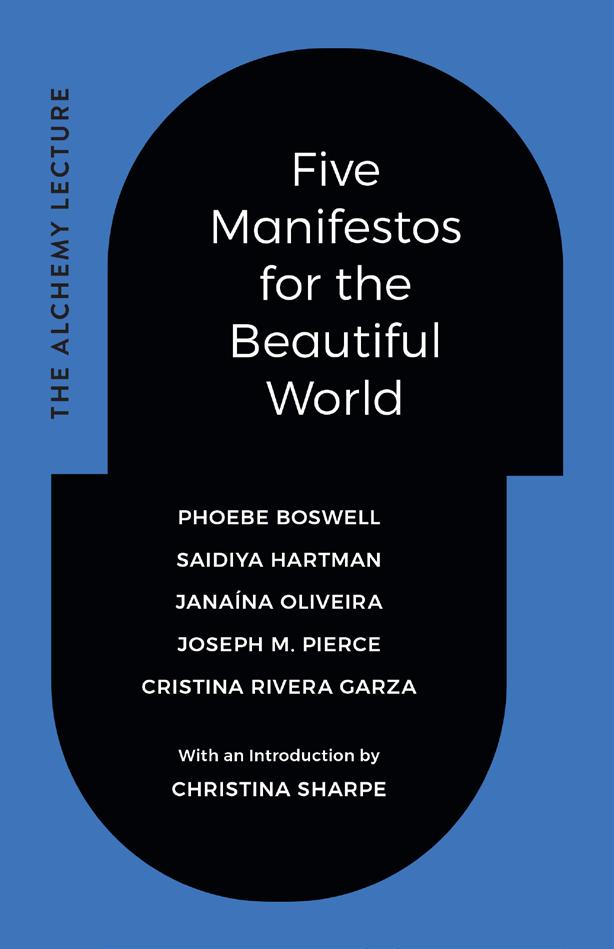
January 176 pages paper, 978-1-4780-3218-2 $24.95 cloth, 978-1-4780-2894-9 $94.95
Theory and Philosophy
The Alchemy Lecture PHOEBE BOSWELL, SAIDIYA HARTMAN, JANAÍNA OLIVEIRA, JOSEPH M. PIERCE, and CRISTINA RIVERA GARZA
The second annual Alchemy Lecture brought together five artists, thinkers, and writers who proposed new ways of being and discussed radical visions for the future. Five Manifestos for the Beautiful World captures and expands these lectures to illuminate our path toward this possible beautiful world. Joseph M. Pierce (Cherokee Nation) asserts that “for this decolonial future to become possible, the guiding force must no longer be capital but relations.” Film curator Janaína Oliveira (Brazil) evokes music and movement as a means toward this relationality. Visual artist Phoebe Boswell (UK/Kenya) asks, “If we burn down the institution, what happens next?” Saidiya Hartman (US) prompts us to consider our capacity to burn, examining whether “the gift of pragmatism yields a profound tolerance of the unlivable.” Cristina Rivera Garza (US/Mexico) gives us the language of the future in the subjunctive, “the smuggler who crosses the border of the future bearing unknown cargo.” Each alchemist is intimately concerned with this cargo, our ability to bear its weight, and how we might find the beautiful world together.
Phoebe Boswell is an artist whose work is held in collections including the British Museum, LACMA, and RISD. Saidiya Hartman is University Professor of English and Comparative Literature at Columbia University. Janaína Oliveira is a film curator and professor at the Federal Institute of Rio de Janeiro. Joseph M. Pierce is Associate Professor in the Department of Hispanic Languages and Literature at the State University of New York at Stony Brook. Cristina Rivera Garza is M.D. Anderson Professor in Hispanic Studies at the University of Houston. Christina Sharpe is the Canada Research Chair in Black Studies in the Humanities at York University.
Autobiography of an Extinction
LYNNE HUFFER
“Lynne Huffer insists on the fragmentary, improvisational nature of anything that can be taken to be whole. This is the profound philosophical stance that informs the book; form and substance combine to convey it. She places her trust in fragments to somehow capture meanings that are otherwise reductive or unattainable. And there is a certain delightful whimsy, a sense of freed-up ability to express herself, that informs it all. At the same time, she offers seriousness and philosophical depth in an entirely new way. These Survivals is a remarkably original book and an objet d’art that one will want to own and share.”—
JOAN WALLACH SCOTT, author of The Fantasy of Feminist History
“These Survivals is a brilliant philosophical, aesthetic, and emotional guide to feeling, seeing, and thinking ecological and human devastation. Powerful, spare, and exquisitely subtle, this is auto without ego. There is also a novel method on offer, though possibly Lynne Huffer alone has the rare sensibility to pursue it.”—
WENDY BROWN, Institute for Advanced
Study
A collage-style work in fragments, Lynne Huffer’s These Survivals brings together philosophy, memoir, poetry, and original multimedia artworks to articulate an ethics of living on a devastated planet. Focusing on climate change and mass species extinction, Huffer approaches ruination through assemblages rendered in sharp-edged prose, vibrant color images, and experimental features that include black-out poems, weather reports, and abecedarian essays. She considers her struggles with everyday life and confronts the immensity of extinction across the expanse of geological time, recognizing the self’s insignificance in the context of the planet’s 4.5-billion-year existence. As she moves across autobiographical, political, and literary registers, her abiding theme is the repeated phrase: the fragment remains while the whole crumbles. At every turn, Huffer insists on the fragmentary, provisional nature of anything taken to be whole as well as the impartial conditions under which we write, at times experienced as constraint and, at others, freedom. Reveling in interruption, obliquity, and layering, Huffer opens space for thought to emerge in unexpected and innovative ways—ways that are grounded in the material practices of writing and living.
WRITING MATTERS!
A series edited by Alexis Pauline Gumbs, Monica Huerta, Erica Rand, and Jerry Zee



May 208 pages, 126 color illustrations paper, 978-1-4780-3157-4 $30.00/£23.99 cloth, 978-1-4780-2836-9 $125.00/£103.00

Huffer is Samuel Candler Dobbs Professor of Philosophy at Emory University and the author of, most recently, Foucault’s Strange Eros

May 456 pages, 72 color illustrations paper, 978-1-4780-3152-9 $40.00tr/£32.00 cloth, 978-1-4780-2831-4 $145.00/£120.00

May 512 pages, 82 color illustrations paper, 978-1-4780-3156-7 $40.00tr/£32.00 cloth, 978-1-4780-2834-5 $145.00/£120.00


Volume 1
Toward a New African Art Discourse
Edited by Terry Smith
“Okwui Enwezor was one of a kind in every respect. In a mere twenty-five years, he single-handedly transformed the culture of contemporary art by fully integrating African and African Diaspora artists into a global understanding of modern and contemporary practice. His hugely influential writings were vital to his overall project of recasting the entire discourse on twentieth- and twenty-first-century African and Afro-Diaspora art. These volumes' depth and range of selections represents the sheer comprehensiveness of Enwezor’s achievement and will extend his work’s ongoing impact.”—
KOBENA MERCER , author of Travel & See: Black Diaspora Art Practices since the 1980s
"Arguably the most influential curator of his generation.”—THE GUARDIAN
“Okwui was a giant, a trailblazer, and his legacy is more urgent than ever.”— HITO STEYERL , e-flux
“[Okwui Enwezor] has achieved no less than changing the course of art.”— JÖRG HEISER , Frieze
Okwui Enwezor is widely regarded as a leader among the brilliant curators who emerged in the 1990s to set agendas for understanding the global expansiveness of contemporary art. Among his pathfinding exhibitions were the second Johannesburg Biennial (1997), the paradigm-shifting Documenta 11 (2002), Archive Fever (2008), and Postwar (2016). In addition to his groundbreaking curatorial work, Enwezor was also a prolific critic, essayist, and theorist. Selected Writings—a landmark two-volume set—brings together Enwezor’s most influential and foundational works. Spanning a quarter-century, these selections reflect the depth and breadth of Enwezor’s writing and its role in his tireless efforts to decolonize the art world. Volume 1, Toward a New African Art Discourse, includes fifteen essays written between 1994 and 2006, while Volume 2, Curating the Postcolonial Condition, includes seventeen essays written between 2006 and 2019. Drawn from exhibition catalogs, art journals, interviews with artists, art reviews, curatorial statements, historical studies, and book chapters, these texts show Enwezor striving to fulfil the two main ambitions that drove his career: to found and sustain what he called a “New African Art Discourse” and to enable a critical, diasporic imagining of postcoloniality that would become pervasive within global art discourse. Demonstrating that his writing helped fulfill these goals, Selected Writings reaffirms Enwezor’s status as a transformational figure in the global contemporary art world.
Okwui Enwezor (1963–2019) was an internationally recognized and pathbreaking art curator, the former director of Haus der Kunst, founder of Nka: Journal of Contemporary Art, and the coauthor of numerous books and exhibition catalogs. Terry Smith is Andrew W. Mellon Emeritus Professor of Contemporary Art History and Theory at the University of Pittsburgh and Professor at Large, The Africa Institute, Global Studies University, Sharjah.
OKWUI ENWEZOR and ATREYEE GUPTA, editors
“Okwui Enwezor envisioned the vectors of art and discourse zigzagging within the historical paradigm of postcolonial globality. Witness his momentous 2002 Documenta, his 2015 Venice Biennale ( All the World’s Futures), and his sweeping periodization of twentieth-century art history: Postwar, Postcolonial, Post-Communism. The Postwar exhibition offered divergent radicalities, so do the related, multiauthored books, including this anthology coedited with art historian Atreyee Gupta. Committed to ‘thinking historically in the present,’ Enwezor articulated for the art world a complex dynamic of the contemporary.”— GEETA KAPUR , author of When was Modernism: Essays on Contemporary Cultural Practice in India
Okwui Enwezor’s 2016 exhibition, “Postwar: Art Between the Pacific and the Atlantic, 1945–1965,” redefined the history of art produced in those two decades. Nearly a decade later, Postwar Revisited returns to these debates to present an image of a historical period in which Western conceptions of art, aesthetics, and philosophy are all thrown into intense flux after Auschwitz and Hiroshima while the cultural energies of decolonization generate myriad artistic and intellectual practices that re-engage the links that connect art to life itself. Focusing on modernist artists, artist collectives, and architects canonical to dissonant regional traditions as well as traveling exhibitions and patronage systems, the contributors produce a new understanding of emergent postwar global art. Provoking new ways of thinking, engaging, and narrating art history, Postwar Revisited is essential reading for those interested in debates on global art history and global modernism, the intersections between art and decolonization, the cultural aspects of the Cold War and the Non-Aligned Movement, and modern and contemporary art more generally.
Contributors Iftikhar Dadi, Okwui Enwezor, Patrick D. Flores, Hal Foster, Boris Groys, Atreyee Gupta, Elizabeth Harney, Jennifer Josten, Vivian Li, Tara McDowell, Alexandra Munroe, Nada Shabout, Terry Smith, Jenni Sorkin, Ming Tiampo

March 360 pages, 80 color illustrations paper, 978-1-4780-3145-1 $35.00/£27.99 cloth, 978-1-4780-2822-2 $125.00/£103.00


Okwui Enwezor (1963–2019) was an internationally recognized and pathbreaking art curator, the former director of Haus der Kunst, founder of Nka: Journal of Contemporary Art, and the coauthor of numerous books and exhibition catalogs.
Atreyee Gupta is Associate Professor of Global Modern Art and South and Southeast Asian Art at the University of California, Berkeley.
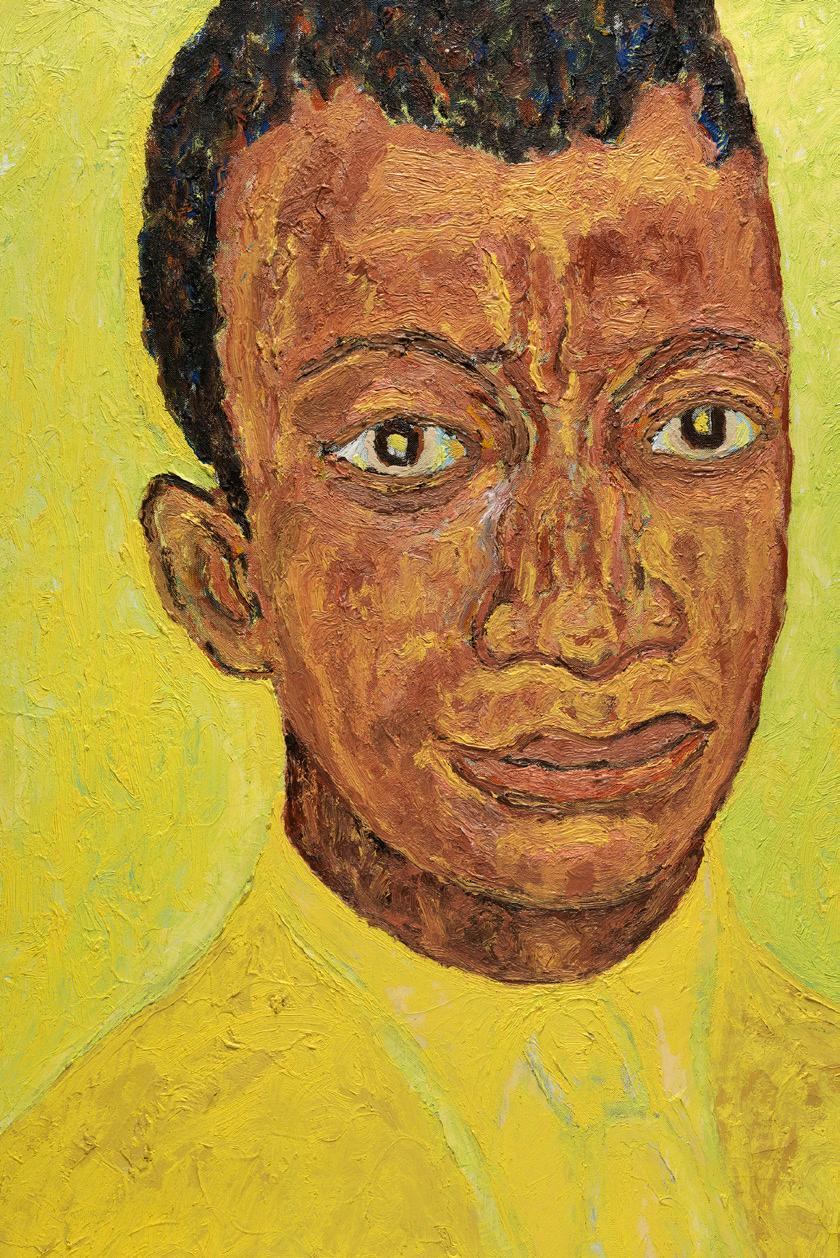
Edited by Amy J. Elias
February 352 pages, 57 illustrations, including 33 in color paper, 978-1-4780-3005-8 $35.00/£27.99 cloth, 978-1-4780-2487-3 $125.00/£103.00
Amy J. Elias is Chancellor’s Professor and Director of the Denbo Center for Humanities and the Arts at the University of Tennessee, Knoxville. She is the author of Sublime Desire: History and Post-1960s Fiction, coeditor of Time: A Vocabulary of the Present, and coeditor of The Planetary Turn
The Arts of Beauford Delaney and James Baldwin
AMY J. ELIAS, editor
“This is a vibrant, timely, and vital collection of essays that illuminate how we can read James Baldwin through Beauford Delaney’s paintings and see Delaney’s paintings through Baldwin’s writing. Placing the lives and works of these two close friends side by side tells us much about kinship, intimacy, and craft, not only in relation to Delaney and Baldwin but in African American culture more broadly.”— DOUGLAS FIELD, author of Walking in the Dark: James Baldwin, My Father, and Me
“James Baldwin was most moving when recalling the aesthetic education he received from Beauford Delaney—who taught him both how to listen, ‘to hear [in Black music] what I had never dared or been able to hear,’ and how to see ‘and . . . trust what I saw.’ Speculative Light bears extraordinary witness to the lives of two men, devoted to their craft, moving always in the direction of wonder and uncertainty, buoyed by that loving and shared sense of attunement.”— STEPHEN BEST, author of None Like Us: Blackness, Belonging, Aesthetic Life
Over the course of a thirty-eight-year friendship, painter Beauford Delaney and writer James Baldwin shared their private lives and shaped one another’s artistic values. Speculative Light brings together scholars, critics, and artists who analyze the stylistic and historical import of Delaney’s and Baldwin’s works and examine how this friendship fundamentally shaped their ideas about art and life. The book’s contributors explore how the two men, sharing identities as queer Black American artists first in New York and then as expatriates in France, created a speculative space in their work to think about more just and creative Black futures. Essay topics and issues range from masculinity, queerness, Blackness, and Americanness to the relationship between jazz, painting, and writing. Throughout, the contributors establish a positive history for Delaney’s and Baldwin’s arts that refuses a subordinate role to white artists of the modernist avant-garde. Ultimately, Speculative Light demonstrates that Delaney and Baldwin’s bond provides revolutionary grounds for theorizing contemporary Black art and life.
Contributors Hilton Als, Nicholas Boggs, Indie A. Choudhury, Shawn Anthony Christian, Rachel Cohen, Amy J. Elias, Monika Gehlawat, David Leeming, D. Quentin Miller, Fred Moten, Walton M. Muyumba, Robert O’Meally, Ed Pavlić, Levi Prombaum, Robert Reid-Pharr, Tyler T. Schmidt, Abbe Schriber, Jered Sprecher, Stephen C. Wicks, Magdalena Zaborowska
ARLENE DÁVILA and YASMIN RAMIREZ, editors
Although Puerto Rican artists have always been central figures in contemporary American and international art worlds, they have largely gone unrecognized and been excluded from art history canons. Nuyorican and Diasporican Visual Art provides a critical survey of Puerto Rican art production in the United States from the 1960s to the present. The contributors assert the importance and contemporaneity of the Nuyorican art movement by tracing its emergence alongside other American vanguardist movements, highlighting its innovations, and exploring it as an expression of Puerto Rican culture beyond New York to include cities such as Chicago, Philadelphia, and Orlando. They also foreground the contributions and radical aesthetics of female, Black, and queer Puerto Rican artists. Following the expansion and decentralization of the Puerto Rican diaspora and its artistic output, this volume is a call to action for scholars, curators, and artists to address the historical inequalities that have marginalized Diasporican artists and reassess the presence of Puerto Rican artists.
Contributors Joseph Anthony Cáceres, Taína Caragol, Arnaldo M. Cruz-Malavé, Deborah Cullen-Morales, Arlene Dávila, Kerry Doran, Elizabeth Ferrer, Yomaira C. Figueroa-Vásquez, Al Hoyos-Twomey, Teréz Iacovino, Johnny Irizarry, Johana Londoño, Gabriel Magraner, Nikki Myers, Urayoán Noel, Néstor David Pastor, Yasmin Ramirez, Melissa M. Ramos Borges, Raquel Reichard, Rojo Robles, Abdiel D. Segarra Ríos, Wilson Valentín-Escobar
Arlene Dávila is Professor of Anthropology and American Studies at New York University and author, most recently, of Latinx Art: Artists, Markets, and Politics, also published by Duke University Press. Yasmin Ramirez is Adjunct Professor of Art at the City College of New York and an independent curator who has collaborated with The Bronx Museum, El Museo del Barrio, and Taller Boricua, among others.
Black studies/Music
Blackness, Music, and Unthought Voices
JESSIE COX
Writing as a scholar, composer, and musician, Jessie Cox foregrounds the experience of Black Swiss through sound and music in his first book, Sounds of Black Switzerland Cox, himself Black Swiss, affirms the value of Black life through sound while critiquing anti-Blackness as a cause of erasure, silence, and limitation. He examines Swiss-Nigerian composer Charles Uzor’s pieces for George Floyd, work by Black Swiss musicians such as DJ Maïté Chénière, clarinetist Jérémie Jolo, and rapper NATIV, and his own musical collaborations with the Lucerne Festival. In these analyses, Cox tackles the particularities of antiblackness in Switzerland, creating a practice of listening beyond what can be directly heard to explore the radical potential of Black thought and experience in a nation often claimed to be race-free. In so doing, he ultimately shifts thinking about Blackness in relation to citizenship, immigration laws, gender, kinship, and belonging. By listening to Black Swiss and other voices inaudible to the current world, Cox theorizes new ways of practicing scholarly study and general ways of relating to others and the world.
Jessie Cox is Assistant Professor of Music at Harvard University.
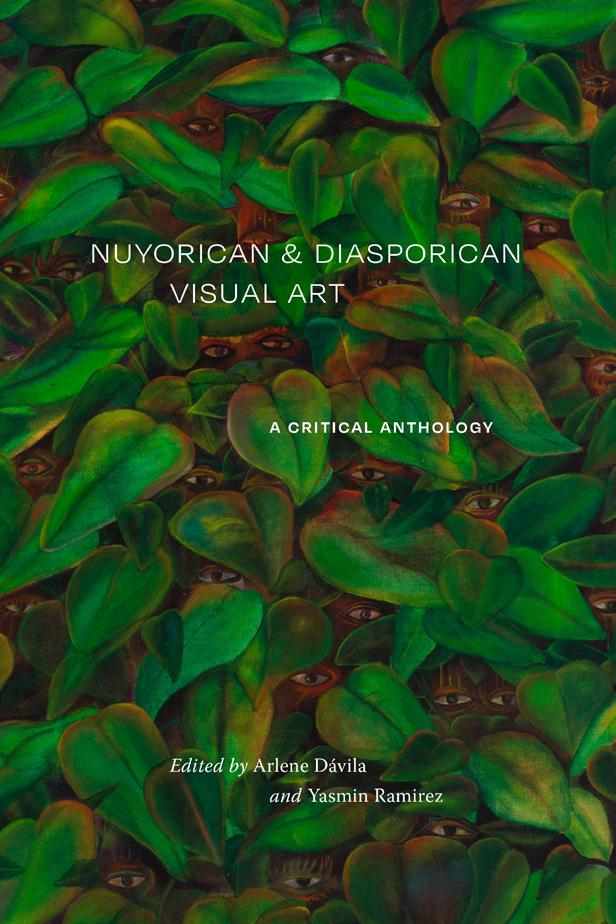
January 464 pages, 79 illustrations paper, 978-1-4780-3121-5 $34.95tr/£27.99 cloth, 978-1-4780-2695-2 $139.95/£116.00

February 272 pages, 9 illustrations paper, 978-1-4780-3143-7 $27.95/£21.99 cloth, 978-1-4780-2821-5 $104.95/£87.00

February
978-1-4780-3119-2
$19.95tr/£15.99 cloth, 978-1-4780-2697-6
$84.95/£74.00
A Song by
David Bowie and Queen MAX BRZEZINSKI
In 1981, David Bowie and Queen both happened to be in Switzerland: They met and made “Under Pressure.” Recorded on a lark, the song broke the path for subsequent pop anthems. In Under Pressure, Max Brzezinski tells the classic track’s story, charting the relationship between pop music, collective politics, and dominant institutions of state, corporations, and civil society. Brzezinski shows that, like all great pop anthems, “Under Pressure” harnesses collective sentiments in order to model new ways of thinking and acting. As we continue to live under the sign of the global oppressive power the song names, analyzes, and attempts to move beyond, we remain, in Bowie and Freddie Mercury’s phrase, under pressure.
SINGLES
A series edited by Emily J. Lordi and Joshua Clover
Max Brzezinski is the author of Vinyl Age: A Guide to Record Collecting Now

February 160 pages
paper, 978-1-4780-3146-8 $19.95tr/£15.99 cloth, 978-1-4780-2825-3 $84.95/£70.00
A Song by Jacques Brel and Interpreted by Nina Simone and Others MAYA ANGELA SMITH
In 1959, Belgian singer-songwriter Jacques Brel wrote and performed “Ne me quitte pas” [Don’t Leave Me], a visceral and haunting plea for his lover to come back. As a teenager, Maya Angela Smith was so captivated by Nina Simone’s powerful 1965 cover of the song that it inspired her to be a French professor. In Ne me quitte pas, Smith follows the classic song’s long and varied journey, from Brel’s iconic 1966 performance on French television to Simone’s cover to Shirley Bassey’s English-language version [“If You Go Away”] to its contemporary manifestations in popular culture. Throughout, Smith shows that as the song travels across languages, geographies, genres, and generations, it accumulates shifting artistic and cultural significance as each listener creates their own meaning with it.
SINGLES
A series edited by Emily J. Lordi and Joshua Clover
Maya Angela Smith is Professor of French in the French and Italian Studies Department at the University of Washington.
Also in this series


Hound Dog paper, $19.95/£16.99
978-1-4780-2508-5 / 2023
Roadrunner paper, $19.95/£16.99
978-1-4780-1439-3 / 2021
The Russian Art of Building in Wood
WILLIAM CRAFT BRUMFIELD
“In its geographical and disciplinary span this book represents William Craft Brumfield’s scholarly lifetime of research, reflection, and on-the-ground experience with Russian architecture. Brumfield’s unmatched tenacity in searching out and documenting a full range of surviving works, no matter how difficult to reach, is combined here with his vast collection of photographs amassed over the decades from forays into frozen, mosquito-infested, and out-of-the-way regions. It is rare to read a work of this scope, maturity, and stature.”— JOHN BELDON SCOTT, author of Architecture for the Shroud: Relic and Ritual in Turin
Throughout Russian history, local craftsmen have shown remarkable skill in fashioning wood into items of daily use, from bridges and street paving to carts and boats to household utensils and combs. Russia has the largest forested zone on the planet, so its architecture was also traditionally made from timber. From homes to churches to forts, Russian buildings are almost all, underneath, constructed with logs, often covered by plank siding or by lathing and plaster.
In From Forest to Steppe, renowned scholar and photographer William Craft Brumfield offers a panoramic survey of Russia’s centuries-long heritage of wooden architecture. Lavishly illustrated with nearly 400 color photographs, the volume links log-built barns, windmills, houses, and churches in the Far North; Buddhist shrines in the Transbaikal region; and eighteenth-century palaces on the outskirts of Moscow. Brumfield also takes readers to the estate houses of many of Russia’s literary giants, from Chekhov and Tolstoy to Dostoevsky and Pushkin. Spanning thousands of photographed sites, five decades of field work, and seven time zones, Brumfield’s photographs offer compelling evidence of the adaptability of log construction and its ability to transcend class, cultural, and aesthetic boundaries.
In the decades since Brumfield began photographing Russian architecture, many of the buildings he has documented have been demolished, abandoned, and left to rot at alarming rates. Brumfield observes a contradiction in contemporary Russia: it acknowledges the cultural importance of wooden buildings yet struggles to find and dedicate the resources and solutions needed to save them. A hymn and elegy to the long Russian practice of building with wood, From Forest to Steppe is an unparalleled look into one of the world’s most singular architectural traditions.
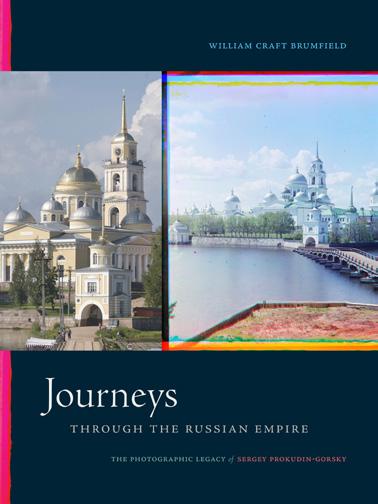


June 448 pages, 410 color photographs, 6 maps cloth, 978-1-4780-2824-6 $50.00tr/£39.00

William Craft Brumfield is Professor of Slavic Studies at Tulane University. He is the author, editor, and photographer of numerous books, including Journeys through the Russian Empire: The Photographic Legacy of Sergey Prokudin-Gorsky, Architecture at the End of the Earth: Photographing the Russian North, and Lost Russia: Photographing the Ruins of Russian Architecture, all also published by Duke University Press.
Journeys through the Russian Empire
The Photographic Legacy of Sergey Prokudin-Gorsky cloth, $49.95tr/£40.00
978-1-4780-0602-2 / 2020
Architecture at the End of the Earth
Photographing the Russian North cloth, $42.95tr/£32.00
978-0-8223-5906-7 / 2015
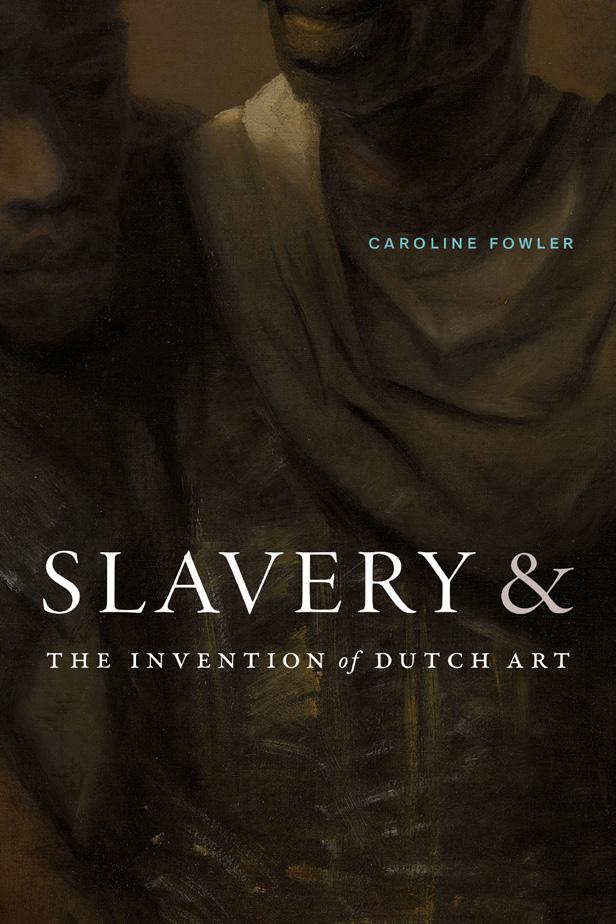
January 176 pages, 52 illustrations, including 16 in color paper, 978-1-4780-3132-1 $30.00/£23.99 cloth, 978-1-4780-2809-3 $125.00/£103.00
CAROLINE FOWLER
In Slavery and the Invention of Dutch Art, Caroline Fowler examines the fundamental role of the transatlantic slave trade in the production and evolution of seventeenth-century Dutch art. Whereas the sixteenth-century image debates in Europe engaged with crises around the representation of divinity, Fowler argues that the rise of the transatlantic slave trade created a visual field of uncertainty around picturing the transformation of life into property. Fowler demonstrates how the emergence of landscape, maritime, and botanical painting were deeply intertwined with slavery’s economic expansion. Moreover, she considers how the development of one of the first art markets was inextricable from the trade in human lives as chattel property. Reading seventeenth-century legal theory, natural history, inventories, and political pamphlets alongside contemporary poetry, theory, and philosophy from Black feminism and the African diaspora, Fowler demonstrates that ideas about property, personhood, and citizenship were central to the oeuvres of artists such as Rembrandt van Rijn, Hercules Segers, Frans Post, Johannes Vermeer, and Maria Sibylla Merian and therefore inescapably within slavery’s grasp.
Caroline Fowler is Starr Director of the Research and Academic Program at the Clark Institute. She is the author of The Art of Paper: From the Holy Land to the Americas and Drawing and the Senses: An Early Modern History
Art history/Marxism
May 264 pages, 35 illustrations, including 8 in color paper, 978-1-4780-3175-8 $35.00/£27.99 cloth, 978-1-4780-2852-9 $125.00/£103.00
In Universal Prostitution and Modernist Abstraction, Jaleh Mansoor provides a counternarrative of modernism and abstraction and a reexamination of Marxist aesthetics. Mansoor draws on Marx’s concept of prostitution—a conceptual device through which Marx allegorized modern labor—to think about the confluences of generalized and gendered labor in modern art. Analyzing works ranging from Édouard Manet’s Olympia and Georges Seurat’s The Models to contemporary work by Hito Steyerl and Hannah Black, she shows how avant-garde artists can detect changing modes of production and capitalist and biopolitical processes of abstraction that assign identities to subjects in the interest of value’s impersonal circulation. She demonstrates that art and abstraction resist modes of production and subjugation at the level of process and form rather than through referential representation. By studying gendered and generalized labor, abstraction, automation, and the worker, Mansoor shifts focus away from ideology, superstructure, and culture toward the ways art indexes crisis and transformation in the political economic base. Ultimately, she traces the outlines of a counter-praxis to capital while demonstrating how artworks give us a way to see through the abstractions of everyday life.
Jaleh Mansoor is Associate Professor of Art History, Visual Art, and Theory at the University of British Columbia and author of Marshall Plan Modernism: Italian Postwar Abstraction and the Beginnings of Autonomia, also published by Duke University Press.
DAVID L. ENG
“No other work demonstrates the critical relevance of psychoanalysis to justice more powerfully than David L. Eng’s Reparations and the Human. Animating the intersections of postcolonial American studies, Black feminist and Indigenous critique of sovereignty, law, and the human, and Transpacific Cold War critique, Eng theorizes the psychic dimension of reparation with deep literary insight. A book anyone seeking a way beyond the nomos of the post-Enlightenment planet must read.”— LISA YONEYAMA , author of Cold War Ruins: Transpacific Critique of American Justice and Japanese War Crimes
“David L. Eng upends previous assumptions about what reparation is, showing how the very category of the human is structured by whether subjects are worthy of reparation. A brilliant, creative, learned, and utterly compelling book.”— LETI VOLPP, Robert D. and Leslie Kay Raven Professor of Law in Access to Justice, University of California, Berkeley School of Law
The Holocaust and the atomic bombings of Hiroshima and Nagasaki invoked in graphic terms the specter of total human destruction. In response, a new international order of reparations and human rights arose from the ashes of WWII. This legal regime sought to subrogate the sovereignty of the nation-state in order to defend the sovereignty of the human being. While the Holocaust’s history is settled—Nazis were perpetrators and Jews were victims—there remains little historical consensus as to the victims and perpetrators of the atomic bombings. In Reparations and the Human, David L. Eng investigates a history of reparations across the Transpacific. He analyzes how concepts of reparation established during colonial settlement and the European Enlightenment shape contemporary configurations of the human and human rights, establishing who can be recognized as victims, who must be seen as perpetrators, and who deserves repair. As demands for reparations now occupy center stage in debates concerning unresolved legacies of dispossession and Transatlantic slavery, Eng considers how the Cold War Transpacific provides a limit case for the politics of repair and definitions of the human.

April 184 pages, 3 illustrations paper, 978-1-4780-3186-4 $25.95/£19.99 cloth, 978-1-4780-2862-8 $99.95/£83.00
David L. Eng is Richard L. Fisher Professor of English and Faculty Director of the Program in Asian American Studies at the University of Pennsylvania. He is the author of The Feeling of Kinship: Queer Liberalism and the Racialization of Intimacy and Racial Castration: Managing Masculinity in Asian America and coauthor of Racial Melancholia, Racial Dissociation: On the Social and Psychic Lives of Asian Americans, all also published by Duke University Press.
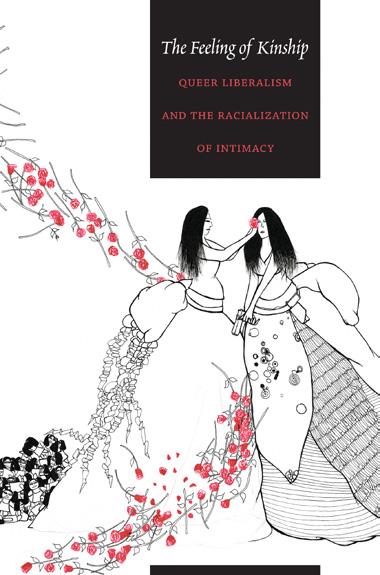
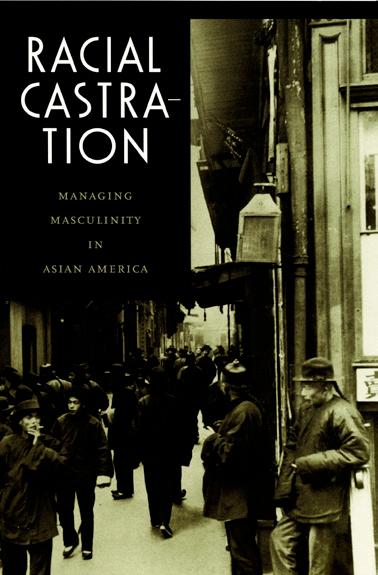
The Feeling of Kinship Queer Liberalism and the Racialization of Intimacy paper, $27.95/£21.99
978-0-8223-4732-3 / 2010
Racial Castration
Managing Masculinity in Asian America paper, $28.95/£22.99
978-0-8223-2636-6 / 2001
May 256 pages, 1 illustration paper, 978-1-4780-3123-9 $26.95/£20.99 cloth, 978-1-4780-2802-4 $102.95/£85.00
Queer and Trans Migrants against the Deportation State EITHNE LUIBHÉID
In Abolitionist Intimacies, Eithne Luibhéid examines writings by and about queer- and trans-identified migrants and allies who contest pervasive US immigration practices and work toward a future without detention, deportation, and border controls. Luibhéid shows how these migrants and activists confront such controls by mobilizing intimacies—forging close connections in order to survive in the present. From forms of kinship beyond the heterosexual nuclear family to networks of solidarity, intimacies allow queer and trans migrants and allies to challenge the infrastructures that support the deportation state: proposed pathways to citizenship for undocumented migrants; marriage as a means for legalization; traffic interactions as a pipeline to deportation; and queer and trans migrant detention. In the process, activists and theorists have advanced new visions and configurations of possible intimacies that not only challenge deportation but also rework what immigration control and citizenship could mean. By focusing on these abolitionist efforts as well as the publicly available records on queer and trans deportees, Luibhéid highlights the new understandings that emerge when the experiences of queer and trans people are centered.
Eithne Luibhéid is Professor of Gender and Women’s Studies at the University of Arizona and author of Pregnant on Arrival: Making the Illegal Immigrant and Entry Denied: Controlling Sexuality at the Border

January 328 pages, 8 illustrations paper, 978-1-4780-3130-7 $28.95/£22.99 cloth, 978-1-4780-2806-2 $107.95/£89.00
Trans studies/Higher education
Trans Life at the Edge of the University PERRY ZURN
Trans people have always lived in the cracks of institutions—and the university is no exception. In How We Make Each Other, Perry Zurn tells the stories of how trans people make and live their lives at the edges of the university in ways that sometimes lead to policy change but always leave participants and institutions different than they were before. Using the Five Colleges in Massachusetts as a case study, Zurn notes that Amherst College, Hampshire College, Mount Holyoke College, Smith College, and the University of Massachusetts, Amherst, have been at the forefront of developing trans-inclusive policies in higher education, often in response to student organizing. Zurn focuses on the stories of trans students, staff, faculty, and community members within and alongside these institutions, exploring how they have built themselves and each other. Drawing on official archives as well as over 100 interviews, Zurn shows how trans people in the Five Colleges have made history, forged resistance habits, and cultivated hope.
Perry Zurn is Visiting Associate Professor of Feminist, Gender, and Sexuality Studies at Cornell University, Provost Associate Professor of Philosophy at American University, author of Curiosity and Power: The Politics of Inquiry, coauthor of Curious Minds: The Power of Connection, and coeditor of Trans Philosophy
“I am the Chosen One!” With this exclamation Donald Trump crowns the national exceptionalism his base upholds with a claim of personal exceptionalism. He leaves no doubt as to the emotional note: “I am your vengeance!” He personifies reaction for the masses. Except, in today’s microsegmented social media environment the “masses” no longer exist. Fascism’s cultural conditions have shifted. In The Personality of Power, Brian Massumi retheorizes the conditions of contemporary fascism through the prism of Trump’s persona. Older theories based on identification of the masses with a charismatic leader no longer hold. Rather, an affective regime of reaction agitates bodies and orients lives at the molecular level. Massumi examines this agitation in relation to race, gender, personhood, and conspiracy thinking. The Personality of Power is a political treatise on fascism and its precursor movements, coupled with a philosophical inquiry into becoming reactionary as a collective process. Massumi calls the very concept of the person into question, asking what collective personhood means concretely. Nothing less than an alternative political logic is needed, turned to the task of thinking collective individuation.
THOUGHT IN THE ACT
A series edited by Erin Manning and Brian Massumi
Brian Massumi is a Canadian philosopher and social theorist, and, until recently, Professor of Communication at the University of Montreal. He is the author of many books, including Couplets, Ontopower, The Power at the End of the Economy, and Parables for the Virtual, all also published by Duke University Press.
Middle East studies/Settler colonial studies
Time beneath the Concrete Palestine between Camp and Colony NASSER ABOURAHME
In The Time beneath the Concrete, Nasser Abourahme argues that settler colonialism is always as much an attempt to conquer time as it is to conquer land. Taking Palestinian refugee camps, created in the fallout of the eliminatory violence of Israel’s founding, as his primary object, Abourahme shows how these camps become the primary place where settler colonial attempts to dominate space and time encounter indigenous refusal. Seen from the camps, Israel becomes a settler-colonial project defined by its inability to move past the past—a project stuck at its foundational moment of conquest. At the same time, the Palestinian insistence on return is a refusal to abide by the closure of the past into settler futurity. Palestinian struggle does not just happen in the open time of dispossession, it happens over this time. That struggle, Abourahme demonstrates, is a form of anticolonial refusal that draws its power not from any decisive finality, but precisely from irresolution and keeping time open.
DUKE UNIVERSITY PRESS SCHOLARS OF COLOR FIRST BOOK AWARD
Nasser Abourahme is Assistant Professor of Middle Eastern and North African Studies at Bowdoin College.
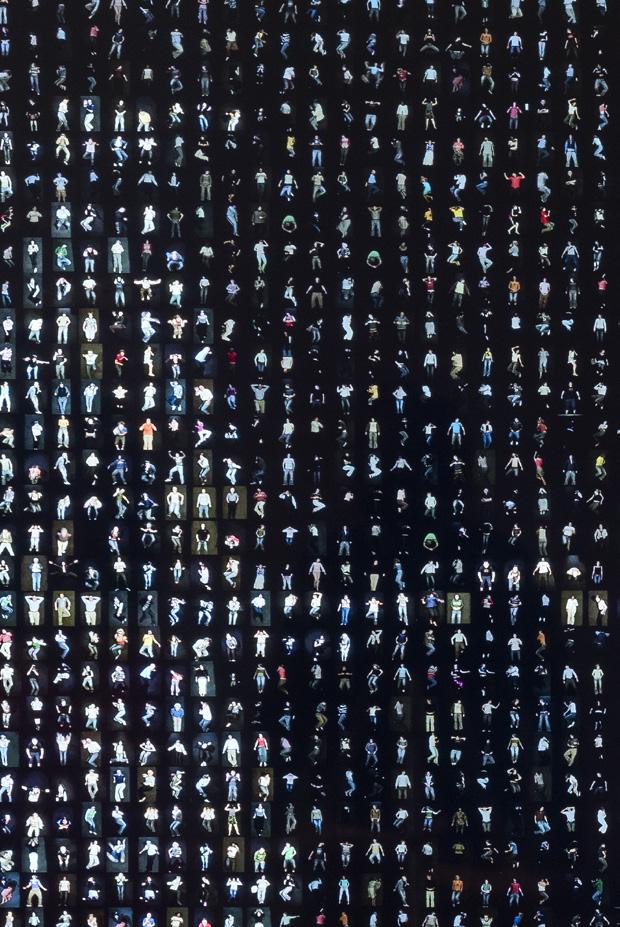

February 248 pages, 14 illustrations paper, 978-1-4780-3144-4 $27.95/£21.99 cloth, 978-1-4780-2823-9 $104.95/£87.00

May 248 pages, 29 illustrations, including 10 in color paper, 978-1-4780-3177-2 $28.00/£21.99 cloth, 978-1-4780-2853-6 $125.00/£103.00
Jen Rose Smith is Assistant Professor of American Indian Studies and Geography at the University of Washington.
The Colonial Politics of Race and Indigeneity in the Arctic JEN ROSE SMITH
“In this stunning book Jen Rose Smith makes visible the imperial norms that are embedded in how we think about ice geographies. She shows how these norms do the explicit and implicit work of racialization and dispossession while demonstrating that ice, which is far from neutral, sits at the center of some of the most commonly held ideas in the West about humanity, life, and history. Ice Geographies will make a major impact in Native and Indigenous studies, environmental studies, literary studies, and ethnic studies.”— Hi'ilei Julia Kawehipuaakahaopulani Hobart , author of Cooling the Tropics: Ice, Indigeneity, and Hawaiian Refreshment
“Jen Rose Smith’s innovative use of particularly Alaska Native but also other Indigenous literatures as a theoretical form will inspire many scholars, as will the clarity of her interdisciplinary arguments that tie how ice has been used to support projects of white supremacy and colonization. The expansiveness of Smith’s theoretical vision and the precision of her analysis make Ice Geographies a truly original work.”—
BATHSHEBA DEMUTH, author of Floating Coast: An Environmental History of the Bering Strait
Ice animates the look and feel of climate change. It is melting faster than ever before, causing social upheaval among northern coastal communities and disrupting a more southern, temperate world as sea levels rise. Economic, academic, and activist stakeholders are increasingly focused on the unsettling potential of ice as they plan for a future shaped by rapid transformation. Yet, in Ice Geographies, Jen Rose Smith demonstrates that ice has always been at the center of making sense of the world. Ice as homeland is often at the heart of Arctic and sub-Arctic ontologies, cosmologies, and Native politics. Reflections on ice have also long been a constitutive element of Western political thought, but it often privileges a pristine or empty “nature” stripped of power relations. Smith centers ice to study race and indigeneity by investigating ice relations as sites and sources of analysis that are bound up with colonial and racial formations as well as ice geographies beyond those formations. Smith asks, How is ice a racialized geography and imaginary, and how does it also exceed those frameworks?
DUKE UNIVERSITY PRESS SCHOLARS OF COLOR FIRST BOOK AWARD
ELEMENTS
A series edited by Stacy Alaimo and Nicole Starosielski
Settler Colonialism and the Institutionalization of American Indians
SARAH A. WHITT
In Bad Medicine, Sarah A. Whitt exposes how Native American boarding schools and other settler institutions like asylums, factories, and hospitals during the late nineteenth and early twentieth centuries worked together as a part of an interconnected system of settler domination. In so doing, Whitt centers the experiences of Indigenous youth and adults alike at the Carlisle Indian School, Canton Asylum for Insane Indians, Ford Motor Company Factory, the House of the Good Shepherd, and other Progressive-era facilities. She demonstrates that in the administration of these institutions, which involved moving Indigenous people from one location to another, everyday white Americans became deputized as agents of the settler order. Bringing together Native American history, settler colonial studies, and the history of medicine, Whitt breaks new ground by showing how the confinement of Indigenous people across interlocking institutional sites helped concretize networks of white racial power—a regime that Native nations and communities continue to negotiate and actively resist today.
Sarah A. Whitt is Assistant Professor of Global Studies at the University of California, Irvine.
Sociology
On Race, Knowledge, and Terrorism
ATIYA HUSAIN
Reconceptualizing the relationship between race and Islam in the United States, No God but Man theorizes race as an epistemology using the fbi’s post-9/11 Most Wanted Terrorist list and its posters as its starting point. Atiya Husain traces the origins of the fbi wanted poster form to the work of nineteenth-century social scientist Adolphe Quetelet, specifically his overvalued type of human called “average man.” Husain argues that this notion of the human continues to structure wanted posters, as well as much contemporary social scientific thinking about race. Focusing on the curious representations on the Most Wanted Terrorist list that range from Muslims who lack a race category on their posters to the 2013 addition of Black revolutionary Assata Shakur, Husain demonstrates the ongoing influence of the average man and its relevance even today, proposing a counterweight to the category by engaging Shakur’s turn to Islam in the 1970s in the legal context. In doing so, Husain shows the limitations of race as an analytical category altogether.
GLOBAL INSECURITIES
A series edited by Catherine Besteman and Darryl Li
Atiya Husain is Associate Professor of Africana Studies at Williams College.

May 264 pages, 15 illustrations paper, 978-1-4780-3180-2 $27.95/£21.99 cloth, 978-1-4780-2857-4 $104.95/£87.00
Scandalous Stories from the Twilight of AIDS in Peru JUSTIN PEREZ
In Queer Emergent, Justin Perez explores how advances in hiv prevention work alongside broader economic and political shifts in global health to shape queer subjectivities. Drawing on ethnographic research among gay and transgender communities in urban Amazonian Peru, Perez describes how queer social worlds emerge through scandalous storytelling—a practice of exaggerating and embellishing stories about everyday life that transgresses social norms and hierarchies. Perez shows that through such storytelling, gay and transgender communities contested the assumptions of global hiv prevention’s shift from the provision of costly antiretrovirals to the mitigation of social conditions like discrimination and stigma. He argues that the global ambition to “End aids” by 2030 is not just a technical project oriented at ending the epidemic, but also a project of sexual subjectification and ongoing social transformation. By taking seriously the scandalous stories that gay and transgender Peruvians circulated as they responded to new forms of hiv prevention, Perez reveals how they imagine possibilities of what could be as the effort to end aids continues to play out in the present.
CRITICAL GLOBAL HEALTH: EVIDENCE, EFFICACY, ETHNOGRAPHY
A series edited by Vincanne Adams and João Biehl
Justin Perez is Assistant Professor of Latin American and Latino Studies at the University of California, Santa Cruz.

December 256 pages, 49 illustrations paper, 978-1-4780-3122-2 $26.95/£20.99 cloth, 978-1-4780-2696-9 $102.95/£85.00
LORI JO MARSO
From popular films like Greta Gerwig’s Barbie (2023) to Chantal Akerman’s avant-garde classic Jeanne Dielman (1975), feminist cinema can provoke discomfort. Ambivalence, stasis, horror, cringe—these and other affects refuse the resolution of feeling good or bad, leaving viewers questioning and disoriented. In Feminism and the Cinema of Experience, Lori Jo Marso examines how filmmakers scramble our senses to open up space for encountering and examining the political conditions of patriarchy, racism, and existential anxiety.
Building on Akerman’s cinematic lexicon and Simone de Beauvoir’s phenomenological attention to the lives of girls and women, Marso analyzes film and television by directors ranging from Akerman, Gerwig, Mati Diop, Catherine Breillat, and Joey Soloway to Emerald Fennell, Michaela Coel, Audrey Diwan, Alice Diop, and Julia Ducournau. Through their innovative and intentional uses of camera, sound, editing, and new forms of narrative, these directors use discomfort in order to invite viewers to feel like feminists and to sense the possibility of freedom.
Lori Jo Marso is Doris Zemurray Stone Professor of Modern Literary and Historical Studies, Professor of Political Science, and Director of American Studies at Union College. She is author of Politics with Beauvoir: Freedom in the Encounter and coeditor of W Stands for Women: How the George W. Bush Presidency Shaped a New Politics of Gender, both also published by Duke University Press.
The Art of Living in Latinidad
In Carnalities, Mariana Ortega presents a phenomenological study of aesthetics grounded in the work of primarily Latinx artists. She introduces the idea of carnal aesthetics informed by carnalities, creative practices shaped by the self’s affective attunement to the material, cultural, historical, communal, and spiritual. For Ortega, carnal aesthetics offers a way to think about the affective and bodily experiences of racialized selves. Drawing on Gloria Anzaldúa, Chela Sandoval, José Esteban Muñoz, Alia Al-Saji, Helen Ngo, Maurice Merleau-Ponty, Roland Barthes, and others, Ortega examines photographic works on Latinx subjects. She analyzes the photography of Laura Aguilar, Verónica Gabriela Cárdenas, and Susan Meiselas, among others, theorizing photography as a carnal, affective medium that is crucial for processes of self-formation, resistance, and mourning in Latinx life. She ends with an intimate reading of photography through a reflection of her own crossing from Nicaragua to the United States in 1979. Motivated by her experience of loss and exile, Ortega argues for the importance of carnal aesthetics in destabilizing and transforming normative, colonial, and decolonial subjects, imaginaries, and structures.
Mariana Ortega is Associate Professor of Philosophy, Women’s, Gender, and Sexuality Studies, and Latina/o Studies at Pennsylvania State University. She is the author of In-Between: Latina Feminist Phenomenology, Multiplicity, and the Self and coeditor of Constructing the Nation: A Race and Nationalism Reader and Theories of the Flesh: Latinx and Latin American Feminisms, Transformation, and Resistance

Disability studies/Literary studies/Gender studies
Dreaming of Infrastructure in Crip-of-Color Writing
JINA B. KIM
In Care at the End of the World, Jina B. Kim develops what she calls crip-of-color critique, bringing a disability lens to bear on feminist- and queer-of-color literature in the aftermath of 1996 US welfare reform and the subsequent evisceration of social safety nets. She examines literature by contemporary feminist, queer, and disabled writers of color such as Jesmyn Ward, Octavia Butler, Karen Tei Yamashita, Samuel Delany, and Aurora Levins Morales, who each bring disability and dependency to the forefront of their literary freedom dreaming. Kim shows that in their writing, liberation does not take the shape of the unfettered individual or hinge on achieving independence. Instead, liberation emerges by recuperating dependency, cultivating radical interdependency, and recognizing the numerous support systems upon which survival depends. At the same time, Kim demonstrates how theories and narratives of disability can intervene into state-authored myths of resource parasitism, such as the welfare queen. In so doing, she highlights the alternate structures of care these writers envision and their dreams of life organized around reciprocity and mutual support.
DUKE UNIVERSITY PRESS SCHOLARS OF COLOR FIRST BOOK AWARD
Jina B. Kim is Assistant Professor of English and the Study of Women, Gender, and Sexuality at Smith College.

April 232 pages, 1 illustration paper, 978-1-4780-3171-0 $26.95/£20.99 cloth, 978-1-4780-2848-2 $102.95/£85.00

Law/Criminal justice
DOUGLAS BERMAN and STEVEN CHANENSON, journal editors
The Federal Sentencing Reporter stages critical conversations regarding federal sentencing law and policy in the United States. The journal publishes both primary source materials and analytical work, such as detailed case studies and analyses of significant court decisions, legislative changes, and policy developments. Contributors balance broader theoretical debates about justice, fairness, and the goals of punishment with practical insights on the real-world implications of sentencing policies and practices, making the Federal Sentencing Reporter vital and dynamic reading for anyone involved in the criminal justice system or interested in sentencing reforms.
Douglas Berman is Newton D. Baker-Baker and Hostetler Chair in Law and Executive Director of the Drug Enforcement and Policy Center, housed in the Moritz College of Law at the Ohio State University. Steven Chanenson is Professor of Law and Faculty Director of the David F. and Constance B. Girard-diCarlo Center for Ethics, Integrity and Compliance at Villanova University.

Volume 47 (2025)
Political science
A Journal of Politics and Culture
ANDREW J. SCERRI and SARAH M. SURAK, journal editors
New Political Science: A Journal of Politics and Culture, the official journal of the Caucus for a Critical Political Science, serves as a platform for critical scholarship dedicated to advancing the study of political science in the pursuit of a more democratic and egalitarian economic, social, and political system. The journal adopts the broadest possible definition of “politics,” holding that political and cultural development cannot be understood in isolation from each other. New Political Science aims to reach both general and specialized audiences, ensuring its operations align with its mission to foster well-informed political participation.
Andrew J. Scerri is Associate Professor and Director of Graduate Studies in the Department of Political Science at Virginia Polytechnic Institute and State University. Sarah M. Surak is Associate Professor in the Department of Political Science at Salisbury University.
APRIL SHELFORD and PETER S. SOPPELSA, editors
A special issue of French Historical Studies
Topics cover the ways in which French and Francophone histories shape various themes, including transnational scientific exchange; technology and debates about modernity; gender in conceptions of mind, body, and disease; and the intersections of science and empire.
Contributors Margaret Carlyle, Zohar Sapir Dvir, Volny Fages, Jérôme Lamy, Florian Mathieu, April Shelford, Peter S. Soppelsa, Louise Thiroux, Yotam Tsal, Elizabeth Della Zazzera
History/Political theory
LOREN GOLDMAN and MASSIMILIANO TOMBA, editors
A special issue of History of the Present
Marking the 500th anniversary of the end of the German Peasants’ War, topics in this special issue include the war’s intellectual and political legacy; Thomas Müntzer as a historical, political, and theological figure; liberation theory; radical political movements in national and transnational context; and debates about utopia in critical theory and Marxism.
Contributors Ernst Bloch, Loren Goldman, Andrea Messner, Anne Norton, O. L. Silverman, Massimilano Tomba, Éric Vuillard, Alejandro Zorzin
History/Economics
RAVINDER KAUR and BARBARA WEINSTEIN, editors
A special issue of Radical History Review
Topics covered include the evolving meaning of the “economic miracle” in developmentalist discourse; the relationship between economic miracles and authoritarian regimes/state violence; the pursuit of development in postcolonial nations and the allure of the miracle; the impacts on everyday life in the global South following failed economic miracles; and the role of increased inequality as a constitutive element of economic miracles.
Contributors Abou B. Bamba, Franco Barchiesi, Jacob Blanc, Hannah Borenstein, Ellis Garey, James N. Green, Rebecca E. Karl, Hasan H. Karrar, Ravinder Kaur, Johanna Gautier Morin, Andre Pagliarini, Aimée Plukker, Quinn Slobodian, Melissa Teixeira, Christy Thornton, Paula Vedoveli, Barbara Weinstein



February 275 pages, 21 illustrations 978-1-4780-3272-4 $14.00/£10.99

May 146 pages, 3 illustrations
978-1-4780-3267-0 $18.00/£13.99
Asian studies/Ethnic studies
Racialization and Gender in South Korea
SOHOON YI and HAN SANG KIM, forum curators
A special issue of Journal of Asian Studies
Focusing on South Korea’s multiethnic and multiracial transformation in the twenty-first century, topics include the subsequent challenges to the deep-seated myth of monoethnic and monocultural nationhood and the adverse effect of reinforcing homogeneity by naturalizing the racialized boundaries among people from different backgrounds; the social and political issues stemming from the South Korean experience of race as examined through the cross-cutting theme of gender; and the invention of a masculinist mythical narrative from past memory in response to the high demand for diversification and cosmopolitanization in South Korea.
Contributors Hee Jung Choi, Ga Young Chung, Inga Kim Diederich, Han Sang Kim, Sunhye Kim, Yuko Kawai, Sohoon Yi

April 291 pages, 16 illustrations
978-1-4780-3270-0 $20.00/£15.99
Indigenous studies/Feminist studies
BASULI DEB and GINETTA E. B. CANDELARIO, editors
A special issue of Meridians
Topics covered include a postcolonial reading of African spirituality, sexuality, and “the Erotic” through Mbari art in Igboland, Nigeria; Audre Lorde’s experience with the Black-Indigenous relations in the Eurasian Borderlands; self-representation by female ex-combatants in Peru; militarization, postcoloniality, and the poetics of historical experience in Mahasweta Devi’s “Draupadi”; and trauma and its discontents through Louise Erdrich’s The Round House.
Contributors Ashjan Ajour, Bright Alozie, Evelyn Saavedra Autry, Robyn Bourgeois, Ginetta E.B. Candelario, Kerri Clarke, Maree Clarke, Ana Del Conde, Jenny L. Davis, Basuli Deb, Fran Edmonds, Michelle M. Jacob, Nanya Jhingran, Candy Esther Martínez, Daniel McKay, Kai Orton, Tatsiana Shchurko, Sabra Thorner, Winniebell Xinyu Zong
Health/Government
ERIC M. PATASHNIK, editor
A special issue of Journal of Health Politics, Policy and Law
Topics include up-to-date analyses of Medicaid politics and policymaking as the program celebrates its sixtieth anniversary, covering racial disparities in health care, administrative burdens, partisan polarization, homelessness and safety net programs, and grassroots activism.
Contributors Andrea Louise Campbell, Rachel Fabi, Jose Figueroa, Colleen M. Grogan, Pamela Herd, Rebecca A. Johnson, Katarzyna Klasa, Jamila Michener, Eric M. Patashnik, Rebecca Brooks Smith, Benjamin Sommers, Maria Steenland, Naquia Unwala, Laura Wherry, Charley Willison

History/Labor studies/Political theory
STEFAN BERGER, JAN-AREND
GRAAF, LEON FINK, and PATRICK DIXON, editors
A special issue of Labor
Topics highlight worker responses during the postwar boom era and include a comparative analysis of the social democracy of the United States and that of West Germany; inflation as the underside of liberal governance; the “Fordist” trap for Italian women; humanizing the workplace during the Sixties Revolution; and the many sides of the Catholic labor movement.
Contributors Stefan Berger, Eloisa Betti, Patrick Dixon, Andrew Elrod, Leon Fink, Jan-Arend de Graaf, Gerd-Rainer Horn, Nelson Lichtenstein, Stefan Mueller


March 117 pages, 5 illustrations
978-1-4780-3273-1 $15.00/£11.99
Coloniality, Race, and the Spatial Politics of Representation
TARIQ JAZEEL and TOM WESTERN, editors
A special issue of Social Text
Topics covered include a framework for analyzing the relationships between space and sound; British Asian dance music as a reflection on the politics of genre and multiculture; Caribbean radio and Black technologies as the sound of Britain’s dying colonialism; Black music as folk music in England; and sonic third worldism in the Eastern Mediterranean. The contributors examine how sound carries creative ways of being and knowing across geographies, histories, and disciplines.
Contributors Les Back, Stevie Back, Tao Leigh Goffe, Tariq Jazeel, Sara Salem, Tom Western

May 140 pages, 65 illustrations
978-1-4780-3274-8 $14.00/£10.99
CLIMENHAGA, LENA VERCAUTEREN, and TOM SELLAR, editors
A special issue of Theater
Cultural paradigm shifts, unstable funding sources, newly defined internal and external pressures, and a fractured public sphere have placed unprecedented pressure on theatrical institutions. Topics covered include equity, diversity, and inclusion within a theatrical context; the encroachment of right-wing policies and constituents on cultural institutions; new paths forged between organizations, their audience, and the citizens of their city; and theatrical institutions in Europe, South America, Asia, and North America.
Contributors Peter Boenisch, Lily Climenhaga, Marta Keil, Kopano Maroga, Nelda Murray Prado, Uroran Prasad, Milo Rau, Tom Sellar, Marcos Davi Silva Steuernagel, Tadashi Uchino, Lena Vercauteren
Science and technology studies/Environmental studies
Agency in the Anthropocene ANDREW PICKERING
In the Anthropocene our actions are coming home to roost. Global warming, species extinctions, and environmental disasters are the dark side of our mastery of nature. In Acting with the World, Andrew Pickering identifies a different pattern of being and doing that can evade this dark side, a pattern which he calls acting with the world. In contrast to our usual practice of acting on the world, acting-with foregrounds nonhuman or more-than-human agency and aims to attune our practices to the propensities of nature. Pickering explores examples of acting-with from around the globe, including flood control on the Mississippi River, ecosystem restoration on the Colorado River, the Room for the River project and rewilding in the Netherlands, natural farming in Japan, Aboriginal fire techniques in Australia, and Amazonian shamanism. Pickering argues that acting-with intimately and gracefully plugs us into nature, undercuts the Anthropocene from below, and offers a constructive approach to addressing otherwise intractable wicked problems.
Andrew Pickering is Professor Emeritus of Sociology and Philosophy at Exeter University and author of The Mangle of Practice: Time, Agency, and Science and The Cybernetic Brain: Sketches of Another Future. He is the coeditor of The Mangle in Practice: Science, Society, and Becoming, also published by Duke University Press.
Anthropology/Environment/Science and technology studies
Solar Energy in the Shadows of Racial Capitalism MYLES LENNON
In the face of accelerating climate change, anticapitalist environmental justice activists and elite tech corporations increasingly see eye-to-eye. Both envision solar-powered futures where renewable energy redresses gentrification, systemic racism, and underemployment. However, as Myles Lennon argues in Subjects of the Sun, solar power is no less likely to exploit marginalized communities than dirtier forms of energy. Drawing from ethnographic research on clean energy corporations and community solar campaigns in New York City, Lennon argues that both groups overlook solar’s extractive underside because they primarily experience energy from the sun in the virtual world of the cloud. He shows how the material properties of solar technology—its shiny surfaces, decentralized spatiality, and modularity—work closely with images, digital platforms, and quantitative graphics to shape utopic visions in which renewable energy can eradicate the constitutive tensions of racial capitalism. As a corrective to this virtual world, Lennon calls for an equitable energy transition that centers the senses and sensibilities neglected by screenwork: one’s haptic care for their local environment; the full-bodied feel of infrastructural labor; and the sublime affect of the sun.
ELEMENTS
A series edited by Stacy Alaimo and Nicole Starosielski
Myles Lennon is Dean’s Assistant Professor of Environment and Society and Anthropology at Brown University.
April 176 pages, 1 illustration paper, 978-1-4780-3151-2 $25.95/£19.99 cloth, 978-1-4780-2830-7 $99.95/£83.00
June 328 pages, 38 illustrations paper, 978-1-4780-3178-9 $28.95/£22.99 cloth, 978-1-4780-2856-7 $107.95/£89.00
March 272 pages, 43 illustrations paper, 978-1-4780-3140-6 $27.95/£21.99 cloth, 978-1-4780-2818-5 $104.95/£87.00
Geography/Anthropology/Latin American studies
Racial Ecologies on Colombia’s Magdalena River AUSTIN ZEIDERMAN
The Magdalena River, linking Colombia’s Andean interior and Caribbean coast, has long served as a conduit for the expansion of colonial and racial capitalism in the Americas. Now a state-backed megaproject seeks to transform the waterway into a logistics corridor. In Artery, Austin Zeiderman relates the Magdalena’s fraught past and uncertain future to global entanglements of race, nature, and capital. Refusing disciplinary parochialism, Zeiderman engages with debates across the social sciences and humanities to examine how racial orders shape ecologies and infrastructures, thereby upholding exploitative relations not only among human populations, but also between people and the planet. Alert to ethnographic specificity and broad relevance, Zeiderman positions the Magdalena River within regimes of extractivism and inequality that continue to afflict the modern world.
Austin Zeiderman is Associate Professor of Geography at the London School of Economics and author of Endangered City: The Politics of Security and Risk in Bogotá, also published by Duke University Press.
April 328 pages, 35 illustrations paper, 978-1-4780-3172-7 $28.95/£22.99 cloth, 978-1-4780-2849-9 $107.95/£89.00
Anthropology/Geography/Cultural studies
On Cartography, Geobodies, Bodily Integrity FRANCK BILLÉ
In Somatic States, Franck Billé examines the conceptual link between the nation-state and the body, particularly the visceral and affective attachment to the state and the symbolic significance of its borders. Billé argues that corporeal analogies to the nation-state are not simply poetic or allegorical but reflect a genuine association of the individual body with the national outline—an identification greatly facilitated by the emergence of the national map. Billé charts the evolution of cartographic practices and the role that political maps have played in transforming notions of territorial sovereignty. He shows how states routinely and effectively mobilize corporeal narratives, such as framing territorial loss through metaphors of dismemberment and mutilation. Despite the current complexity of geopolitics and neoliberalism, Billé demonstrates that corporeality and bodily metaphors remain viscerally powerful because they offer a seemingly simple way to apprehend the abstract nature of the nation-state.
Franck Billé is Program Director of the Tang Center for Silk Road Studies at the University of California, Berkeley. He is editor of Voluminous States: Sovereignty, Materiality, and the Territorial Imagination, also published by Duke University Press, and author of Sinophobia: Anxiety, Violence, and the Making of Mongolian Identity.
Science and technology studies/Art and visual culture/Media studies
ZACH BLAS, MELODY JUE, and JENNIFER RHEE, editors
With an afterword by Donna J. Haraway
Informatics of Domination is an experimental collection addressing formations of power that manifest through technical systems and white capitalist patriarchy in the twenty-first century. The volume takes its name from a chart in Donna J. Haraway’s canonical 1985 essay “A Manifesto for Cyborgs.” Haraway theorizes the informatics of domination as a feminist, diagrammatic concept for situating power and a world system from which the figure of the cyborg emerges. Informatics of Domination builds on Haraway’s chart as an open structure for thought, inviting fifty scholars, artists, and creative writers to unfold new perspectives. Their writings take on a variety of forms, such as essays on artificial intelligence, disability and protest, and transpacific imaginaries; conversations with an ai trained on Black oral history; a three-dimensional response to Mexico-US border tensions; images drawn by hand on queer autotheory; ecological fictions about gut microbiomes and wet markets; and more. Together, the writings take up the unfinished structure of the chart in order to proliferate critiques of white capitalist patriarchal power with the study of information systems, networks, and computation today. This volume includes an afterword by Haraway.
Zach Blas is Assistant Professor of Visual Studies at the University of Toronto. Melody Jue is Associate Professor of English at the University of California, Santa Barbara. Jennifer Rhee is Associate Professor of English at Virginia Commonwealth University.
Feminist science and technology studies/Cultural studies/Design studies
NEDA ATANASOSKI and NASSIM PARVIN, editors
New and emerging technologies, especially ones that infiltrate intimate spaces, relations, homes, and bodies, are often referred to as creepy in media and political discourses. In Technocreep and Politics and Things Not Seen, Neda Atanasoski and Nassim Parvin introduce a feminist theory of creep that they substantiate through critical engagement with smart homes, smart dust, smart desires, and smart forests toward dreams of feminist futures. Contributing authors further illuminate what is otherwise obscured, assumed, or dismissed in characterizations of technology as creepy or creeping. Considering diverse technologies such as border surveillance and China’s credit system to sexcams and home assistants, the volume’s essays and artworks demonstrate that the potentials and pitfalls of artificial intelligence and digital and robotic technologies cannot be assessed through binaries of seeing/being seen, privacy/surveillance, or harmful/useful. Together, their multifaceted and multimodal approach transcends such binaries, accounting for technological relations that exceed sight to include touch, presence, trust, and diverse modes of collectivity. As such, this volume develops creep as a feminist analytic and creative mode on par with technology’s complex entanglement with intimate, local, and global politics.
Neda Atanasoski is Professor of Women, Gender, and Sexuality Studies at the University of Maryland. Nassim Parvin is an Associate Professor in the Information School at the University of Washington.
May 376 pages, 23 illustrations paper, 978-1-4780-3100-0 $25.95/£19.99 cloth, 978-1-4780-2838-3 $99.95/£83.00
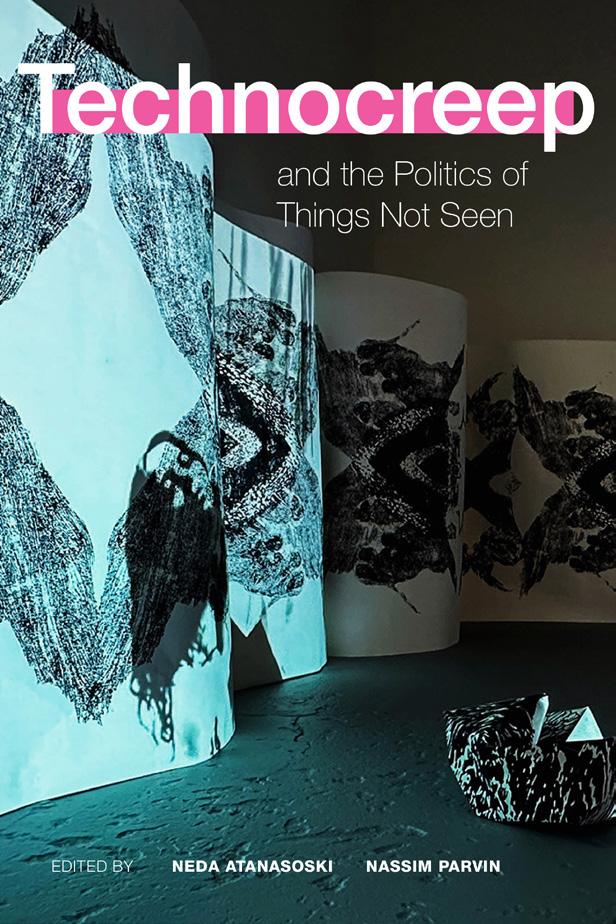
May 328 pages, 61 color illustrations paper, 978-1-4780-3125-3 $35.00/£27.99 cloth, 978-1-4780-2803-1 $125.00/£103.00
April 240 pages, 38 illustrations, including 8 in color paper, 978-1-4780-3154-3 $35.00/£27.99 cloth, 978-1-4780-2833-8 $125.00/£103.00
Science and technology studies/Media studies
Computational Experience in a Time of Machine Learning
ANNA MUNSTER
Computation has now been reconfigured by machine learning: those technical processes and operations that yoke together statistics and computer science to create artificial intelligence (ai) by furnishing vast datasets to learn tasks and predict outcomes. In DeepAesthetics, Anna Munster examines the range of more-than-human experiences this transformation has engendered and considers how those experiences can be qualitative as well as quantitative. Drawing on process philosophy, Munster approaches computational experience through its relations and operations. She combines deep learning—the subfield of machine learning that uses neural network architectures—and aesthetics to offer a way to understand the insensible and frequently imperceptible forms of nonlinear and continuously modulating statistical function. Attending to the domains and operations of image production, statistical racialization, ai conversational agents, and critical ai art, Munster analyzes how machine learning is operationally entangled with racialized, neurotypical, and cognitivist modes of producing knowledge and experience. She approaches machine learning as events through which a different sensibility registers, one in which ai is populated by oddness, disjunctions, and surprises, and where artful engagement with machine learning fosters indeterminate futures.
THOUGHT IN THE ACT
A series edited by Erin Manning and Brian Massumi
Anna Munster is Professor in the School of Art and Design at the University of New South Wales and author of An Aesthesia of Networks: Conjunctive Experience in Art and Technology and Materializing New Media: Embodiment in Information Aesthetics

February 232 pages, 3 illustrations paper, 978-1-4780-3124-6 $26.95/£20.99 cloth, 978-1-4780-2801-7 $102.95/£85.00
Feminist theory/Science and technology studies
Postcolonial Feminisms in a More-Than-Human World HYAESIN YOON
In Prosthetic Memories, Hyaesin Yoon examines the entanglements of humans, animals, and technologies across South Korea and the United States at the turn of the twenty-first century. Interrogating a variety of body-technology interfaces, Yoon outlines an emergent mode of prosthetic memory in which human memory is extended into both machines and animals. Prosthetic memory overflows and provides an alternative to familiar human perception, Western scientific reason, and other senses of knowledge in ways that can foster networks of solidarity, care, and empathy between human and nonhuman subjects. Among other sites and subjects, Yoon examines tongue surgery to correct English pronunciation in Korea, Asian American poetry that engages the human-machine divide, transnational dog cloning, and stem cell research, each of which activates potent postcolonial feminist mnemonics and alliances. In so doing, Yoon narrates the counter-memories of racialized, gendered, diasporic, queer, and marginalized human and nonhuman others that work against the violent and isolating biopolitical and neoliberal forces in contemporary society.
ANIMA: CRITICAL RACE STUDIES OTHERWISE
A series edited by Mel Y. Chen, Ezekiel J. Dixon-Román, and Jasbir K. Puar
Hyaesin Yoon is Associate Professor in the Department of Gender Studies at Central European University.
Science and Vernacular Knowledge in the Colonial Philippines
KATHLEEN CRUZ GUTIERREZ
In Anglo-European botany, it is customary to think of the vernacular as that which is not a Latin or Latinized scientific plant name. In Unmaking Botany, Kathleen Cruz Gutierrez traces a history of botany in the Philippines during the last decades of Spanish rule and the first decades of US colonization. Through this history, she redefines the vernacular, expanding it to include embodied, cosmological, artistic, and varied taxonomic practices. From the culinary textures of rice and the lyrics crooned to honor a flower to the touch of a skirt woven from banana fiber, she illuminates how vernaculars of plant knowing in the Philippines exposed the philosophical and practical limits of botany. Such vernaculars remained as sovereign forms of knowledge production. Yet, at the same time, they fueled botany’s dominance over other ways of knowing plants. Revealing this tension allows Gutierrez to theorize “sovereign vernaculars,” or insight into plants that made and unmade the science, which serves as a methodological provocation to examine the interplay of different knowledge systems and to study the history of science from multiple vantage points.
Kathleen Cruz Gutierrez is Assistant Professor of History at the University of California, Santa Cruz.
Science and technology studies/Feminist theory
Essays on Distributed Agency
LEANDRO RODRIGUEZ MEDINA and SANDRA HARDING, editors
In recent decades, there has been a call for decentering knowledge in the social sciences and humanities, bringing to light perspectives from previously ignored or undervalued groups or areas of the world. Feminist epistemologies and postcolonial studies have led this trend. However, there has been less interest in the specific infrastructures and practices that make decentering possible. Drawing from science and technology studies, Decentralizing Knowledges explores how to bring about such change. Contributors explore the multiple practices of knowledge production and circulation that favor and nurture nonhegemonic standpoints in academic fields, disciplines, and institutions—what they call epistemic decentralizing. The contributors combine theoretical and philosophical inquiry with empirical and historical case studies in settings ranging from palliative care in Taiwan, the repatriation of archaeological remains to Peru, and an experimental research platform in Kenya to a center of interdisciplinary ethnography in Ecuador and duck hunting as a knowledge practice of many indigenous Sámi people. Throughout, the contributors provide an overview of the complex processes required to challenge mainstream epistemology.
Contributors Linda Martín Alcoff, Elías Barticevic, Johan Henrik Buljo, Ronald Cancino, Cristina Flores, Kim Fortun, Sandra Harding, Line Aimee Kalak, Duygu Kasdogan, Wiebke Keim, Aalok Khandekar, Daniel Lee Kleinman, Wen-Hua Kuo, John Law, Les Levidow, Leandro Rodriguez Medina, Angela Okune, Liv Østmo, Ari Sitas, Maka Suarez, Sharon Traweek, Hebe Vessuri
Leandro Rodriguez Medina is Professor of Science, Technology, and Society at Universidad Alberto Hurtado. Sandra Harding is Distinguished Research Professor Emerita at the University of California, Los Angeles.
April 296 pages, 39 illustrations paper, 978-1-4780-3148-2 $27.95/£21.99 cloth, 978-1-4780-2827-7 $104.95/£87.00
June 320 pages, 7 illustrations paper, 978-1-4780-3179-6 $26.95/£20.99 cloth, 978-1-4780-2855-0 $102.95/£85.00
March 240 pages paper, 978-1-4780-3147-5 $25.95/£19.99 cloth, 978-1-4780-2826-0 $99.95/£83.00
The Pacific beneath the Pavements
ROB WILSON
From disappearing coral reefs and ocean acidification to floating great garbage patches, the Pacific Ocean is an ever-present reminder of the Anthropocene. In Oceanic Becoming, Rob Wilson demonstrates that in the midst of the planetary crises the Pacific now faces, it must be understood as interconnected to the other oceans. Wilson frames this interconnection as “Oceania,” reconceiving the world oceans as tied to sites of urban dwelling and life sustenance—from Boston to Brisbane—that are increasingly threatened by late capitalism. Confronting these threats, Wilson argues, requires a project he theorizes as “worlding”—a process of world-making and world-remaking across Oceania that would create new forms of belonging and connection at local, regional, and transnational levels. Wilson shows how Oceania is not just a site of peril, but one charged with emergent literary and social formations that can provide the basis for new solidarities, futures, and ecologies.
Rob Wilson is Professor of Literature, Creative Writing, and Cultural Studies at the University of California, Santa Cruz. He is the author of, among other books, Reimagining the American Pacific: From South Pacific to Bamboo Ridge and Beyond, also published by Duke University Press, and Be Always Converting, Be Always Converted: An American Poetics
May 224 pages, 36 color illustrations paper, 978-1-4780-3163-5 $35.00/£27.99 cloth, 978-1-4780-2846-8 $125.00/£103.00
Tsunami and Civil War in Sri Lanka VIVIAN Y. CHOI
In Disaster Nationalism, Vivian Y. Choi examines how the 2004 Indian Ocean tsunami fostered new forms of governance and militarization during Sri Lanka’s decades-long civil war, both of which led to enduring forms of precarity and insecurity. Tracing the development of disaster management projects following the tsunami, Choi demonstrates how these projects rest on a logic that treats natural disasters and terrorism as inevitable risks in need of management. The tsunami’s destruction foreclosed the possibility of political resolution to the war, as these projects were leveraged by the state to justify its militarized aggression in the war against the Tamil Tigers and a new construction of the Sri Lankan nation. Paradoxically, Choi reveals how state-sponsored disaster management projects— from new buffer and border zones to early warning systems—created more insecurity for Sri Lankans. Foregrounding ethnographic narratives, Choi amplifies the experiences of those affected by the tsunami, particularly Tamil and Muslim communities. In so doing, Choi shows how life perseveres against perpetual uncertainty and danger—caused by natural disasters and state-sanctioned violence alike.
EXPERIMENTAL FUTURES
Technological Lives, Scientific Arts, Anthropological Voices A series edited by Michael M. J. Fischer and Joseph Dumit
Vivian Y. Choi is Associate Professor of Sociology and Anthropology at St. Olaf College.
Reality Politics in Colonial Indonesia
MARGARET J. WIENER
With an Afterword by Isabelle Stengers
“Do you believe in magic?” This familiar question suggests magic is easily recognized but unreal. In Magic’s Translations, Margaret J. Wiener argues that such views are shaped by historical power struggles, especially in Europe’s relations with the wider world. Focusing on nineteenth- and twentieth-century Dutch interactions with Indonesians, Wiener reveals how colonial agents framed unfamiliar practices, practitioners, and objects as “magic,” rendering distinct phenomena fundamentally alike and advancing colonizing projects that deemed magic antithetical to reason and reality. While colonial authorities, including ethnologists, mobilized the concept of magic to differentiate Europeans from Indonesians, nature from culture, reason from superstition, and fact from fetish, their efforts produced unexpected outcomes: some Indonesian artifacts and acts not only retained their power but invaded European experiences. As anthropologists were among the key translators of magic throughout the world, Wiener intersperses accounts of magic’s translations in the Indies with reflections on anthropology’s ongoing engagement with the concept. She demonstrates that magic became an object of expert knowledge, political control, and popular fascination, rather than a self-evident category or relic of naïve belief.
Margaret J. Wiener is Associate Professor of Anthropology at the University of North Carolina at Chapel Hill, and author of Visible and Invisible Realms: Power, Magic, and Colonial Conquest in Bali. Isabelle Stengers is Emerita Professor of the Philosophy of Science at the Université libre de Bruxelles.
Anthropology/South Asia/Economics
Affective Capitalism and Potentiality in a Global City PURNIMA MANKEKAR and AKHIL GUPTA
In The Future of Futurity, Purnima Mankekar and Akhil Gupta examine the lives and experiences of call center agents in India’s Business Process Outsourcing (bpo) industry, who live in Bengaluru and work for customers in the global North. Mankekar and Gupta show how futurity—an affective-temporal potentiality and mode of being that emphasizes the unfolding of time—enables bpo workers to strive for hopeful futures despite their experiences of growing inequality, volatility, and violence. Drawing on long-term fieldwork with managers, owners, and workers of bpo companies, the authors explore how workers find pathways for navigating a globalized world and for imagining their futures in it. They point to the heterogeneous lives, yearnings, and anxieties of bpo workers, foregrounding the disjunctions and conjunctions between labor, corporeality, intimacy, family life, and mobility. Mankekar and Gupta show how workers’ daily lives and imaginings of the future point to the relationships between futurity, capital, and technology as well as futurity’s imbrications with contemporary racial capitalism. In so doing, the authors insist on the transformative potential of futurity even in conditions of extreme precarity.
THE LEWIS HENRY MORGAN LECTURES
A
series edited by
Kathryn Mariner and Llerena Guiu Searle
Purnima Mankekar is Professor in the Departments of Anthropology, Asian American Studies, Gender Studies, and Film, TV, and Digital Media at the University of California, Los Angeles. Akhil Gupta is Distinguished Professor of Anthropology at the University of California, Los Angeles.
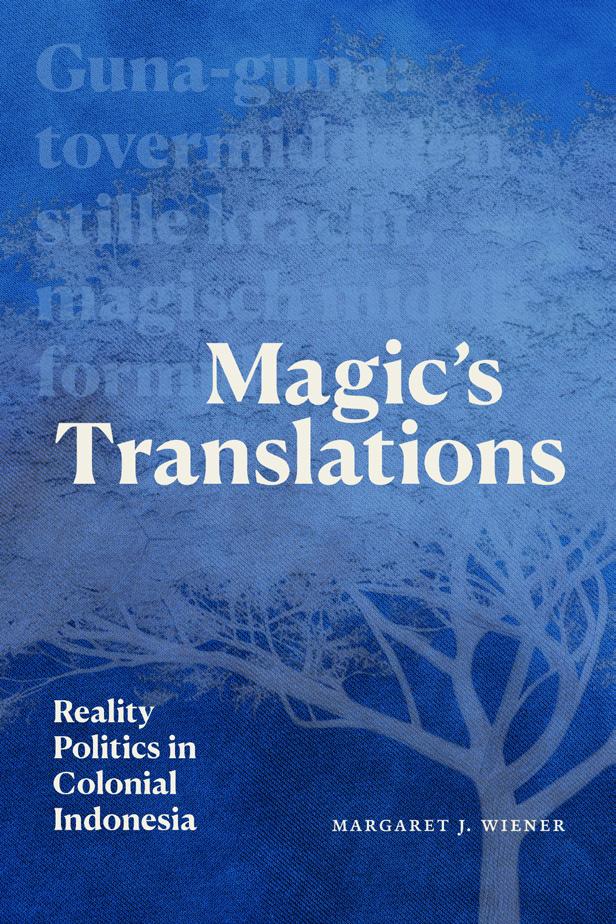
May 336 pages, 9 illustrations paper, 978-1-4780-3173-4 $27.95/£21.99 cloth, 978-1-4780-2850-5 $104.95/£87.00

April 336 pages, 20 illustrations paper, 978-1-4780-3153-6 $29.95/£23.99 cloth, 978-1-4780-2832-1 $109.95/£91.00
May 240 pages, 11 illustrations paper, 978-1-4780-3190-1 $26.95/£20.99 cloth, 978-1-4780-2863-5 $102.95/£85.00
Coloniality, Finance, and Embodied Sovereignty in Cairo
On the Semicivilized by Julia Elyachar is a sweeping analysis of coloniality that shaped— and blocked—sovereign futures for those dubbed barbarian and semicivilized in the former Ottoman Empire. Drawing on thirty years of ethnographic research in Cairo, family archives from Palestine and Egypt, and research on Ottoman debt and finance to rethink catastrophe and potentiality in Cairo and the world today, Elyachar theorizes a global condition of the “semicivilized” marked by nonsovereign futures, crippling debts, and the constant specter of violence exercised by those who call themselves civilized. Originally used to describe the Ottoman Empire, whose perceived “civilizational differences” rendered it incompatible with western dominated global order, semicivilized came to denote lands where unitary territorial sovereignty was stymied at the end of WWI. Elyachar’s theorizing offers a new analytic vocabulary for thinking beyond territoriality, postcolonialism, and the “civilized/primitive” divide. Looking at the world from the perspective of the semicivilized, Elyachar argues, allows us to shift attention to embodied infrastructures, collective lives, and practices of moving and acting in common that bypass lingering assumptions of territorialism and unitary sovereign rule.
Julia Elyachar is Associate Professor of Anthropology at Princeton University and author of Markets of Dispossession: NGOs, Economic Development, and the State in Cairo, also published by Duke University Press.
History/Gender/South Asia
Imagining Liberation in Colonial and Postcolonial India
January 240 pages, 2 illustrations paper, 978-1-4780-3138-3 $26.95/£20.99 cloth, 978-1-4780-2815-4 $102.95/£85.00
GYANENDRA PANDEY
In Men at Home, Gyanendra Pandey offers a detailed exploration of men’s comportment and conduct in the home and the implications of their ambiguous commitment to this critical part of their lives. The author draws on a wealth of archival materials—autobiographies, memoirs, fiction, and ethnographies—to situate Indian men firmly in the domestic world, underlining their dependence on the family and home. He investigates how men negotiate marriage, intimacy, and conjugality, and focuses the effects of the humiliating and constant assertion of gender, caste, and class power in familial interactions. To uncover the nuances of these relationships, Pandey attends to the domestic commitments of upper-, middle-, and lower-class men across religion and caste. He considers issues of honor and shame, rights and responsibilities, citizenship and belonging through this exploration of how men across the subcontinent understand themselves in and beyond their domestic relationships. As much as a book about masculinity and conjugality, this is a book about Indian modernity, nationalism, and society as seen from the location of men in the home.
Gyanendra Pandey is Arts and Sciences Distinguished Professor of History at Emory University and author of A History of Prejudice: Race, Caste, and Difference in India and the United States, Remembering Partition: Violence, Nationalism, and History in India, and The Construction of Communalism in Colonial North India, among other books.
The Homoerotics of Empire and Race in Early Modernity
ABDULHAMIT ARVAS
In Boys Abducted, Abdulhamit Arvas explores the history of abducted boys in English and Ottoman literary and visual culture to examine the relationships between homoeroticism, race, and empire in the early modern period. The popular literary trope of the abducted beautiful boy—often eroticized as an exotic object of desire—intersects with the historical phenomenon of vulnerable youths who were captured and exchanged within the global traffic in bodies. Arvas offers a queer-historicist analysis of a wide array of Ottoman and English texts and genres ranging from poetry, drama, and travelogue to chronicles, maps, and visual arts. He shows how the boy in these representations crosses boundaries between nations and empires, embodying the tensions and dissonances between the aestheticized eroticism of literary and cultural representations and the violent history of abductions, conversions, and enslavements. In so doing, Arvas presents complex parallels and connections between the two societies, highlighting the circulation of sexual and racial discourses in imperial imaginings to uncover discursive formations and formulations of sexuality, race, and empire.
THEORY Q
A series edited by Lee Edelman, Benjamin Kahan, and Christina Sharpe
Abdulhamit Arvas is Assistant Professor of English at the University of Pennsylvania and coeditor of Critical Confessions Now
Queer studies/Asian studies
Queerness, Hong Kong, and the Sinophone ALVIN K. WONG
In Unruly Comparison, Alvin K. Wong examines queerness in Hong Kong through a transdisciplinary analysis of Sinophone literature, cinema, visual culture, and civil society. Moving beyond Eurocentrism in queer theory and China-centrism in area studies, Wong frames Hong Kong as a model for global comparison by theorizing a method of unruly comparison—acknowledging the incommensurability of cultural texts and queer figures across different temporal and spatial locations. Here, unruly comparison positions Hong Kong as an undefinable time-space that troubles historicist, colonial, and China-centric renderings of the city as merely a site of British colonial legacy, Chinese rule, or global capital. Wong analyzes queer interracial desire in WWII; a cinema of gay male cosmopolitanism; queer intimacy among migrant workers; trans visuality and legality; cross-border sex work; and the queer diaspora of Hong Kong after the 2019 protest. Through Wong’s readings, Hong Kong becomes a queer region of racial, gender, and sexual incommensurability. By foregrounding the friction, asymmetry, and perverse juxtapositions of unruly comparison of Hong Kong with the Sinophone world, Wong reframes key debates in queer theory and East Asian studies.
PERVERSE MODERNITIES
A series edited by Jack Halberstam and Lisa Lowe
Alvin K. Wong is Assistant Professor of Comparative Literature at the University of Hong Kong and coeditor of Keywords in Queer Sinophone Studies
April 344 pages, 46 illustrations paper, 978-1-4780-3158-1 $27.95/£21.99 cloth, 978-1-4780-2841-3 $104.95/£87.00
May 200 pages, 18 illustrations paper, 978-1-4780-3189-5 $25.95/£19.99 cloth, 978-1-4780-2867-3 $99.95/£83.00

January 272 pages, 13 illustrations paper, 978-1-4780-3137-6 $27.95/£21.99 cloth, 978-1-4780-2812-3 $104.95/£87.00
Living Otherwise in Tokyo's Pink Economies
MICHELLE H. S. HO
In Emergent Genders, Michelle H. S. Ho traces the genders manifesting alongside Japanese popular culture in Akihabara, an area in Tokyo renowned for the fandom and consumption of anime, manga, and games. Drawing on ethnographic fieldwork in josō and dansō cafe-and-bars, establishments where male-to-female and female-to-male crossdressing is prevalent, Ho shows how their owners, employees, and customers creatively innovate what she calls emergent genders—new practices, categories, and ways of being stemming from the simultaneous fracturing, contestations, and (re)imaginations of older forms of gender and sexual variance in Japan. Such emergent genders initiate new markets for alternative categories of expression and subjectivity to thrive in a popular cultural hub like Akihabara instead of Tokyo’s gay and lesbian neighborhood of Shinjuku Ni-chōme. By rethinking identitarian models of gender and sexuality, reconfiguring the significance of capitalism for trans studies and queer theory, and decentering theoretical frameworks incubated in a predominantly United States academic context, Ho offers new ways of examining how trans and gender nonconforming individuals may survive and flourish under capitalism.
PERVERSE MODERNITIES
A series edited by Jack Halberstam and Lisa Lowe
Michelle H. S. Ho is Assistant Professor of Feminist and Queer Cultural Studies at the National University of Singapore.
Music/Asian studies
May 264 pages, 15 illustrations paper, 978-1-4780-3170-3 $29.95/£23.99 cloth, 978-1-4780-2847-5 $109.95/£91.00
Maurice Rocco, Transnational Nightlife, and the Making of Cold War Intimacies BENJAMIN TAUSIG
From the 1930s to the 1950s, jazz pianist Maurice Rocco was a mainstay in Hollywood and American nightlife scenes. As rock and roll surpassed jazz as America’s most popular music in the 1950s, the queer Black pianist’s fortunes faded and he was forced to go abroad for new opportunities. In 1964 Rocco ultimately settled in Bangkok, where he thrived and enjoyed a relatively privileged life until he was murdered by two young male sex workers in 1976. In Bangkok after Dark, Benjamin Tausig uses Rocco’s intriguing story to trace the history of transnational nightlife encounters between Thais and Americans during the long Vietnam War. Tausig shows how these encounters, which included musical collaborations, romantic and sexual relationships, and new labor, identity, and geopolitical configurations, remade Thailand in crucial and enduring ways. As Tausig demonstrates, Rocco’s Blackness, queerness, and musical life in Thailand illuminates how Thai-American relationships complicated neat distinctions between the two countries. In teasing out these relationships through the figure of Rocco, Tausig challenges conventional understandings of the global Cold War on individual and transnational scales.
Benjamin Tausig is Associate Professor of Music at the State University of New York at Stony Brook, and the author of Bangkok is Ringing: Sound, Protest, and Constraint
Music/Media studies/Asian studies
Music, Bricolage, and the Aesthetics of Oblivion
GIORGIO BIANCOROSSO
Like his fellow filmmakers Stanley Kubrick, Quentin Tarantino, and Sofia Coppola, Wong Kar-wai crafts the soundtracks of his films by jettisoning original scores in favor of commercial recordings. In Remixing Wong Kar-wai, Giorgio Biancorosso examines the combinatorial practice at the heart of Wong’s cinema to retheorize musical borrowing, appropriation, and repurposing. Wong’s irrepressible penchant for poaching music from other films—whether old Chinese melodramas, Hollywood blockbusters, or European art films—subsumes familiar music under his own brand of cinema. As Wong combs through musical and cinematic archives and splices disparate music together, exceedingly wellknown music loses its previous associations and acquires an infinite new constellation of meanings in his films. Drawing on Claude Lévi-Strauss’s concept of bricolage, Biancorosso contends that Wong’s borrowing is akin to a practice of creative destruction in which Wong becomes a bricoleur who remixes music at hand to create new and complete, self-sustaining statements. By outlining Wong’s modus operandi of indiscriminate borrowing and remixing, Biancorosso prompts readers to reconsider the significance of transforming preexisting music into new compositions for film and beyond.
ASIA-PACIFIC: CULTURE, POLITICS, AND SOCIETY
A series edited by Rey Chow, Harry Harootunian, Michael Dutton, and Rosalind C. Morris
Giorgio Biancorosso is Professor of Music at the University of Hong Kong and author of Situated Listening: The Sound of Absorption in Classical Cinema
Anthropology/Museum studies/Cultural studies
Exhibition Design and Communication in Museums and Beyond
CORINNE A. KRATZ
In Rhetorics of Value, Corinne A. Kratz explores how exhibition design creates and conveys values that have the potential to touch, educate, and engage visitors. Drawing on case studies from the Victoria and Albert Museum, museums in South Africa and Kenya, a Hawaiian resort hotel, and the Smithsonian’s National Museum of African American History and Culture, among others, Kratz shows how exhibits help shape and narrate cultural categories, values, and histories while provoking questions and evoking memories and experiences. She crosses contexts to consider ethnographic, history, and art exhibits in national and community museums and other display settings. Through these examples, Kratz traces how exhibition designers combine objects, texts, images, lighting, audio, space, and narratives to craft a complex, multilayered communicative form that visitors experience as they move through museums. By investigating the relationship between audience reception and exhibition design strategies, Kratz contends that through design, exhibits can shape the ways we know, the stories we tell, and our contours of meaning and engagement.
Corinne A. Kratz is Distinguished Professor of Anthropology and African Studies Emerita at Emory University and Research Associate of the Museum of International Folk Art. She is coeditor of Museum Frictions: Public Cultures/Global Transformations, also published by Duke University Press, and author of The Ones That Are Wanted: Communication and the Politics of Representation in a Photographic Exhibition and Affecting Performance: Meaning, Movement, and Experience in Okiek Women’s Initiation
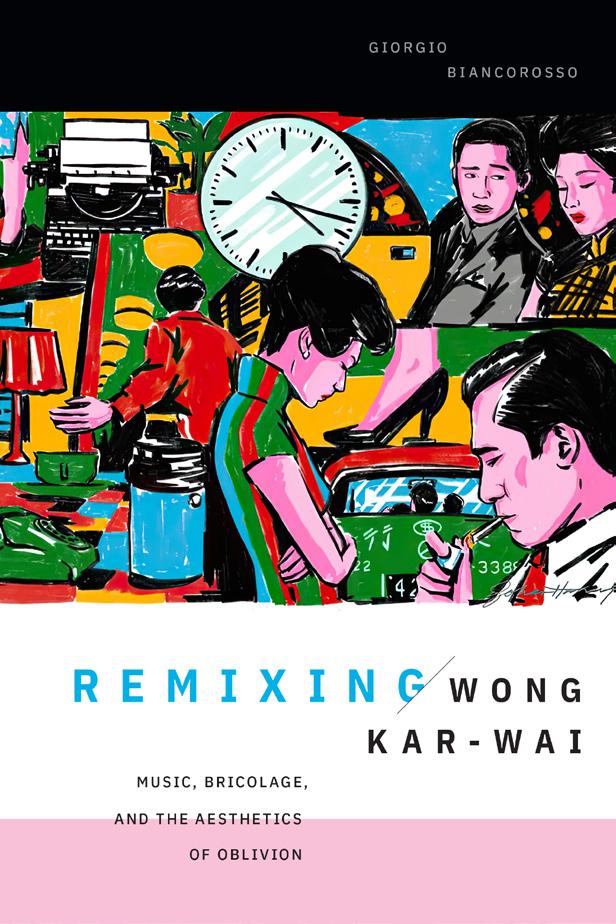
January 240 pages, 51 illustrations paper, 978-1-4780-3117-8 $26.95/£20.99 cloth, 978-1-4780-2694-5 $102.95/£85.00
May 400 pages, 107 illustrations, including 12 in color paper, 978-1-4780-3065-2 $40.00/£32.00 cloth, 978-1-4780-2839-0 $145.00/£120.00

March 504 pages, 198 color illustrations paper, 978-1-4780-3131-4 $45.00/£35.00 cloth, 978-1-4780-2808-6 $200.00/£165.00

Gennifer Weisenfeld is Walter H. Annenberg Distinguished Professor of Art and Art History at Duke University. She is the author of Gas Mask Nation: Visualizing Civil Air Defense in Wartime Japan, Imaging Disaster: Tokyo and the Visual Culture of Japan’s Great Earthquake of 1923, and Mavo: Japanese Artists and the Avant-Garde, 1905–1931
Corporate Advertising Design, Nation, and Empire in Modern Japan
GENNIFER WEISENFELD
“The Fine Art of Persuasion is a landmark study. The wide-ranging evidence that Gennifer Weisenfeld presents leaves no doubt about the impact of commercial design in the development of Japan’s consumer capitalism. Generously illustrated and crisply written, this book will be a go-to reference for anyone interested in the convergence of advertising and mass media within Japan’s rapidly evolving and often fraught social, political, and economic history.”—
CHRISTINE M. E. GUTH, author of Craft Culture in Early Modern Japan: Materials, Makers, and Mastery
“Advertising is so ubiquitous today and yet its history is poorly recorded and understood. Gennifer Weisenfeld has produced a pioneering study which does much to improve our understanding of its forms and organization in one of the most dynamic centers of modernity—Japan in the first half of the twentieth century. Deeply researched and persuasively written, her book draws out the particular character of Japanese branding and advertising and the role they have played in the construction of national identity.”—
DAVID CROWLEY
, National College of Art and Design, Dublin
Commercial art is more than just mass-produced publicity; it constructs social and political ideologies that impact the public’s everyday lives. In The Fine Art of Persuasion, Gennifer Weisenfeld examines the evolution of Japanese advertising graphic design from the early 1900s through the 1964 Tokyo Olympics, a pivotal design event that rebranded Japan on the world stage. Through richly illustrated case studies, Weisenfeld tells the story of how modern corporations and consumer capitalism transformed Japan’s visual culture and artistic production across the pre- and postwar periods, revealing how commercial art helped constitute the ideological formations of nationand empire-building. Weisenfeld also demonstrates how under the militarist regime of imperial Japan, national politics were effectively commodified and marketed through the same mechanisms of mass culture that were used to promote consumer goods. Using a multilayered analysis of the rhetorical intentions of design projects and the context of their production, implementation, and consumption, Weisenfeld offers an interdisciplinary framework that illuminates the importance of Japanese advertising design within twentieth-century global visual culture.
In Gone Gone, Todd Meyers reckons with grief in the face of overdose death and the afterlives of loss created by the opioid crisis. Through conversations with friends, lovers, and family members of those who are gone, Meyers brings readers into an inquiry about lives shared, told through tenderness and tragedy. Meyers seeks to find methods to record and share the many experiences of grief in ways that do not simply consign sorrow to the world of drugs and addiction. Blending prose, poetry, and ethnography, Gone Gone is a lucid and devastating record that reminds readers that the grief felt by those who lose ones they love to overdose is varied and untamable.
Todd Meyers is Professor and Marjorie Bronfman Chair in Social Studies of Medicine at McGill University and author of, most recently, All That Was Not Her, also published by Duke University Press.

History of medicine
How Efficiency Made American Health Care CAITJAN GAINTY
In The Product of Medicine, Caitjan Gainty traces the history of the early twentieth-century medical efficiency movement in the United States, restoring it as a significant driver of medicine’s modernization while also revealing its broader significance as a cultural force shaping modern American life. Covering a range of examples of efficiency’s uses in medicine—from the assembly-line structure of the early Mayo Clinic and the Henry Ford Hospital to the landmark Flexner Report and the prosecution of the American Medical Association as a monopoly—Gainty challenges longstanding presumptions about how medicine acquired power and prestige during the Progressive era. Rather than a result of pathbreaking scientific advance or the rise of professional organizations, Gainty demonstrates how it is through the more prosaic processes of standardization and organization that medicine comes to be understood as modern. In doing so, Gainty uncovers medical efficiency as not only a function of industrial capitalism, but also as a vehicle for balancing populist and autocratic tendencies to maintain a workable American democracy.
Caitjan Gainty is Senior Lecturer in the History of Science, Technology, and Medicine at King’s College, London.
April 248 pages, 13 illustrations paper, 978-1-4780-3160-4 $25.95/£19.99 cloth, 978-1-4780-2842-0 $99.95/£83.00
May 240 pages, 6 illustrations paper, 978-1-4780-3187-1 $26.95/£20.99 cloth, 978-1-4780-2866-6 $102.95/£85.00
Anthropology/Latin American studies/Public health
Planetary Health and Plantation Labor in Nicaragua
ALEX M. NADING
The recent unprecedented growth of Nicaragua’s sugarcane industry has brought promises of more jobs, better healthcare, and cleaner energy. But these promises have been overshadowed by an epidemic of chronic kidney disease of non-traditional causes (CKDnt). Unknown before the late 1990s, this disease has sickened and killed thousands of sugarcane plantation workers. Scientific studies link the disease to rises in mean average annual temperatures, chronic water scarcity, and the overuse of toxic agrochemicals. CKDnt is now understood as a consequence of global climate change. In The Kidney and the Cane, Alex M. Nading situates this epidemic within a deeper history of sugarcane plantation violence, arguing that CKDnt is not a result of climate change, it is climate change. Outlining a place-based approach to planetary health, Nading follows activists, scientists, and sugarcane zone residents wrestling with the consequences of plantation life. Along the way, he raises critical questions about the capacity of corporations and states to care for people and ecosystems; the ability of citizens and experts to regulate toxic substances; and the future of work on a warming planet.
CRITICAL GLOBAL HEALTH: EVIDENCE, EFFICACY, ETHNOGRAPHY
A series edited by Vincanne Adams and João Biehl
Alex M. Nading is Associate Professor of Anthropology at Cornell University and author of Mosquito Trails: Ecology, Health, and the Politics of Entanglement
History/Latin American studies/Public health
Immigrants, Health, and the Built Environment in Brazil
April 328 pages, 49 illustrations paper, 978-1-4780-3098-0 $29.95/£23.99 cloth, 978-1-4780-2672-3 $114.95/£95.00
JEFFREY LESSER
There is a saying in Brazil: “Mosquitos are democratic: they bite the rich and the poor alike.” Why then is bad health, from violence to respiratory disease and malaria to dengue, dispersed unevenly across different social and national groups? In Living and Dying in São Paulo, Jeffrey Lesser focuses on the Bom Retiro neighborhood to explore such questions by examining the competing visions of wellbeing in Brazil among racialized immigrants and policymakers and health officials. He analyzes the fraught relationship between Bom Retiro residents and the state and healthcare agencies that have overseen community sanitation efforts since the mid-nineteenth century, drawing out the connected systems of the built environment, public health laws and practices, and citizenship. Lesser employs the concept of “residues” to outline how continuing historical material, legislative, and social legacies structure contemporary daily life and health outcomes in the neighborhood. In so doing, Lesser creates a dialogue between the past and present, showing how the relationship between culture and disease is both layered and interconnected.
Jeffrey Lesser is Samuel Candler Dobbs Professor of History at Emory University. He is the author of A Discontented Diaspora: Japanese Brazilians and the Meanings of Ethnic Militancy, 1960–1980 and Negotiating National Identity: Immigrants, Minorities, and the Struggle for Ethnicity in Brazil, both published by Duke University Press.
Latinx and Chicanx studies/Literary studies/American studies
Latinx Speculations and the Aesthetics of Violence
MAIA GIL'ADÍ
In Doom Patterns, Maia Gil’Adí takes up speculative fiction as a site for theorizing Latinx identity across national and ethnic borders and shows the vital role of historical trauma in its formation. Her analysis moves beyond reparative modes of reading to consider how literary representations of violence, destruction, and pain also elicit pleasurable affective and aesthetic experiences. Gil’Adí theorizes the paradox of pleasurable violence through the notion of doom patterns—narrative devices that include thematic repetition, nonlinear narration, character fragmentation, and unresolved plots. Doom patterns return the reader to instances of historical violence and destruction, revealing them as excessive and otherworldly processes that require the tropes of speculative fiction. Examining novels by established Latinx authors such as Junot Díaz and Cristina García as well as multiethnic writers such as Colson Whitehead and Sesshu Foster, Gil’Adí challenges definitions of what constitutes Latinx literature and notions of the speculative by dismantling generic boundaries and entrenched definitions of race, ethnicity, and nationhood. In so doing, she allows for a more capacious consideration of the speculative, realism, history, and the role of violence in literature.
Maia Gil’Adí is Fannie Gaston-Johansson Assistant Professor of Latinx Studies at Johns Hopkins University.
Performance studies/ Latin American and Caribbean studies
Impersonation and Nationalist Fictions in the Americas
DANIELLE M. ROPER
In Hemispheric Blackface, Danielle M. Roper examines blackface performance and its relationship to twentieth- and twenty-first-century nationalist fictions of mestizaje, creole nationalism, and other versions of postracialism in the Americas. Challenging both the dominance of the US minstrel tradition and the focus on the nation in blackface studies, Roper maps a hemispheric network of racial impersonation in Peru, Bolivia, Colombia, Jamaica, Cuba, and Miami. She analyzes blackface performance in the aftermath of the turn to multiculturalism in Latin America, the emergence of modern blackness in Jamaica, and the rise of Barack Obama in the United States, showing how blackface remains embedded in cultural entertainment. Contending that the Americas are linked by repeating nationalist fictions of postracialism, colorblindness, and myths of racial democracy, Roper assesses how acts of impersonation mediate the ongoing power of these narratives and enables people to comprehend advancements and reversals in racial equality. Rather than simply framing blackface as liberatory or oppressive, Roper traces its emergence from a shared history of slavery and the varied politics of racial enjoyment throughout the hemisphere.
DISSIDENT ACTS
A series edited by Diana Taylor and Macarena Gómez-Barris
Danielle M. Roper is Neubauer Family Assistant Professor of Languages and Literatures at the University of Chicago.
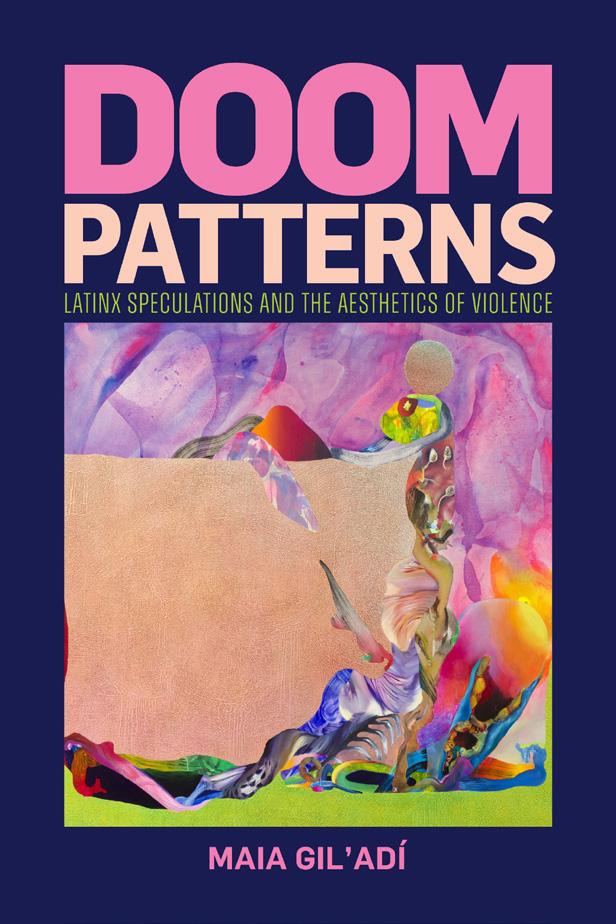
January 280 pages, 10 illustrations paper, 978-1-4780-3120-8 $27.95/£21.99 cloth, 978-1-4780-2698-3 $104.95/£87.00
May 248 pages, 28 illustrations paper, 978-1-4780-3188-8 $26.95/£20.99 cloth, 978-1-4780-2864-2 $102.95/£85.00
May 296 pages, 8 illustrations paper, 978-1-4780-3176-5 $26.95/£20.99 cloth, 978-1-4780-2854-3 $102.95/£85.00
Geography/Political theory/Decolonial studies
Speculative Geographies in the Settler Colonial Imaginary
HEIDI ANDREA RESTREPO RHODES
In Afterlives of Discovery, heidi andrea restrepo rhodes traces global and national histories as they entangle through the concept and material life of Discovery across Colombia’s evolution into a liberal settler colonial state. Rather than seeing Discovery as a singular event or bygone era, restrepo rhodes theorizes Discovery as a globally encompassing, racialized formation of domination and geographic speculation that continues to structure settler colonialism. Discovery’s logics, they argue, are rooted in colonial and capitalist fantasies projected onto the racialized space and place of the colonized other. restrepo rhodes draws on critical theory, human rights research, and Colombian archives to challenge dominant narratives that maintain the Colombian armed conflict began as a Marxist insurgency in 1964. Instead, restrepo rhodes shows that the conflict is an extension of Discovery’s ongoingness via projects of dispossession, extraction, whitening, and epistemic and political hegemony. Given that Colombia’s national past, present, and future are grounded in Discovery, restrepo rhodes asks: How is it possible to build futures that escape Discovery’s grasp?
heidi andrea restrepo rhodes is Visiting Assistant Professor of Gender and Women’s Studies at Pomona College and author of The Inheritance of Haunting
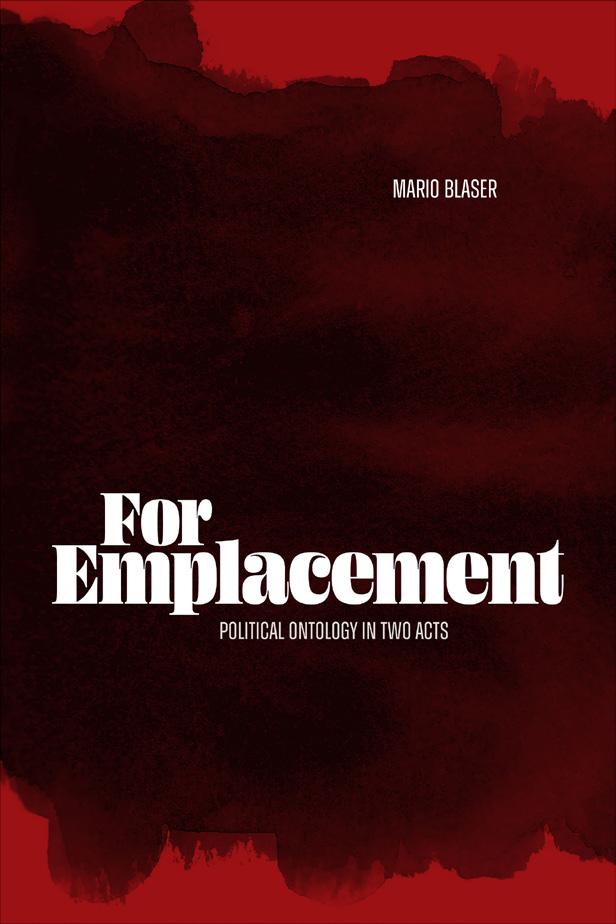
January 256 pages, 8 illustrations paper 978-1-4780-3129-1, $27.95/£21.99 cloth, 978-1-4780-2807-9 $104.95/£87.00
Anthropology/Geography/Political theory
Political Ontology in Two Acts
MARIO BLASER
In For Emplacement, Mario Blaser proposes a new lens for contending with the momentous challenges facing the world, from anthropogenic climate change to rampant socioeconomic inequalities to the rise of neofascism. Blaser shows that the prevalent solutions to these problems—which often depend on intensifying globalization, technological development, and extractivism—only deepen these crises. Effectively addressing these issues, he suggests, might require grounding our ways of being in the specificities of place. Drawing on decades of ethnographic experience in South America and the Canadian subarctic, and engaging with material semiotics, Blaser recasts the fundamental political question of how to live together well as a cosmopolitical one: how to become emplaced with others, in divergence. Ultimately, he presents a political ontology where visions of the good life oriented to the specificities of place guide us through the promises and challenges that a journey toward emplacement holds.
Mario Blaser is Professor of Anthropology, Archaeology, and Geography at Memorial University of Newfoundland, author of Storytelling Globalization from the Chaco and Beyond, and coeditor of A World of Many Worlds, both also published by Duke University Press.
The Sacred and the Black Corporeal Undercommons MAYA
J. BERRY
In Defending Rumba in Havana, anthropologist and dancer Maya J. Berry examines rumba as a way of knowing the embodied and spiritual dimensions of Black political imagination in post-Fidel Cuba. Historically a Black working-class popular dance, rumba, Berry contends, is a method of Black Cuban struggle that provides the community, accountability, sustenance, and dignity that neither the state nor the expanding private market can. Berry’s feminist theorization builds on the notion of the undercommons to show how rumba creates a space in which its practitioners enact deeply felt and dedicatedly defended choreographies of reciprocity, refusal, sovereignty, devotion, and pleasure, both on stage and in their daily lives. Berry demonstrates that this Black corporeal undercommons emphasizes mutual aid and refuses neoliberal development logics, favoring instead a collective self-determination rooted in African diasporic spiritual practices through which material compensation and gendered power dynamics are negotiated. By centering rumba to analyze how poor Black Cubans navigate gendered and racialized life, Berry helps readers better understand the constraints and yearnings that move diasporic Black struggles to seek refuge beyond the bounds of the nation-state.
DUKE UNIVERSITY PRESS SCHOLARS OF COLOR FIRST BOOK AWARD
Maya J. Berry is Assistant Professor of African, African American, and Diaspora Studies at the University of North Carolina at Chapel Hill.
US History/Gender and women's studies
Puerto Rican Women Organizing for Social Justice
EMMA AMADOR
In The Politics of Care Work, Emma Amador tells the story of Puerto Rican women’s involvement in political activism for social and economic justice in Puerto Rico and the United States throughout the twentieth century. Amador focuses on the experiences and contributions of Puerto Rican social workers, care workers, and caregivers who fought for the compensation of reproductive labor in society and the establishment of social welfare programs. These activists believed conflicts over social reproduction and care work were themselves high-stakes class struggles for women, migrants, and people of color. In Puerto Rico, they organized for women’s rights, socialism, labor standards, and Puerto Rican independence. They continued this work in the United States by advocating for migrant rights, participating in the Civil Rights movement, and joining Puerto Rican-led social movements. Amador shows how their relentless efforts gradually shifted the field of social work toward social justice and community-centered activism. Their profound and enduring impact on Puerto Rican communities underscores the crucial role of Puerto Rican women’s caregiving labor and activism in building and sustaining migrant communities.
Emma Amador is Assistant Professor of History at the University of Connecticut.

January 336 pages, 22 illustrations paper, 978-1-4780-3133-8 $29.95/£23.99 cloth, 978-1-4780-2814-7 $109.95/£91.00
May 320 pages, 25 illustrations paper, 978-1-4780-3183-3 $28.95/£22.99 cloth, 978-1-4780-2859-8 $104.95/£87.00
May 336 pages, 16 illustrations paper, 978-1-4780-3184-0 $29.95/£23.99 cloth, 978-1-4780-2861-1 $104.95/£87.00
Latin American history/Native and Indigenous studies/Postcolonial and Colonial studies
The New Kingdom of Granada is about the making and unmaking of empire in the diverse and decentralized Indigenous landscapes of the Northern Andes. Santiago Muñoz-Arbeláez examines the intricate and disputed processes that reshaped the peoples and landscapes of present-day Colombia into a kingdom within the global Spanish monarchy. Drawing on correspondence, visitation reports, judicial records, maps, textiles, and accounting and legal documents created by Europeans and Indigenous peoples, Muñoz-Arbeláez outlines the painstaking century-long effort between 1530 and 1630 to consolidate the kingdom. A diverse group of people that included Indigenous interpreters, scribes, and intellectuals spearheaded these projects, which eventually expanded colonial control outward from its base in the highland Andean plateaus down to the lowland river valleys. Meanwhile, Indigenous political projects constantly threatened imperial rule, as rebels often encircled the kingdom and seized the corridors that linked it to Spain. By foregrounding the kingdom’s difficult establishment and tenuous hold on power, Muñoz-Arbeláez challenges traditional understandings of imperial statecraft and the myriad ways Indigenous peoples participated in, disputed, and negotiated the establishment of colonial rule.
Santiago Muñoz-Arbeláez is Assistant Professor of History at the University of Texas at Austin.

March 216 pages, 11 illustrations paper, 978-1-4780-3150-5 $25.95/£19.99 cloth, 978-1-4780-2829-1 $99.95/£83.00
Sociology/Anthropology/Latin American studies
Persistence at the Urban Margins of Buenos Aires
JAVIER AUYERO and SOFÍA SERVIÁN
In Squatter Life, sociologist Javier Auyero and anthropologist Sofía Servián detail the diverse and often precarious strategies that Argentina’s urban poor rely on to survive. Blending three years of ethnographic fieldwork and anthropological theory with personal narratives of Servián’s experience growing up and living in a squatter settlement, the authors examine how Argentina’s squatter communities contend with violence and secure necessities like food, land, and housing despite inadequate state support and protection. Auyero and Servián recount the bricolage of tactics these individuals employ to make ends meet such as relying on highly exploitative jobs, patronage, and networks of reciprocal exchange that can involve illicit activities. Analyzing how these survival strategies intersect with class, gender, and political domination, the authors present a nuanced account of marginality in Argentinian squatter settlements while maintaining a deeply human portrait of survival and persistence.
Javier Auyero is Lozano Long Professor in Latin American Sociology at the University of Texas at Austin and Ikerbasque Research Professor at the University of the Basque Country UPV-EHU, Bilbao. He is the author of Patients of the State: The Politics of Waiting in Argentina, Contentious Lives: Two Argentine Women, Two Protests, and the Quest for Recognition, and Poor People’s Politics: Peronist Survival Networks and the Legacy of Evita, all also published by Duke University Press. Sofía Servián is a BA (Licenciatura) student of Anthropology at the University of Buenos Aires.
Latin American studies/Cultural studies/Memory studies
Spectral Remains in the Afterglow of Venezuela's Bolivarian Revolution
IRINA R. TROCONIS
In the spring of 2013, televisions across Venezuela announced the death of then-President Hugo Chávez, leader of the Bolivarian Revolution and key political actor in Latin America’s “turn to the left.” Chávez’s death, however, was not the end of Chávez’s life. In The Necromantic State, Irina R. Troconis examines how Chávez, as a “specter,” has lingered in Venezuela’s public, private, and digital spaces. Focusing on contemporary Venezuela and drawing from a diverse corpus that includes tattoos, toys, memes, graffiti, and a hologram haunting the streets of downtown Caracas, Troconis contends that, in moments of failed transitions, political tensions, and crises of legitimacy, the state brings the dead back to life to negotiate the terms of its survival. By showing how this necromantic performance enables the state’s material and visual manifestations in public and private spaces, Troconis untangles a sociopolitical moment in which the ghostly acts as the affective, social, and political force that grounds state authority and ensures the preservation of the status quo, as it circumscribes acts of political imagination and limits popular resistance.
Irina R. Troconis is an Assistant Professor of Latin American Studies at Cornell University.
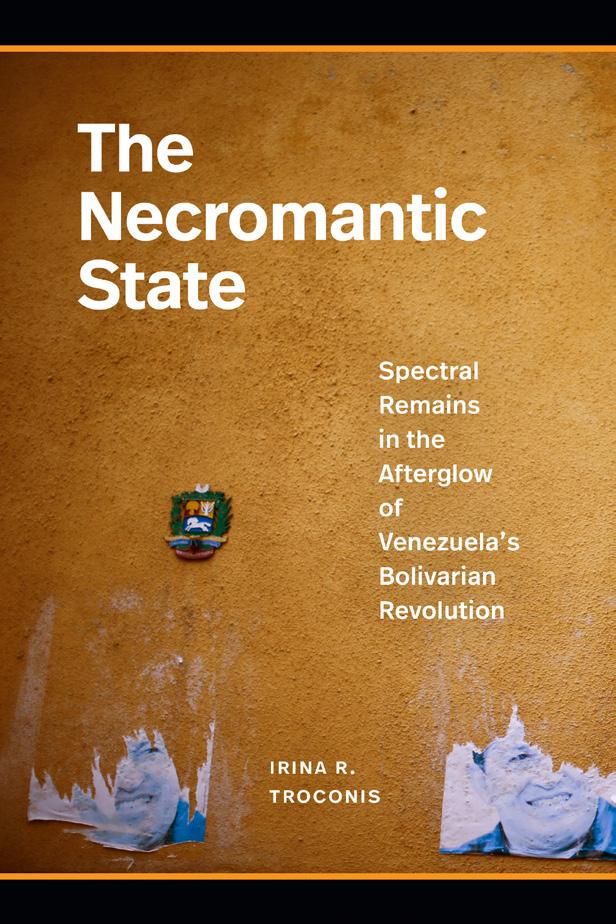
March 352 pages, 47 illustrations paper, 978-1-4780-3107-9 $29.95/£23.99 cloth, 978-1-4780-2682-2 $109.95/£91.00
Film and media studies/African studies
Contemporary African Screen Worlds brings together a new generation of African screen media scholars who explore and theorize the dynamic, interactive screen worlds that have arisen in contemporary Africa due to dramatic global changes in technology. Drawing on long-term fieldwork, extensive interviews, and specific case studies, the contributors bring to life the complex materialities and entanglements of film spectatorship, fandom, production, and circulation in Africa. They particularly attend to the interfaces among film audiences, actors, makers, platforms, and screens both small and large. Engaging with more than a dozen national contexts across the continent, the book reveals the diversity of African screen media practices and the creativity and agency of the people who passionately generate them, from film craftworkers in Nigeria and film students in Ghana to film fans in Rwanda and Burkina Faso. By focusing on the work of powerful platforms (such as Netflix and MTVShuga) and ordinary people (such as domestic workers watching Nollywood films in rural Kenya), this volume grapples with the effects and affects of digitization, mobile screens, media convergence, and the televisual turn in Africa.
Contributors Moradewun Adejunmobi, Añulika Agina, Alexander Bud, Lindiwe Dovey, Femi Eromosele, Pier Paolo Frassinelli, Alexandra Grieve, Jonathan Haynes, Joe Jackson, Alessandro Jedlowski, Dennis-Brook Prince Lotsu, Alison MacAulay, Elastus Mambwe, Asteway M. Woldemichael, Nedine Moonsamy, Elizabeth Olayiwola, Temitayo Olofinlua, Rashida Resario, Estrella Sendra, Robin Steedman, Michael W. Thomas, Stefanie Van de Peer, Solomon Waliaula
Lindiwe Dovey is Professor of Film and Screen Studies, SOAS University of London. Añulika Agina is Associate Professor of Media Studies at the Pan-Atlantic University Lagos. Michael W. Thomas is Lecturer in Film and Screen Studies, SOAS University of London.
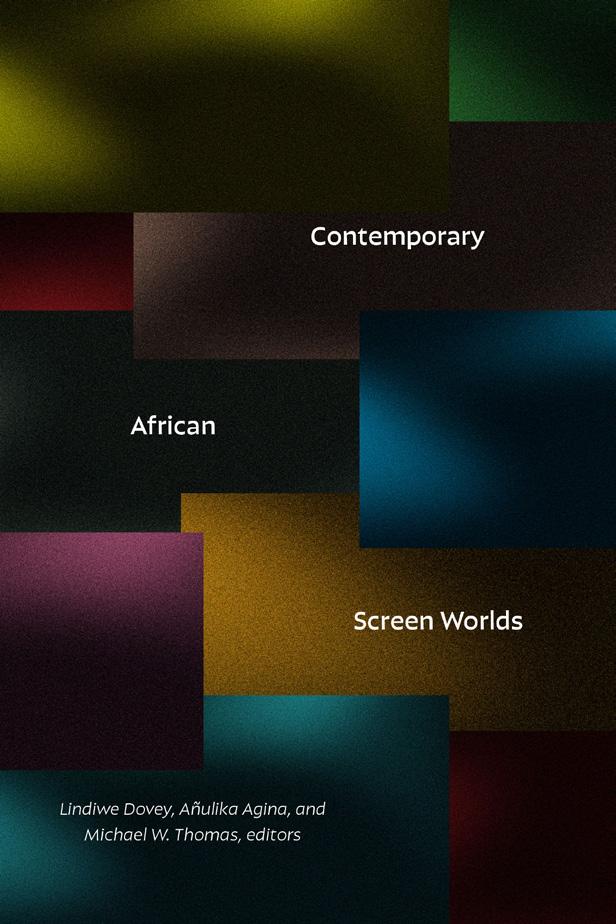
April 384 pages, 28 illustrations paper, 978-1-4780-3142-0 $29.95/£23.99 cloth, 978-1-4780-2820-8 $119.95/£99.00
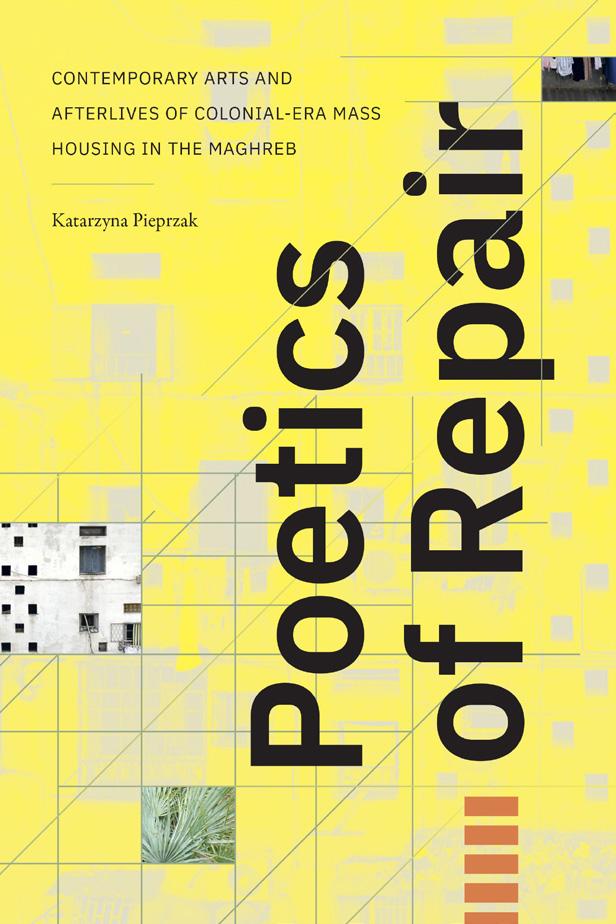
January 232 pages, 43 color illustrations paper, 978-1-4780-3128-4 $35.00/£27.99 cloth, 978-1-4780-2805-5 $145.00/£120.00
Contemporary Arts and Afterlives of Colonial-Era Mass Housing in the Maghreb
KATARZYNA PIEPRZAK
Today, most colonial-era modernist mass housing is seen as fundamentally broken: crumbling concrete spaces of social alienation and containment that fractured societies both then and now. In Poetics of Repair, Katarzyna Pieprzak examines how contemporary visual, literary, and performance art of the Maghreb has the potential to change the terms, histories, and imagined futures of mass housing in North Africa and France. Pieprzak dives deeply into contemporary art engagements with three mass housing sites that epitomize the French colonial geography of modernist architecture in the Maghreb. She identifies in this art what she names a transformative “poetics of repair”: a practice that conjoins, puts in relation, or simply brings closer together broken materials, separated people, and severed timelines. Reading art and its engagements with mass housing, Pieprzak argues, has the potential to unmoor established knowledge and rehearse the tensions and productive ambiguities inherent to practices of constitution and revision. She demonstrates that such a reading practice is a step toward a reparative epistemology for mass housing that turns sites of wreckage and alienation into sites of possible solidarities and new formulations of history and experience.
Katarzyna Pieprzak is Massachusetts Professor of Francophone Literature, French Language, and Comparative Literature at Williams College. She is the author of Imagined Museums: Art and Modernity in Postcolonial Morocco
History/African diaspora
June 264 pages, 30 illustrations paper, 978-1-4780-3192-5 $27.95/£21.99 cloth, 978-1-4780-2869-7 $104.95/£87.00
Geographies of Belonging between Africa and the Caribbean PHILIP JANZEN
In An Unformed Map, Philip Janzen traces the intellectual trajectories of Caribbean people who joined the British and French colonial administrations in Africa between 1890 and 1930. Caribbean administrators grew up in colonial societies, saw themselves as British and French, and tended to look down on Africans. Once in Africa, however, they were doubly marginalized—excluded by Europeans and unwelcome among Africans. This marginalization was then reproduced in colonial archives, where their lives appear only in fragments. Drawing on sources beyond the archives of empire, from dictionaries and language exams to a suitcase full of poems, Janzen considers how Caribbean administrators reckoned with the profound effects of assimilation, racism, and dislocation. As they learned African languages, formed relationships with African intellectuals, and engaged with African cultures and histories, they began to rethink their positions in the British and French empires. They also created new geographies of belonging across the Atlantic, foundations from which others imagined new political horizons. Ultimately, Janzen offers a model for reading across sources and writing history in the face of archival fragmentation.
THEORY IN FORMS
A series edited by Nancy Rose Hunt, Achille Mbembe, and Todd Meyers
Philip Janzen is Assistant Professor of History at the University of Florida.
Secularity and Ghana's Drum Wars
MARIAM GOSHADZE
For generations, the Ga community in Accra, Ghana, has enforced an annual city-wide ban on noise-making during an important religious festival. This “ban on drumming” became a point of conflict in the 1990s and 2000s between the Ga people and the newly popular Pentecostal/Charismatic churches, who refused to subdue their loud worship during the ban. Although the Ghanaian state constitutionally and institutionally grants superior status to Christianity and Islam, it ruled in favor of the Ga community, who emphasized their “cultural” rather than religious rights. In The Noise Silence Makes, Mariam Goshadze traces the history of noise regulation in Accra, showing how the Ga people have adopted the colonial mechanisms of noise control to counter Pentecostal/Charismatic dominance over Accra’s soundscape. Goshadze shows how the drumming ban represents a reversal of the top-down model of noise regulation and illuminates the reality of Ghanaian secularity, where the state unofficially collaborates with indigenous religious authorities to control sound. In so doing, Goshadze counters the tendency to push African “traditional religions” to the margins, demonstrating that they are instrumental players in contemporary African urbanity.
RELIGIOUS CULTURES OF AFRICAN AND AFRICAN DIASPORA PEOPLE
A series edited by Jacob K. Olupona, Dianne M. Stewart, and Terrence L. Johnson
Mariam Ghoshadze is Assistant Professor in the Study of Religion at Leipzig University.
African and Black studies/Queer theory/Visual culture
Afro-Indian Femininities and the Queer Limits of South African Blackness
JORDACHE A. ELLAPEN
In Indenture Aesthetics, Jordache A. Ellapen examines the visual and performance art practices of feminist, queer, femme, and gender-nonconforming Afro-Indian and South African black artists to understand the paradoxes of freedom in contemporary South Africa. Tracing the afterlife of apartheid-era racial categories and revisiting Bantu Stephen Biko’s Black Consciousness, Ellapen theorizes South African blackness through the Indian Ocean World, showing how the development of an Afro-Indian identity after generations of indentured labor and segregation troubles persistent racial hierarchies. Staging unexpected encounters between artists such as Sharlene Khan, Mohau Modisakeng, Lebohang Kganye, and Reshma Chhiba, he analyzes how their works challenge these racial categories to create new imaginaries of freedom. Situated in a context in which the authentic (hetero) normative black subject of the post-apartheid state is bracketed from other formulations of blackness, these artists' aesthetic practices, alongside those of other artists like Ellapen himself, disrupt desires for national belonging and catalyze alternative and transgressive politics and subjects. By rethinking the relationship between blackness, Afro-Indianness, and Africanness, Ellapen highlights the role of the aesthetic in crafting a blueprint for coalitional building across difference in contemporary South Africa.
Jordache A. Ellapen is Associate Professor in the Department of Black Studies at the University of Rochester and coeditor of we remember differently: Race, Memory, Imagination.
May 232 pages, 10 illustrations paper, 978-1-4780-3141-3 $26.95/£20.99 cloth, 978-1-4780-2819-2 $102.95/£85.00
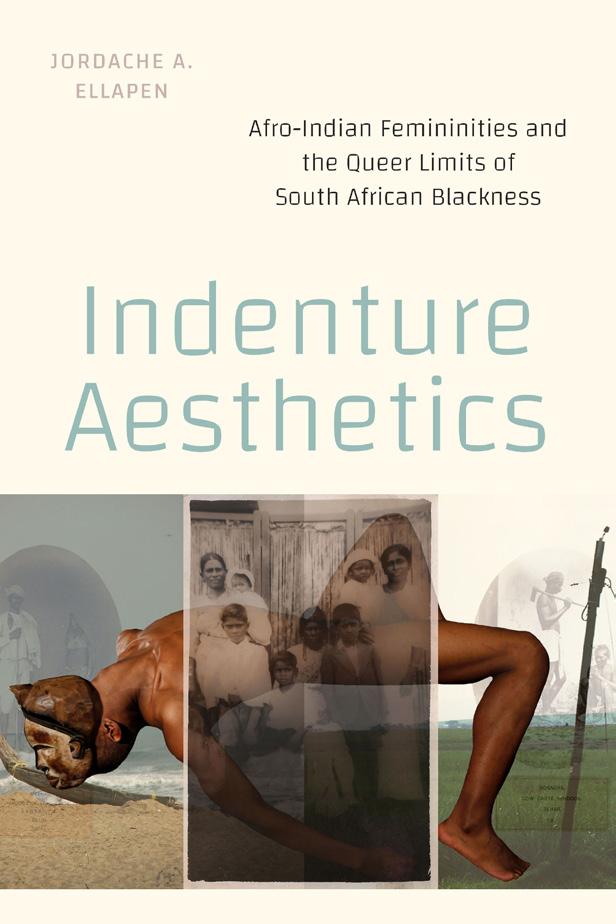
January 280 pages, 52 illustrations, including 34 in color paper, 978-1-4780-3134-5 $40.00/£32.00 cloth, 978-1-4780-2810-9 $145.00/£120.00
June 352 pages, 30 illustrations paper, 978-1-4780-3191-8 $29.95/£23.99 cloth, 978-1-4780-2868-0 $119.95/£99.00
Anthropology/South Asian studies/African studies
Afro-Asian Entanglements in Transcontinental Uganda
ANNEETH KAUR HUNDLE
In 1972, Ugandan president Idi Amin expelled close to 80,000 South Asians of Ugandan heritage from the country by dictatorial decree. In Insecurities of Expulsion, Anneeth Kaur Hundle revisits this weighty historical event, arguing that it is neither exceptional nor a parochial event, neither a result of primordial Afro-South Asian racial conflict nor an opening into a redemptive search for Afro-South Asian interracial solidarities. Hundle explores the aftermaths and continuous nature of the expulsion event, examining its effects and affects; the images, representations, and differentiated experiences and memories of the event; and the tense and ambivalent practices of citizenship, sovereignty, and governance that have emerged in the decades following the expulsion. She examines Afro-Asian entanglements in what she describes as transcontinental Uganda through the lenses of race, ethnicity, class, caste, religion, gender, and sexuality. Throughout, Hundle argues for stronger attention to knowledge production on global Afro-South Asian connections and the continued dynamics of community, citizenship, and identity on the African Continent as central to envisioning Black African self-determinism, racial reconciliation, and interracial pluralisms during shifting imperial, postcolonial, nationalist, and geopolitical times.
Anneeth Kaur Hundle is Associate Professor of Anthropology and Presidential Chair in Social Sciences to Advance Sikh Studies at the University of California, Irvine.
Medical anthropology/Psychiatry/Asian studies
May 216 pages, 6 illustrations paper, 978-1-4780-3174-1 $25.95/£19.99 cloth, 978-1-4780-2851-2 $99.95/£83.00
Mental Health and Biopolitical Paternalism in Contemporary China ZHIYING MA
In contemporary China, people diagnosed with serious mental illnesses have long been placed under the guardianship of their close relatives who decide on their hospitalization and treatment. Despite attempts at reforms to ensure patient rights, the 2013 Mental Health Law reinforced the family’s rights and responsibilities. In Between Families and Institutions, Zhiying Ma examines how ideological, institutional, and technological processes shape families’ complicated involvement in psychiatric care. Drawing on extensive ethnographic fieldwork in psychiatric hospitals, community mental health teams, social work centers, and family support groups as well as interviews with policymakers and activists, Ma maps the workings of what she calls “biopolitical paternalism”—a mode of governance that sees vulnerable individuals as sources of risk, frames risk management as the state’s paternalistic intervention, and shifts responsibilities for care and management onto families. Ma outlines the ethical tensions, intimate vulnerabilities in households, and health disparities across the population that biopolitical paternalism produces. By exploring these implications, Ma demonstrates the myriad ways biopower enables, inhibits, and transforms medical care in China.
Zhiying Ma is Assistant Professor in the Crown Family School of Social Work, Policy, and Practice at the University of Chicago.
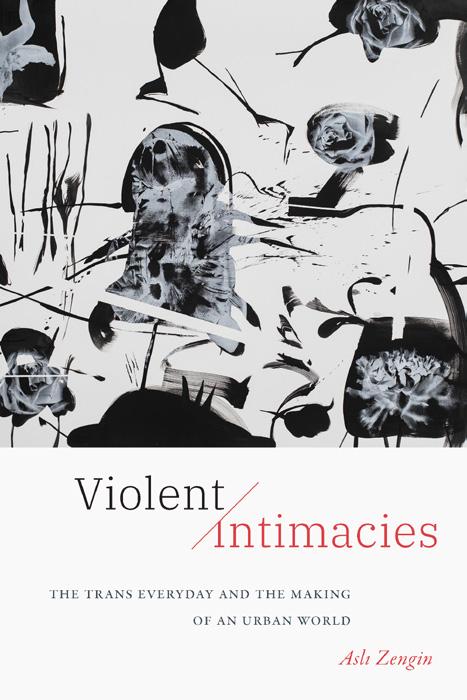
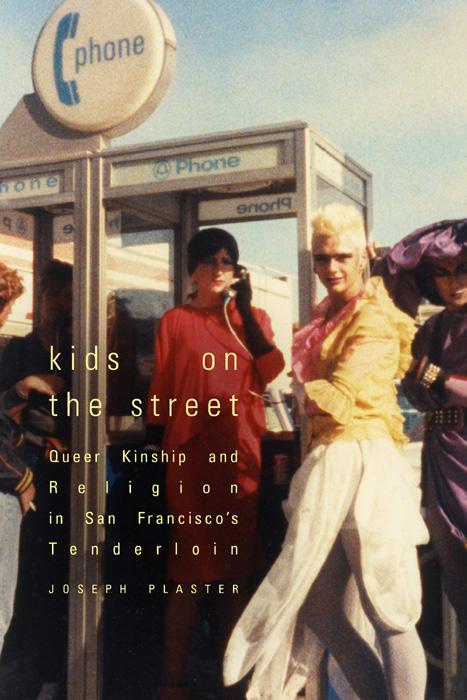

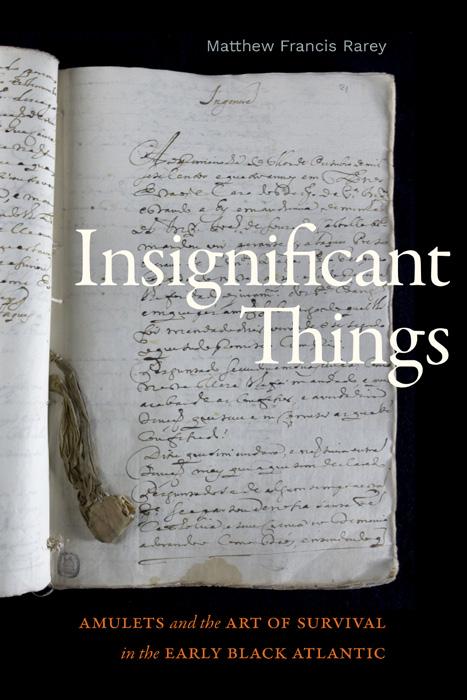

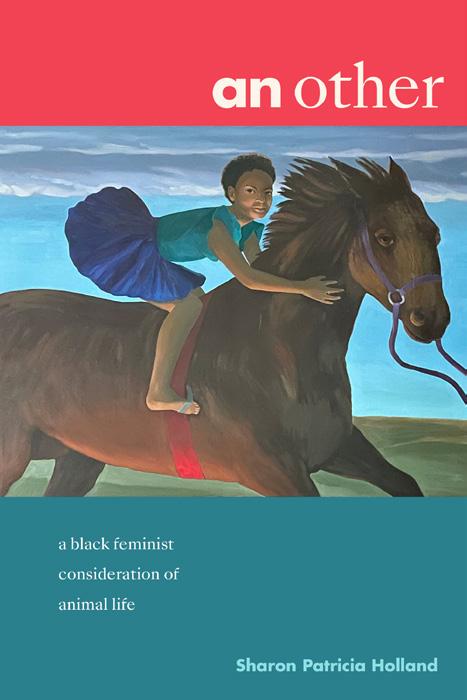

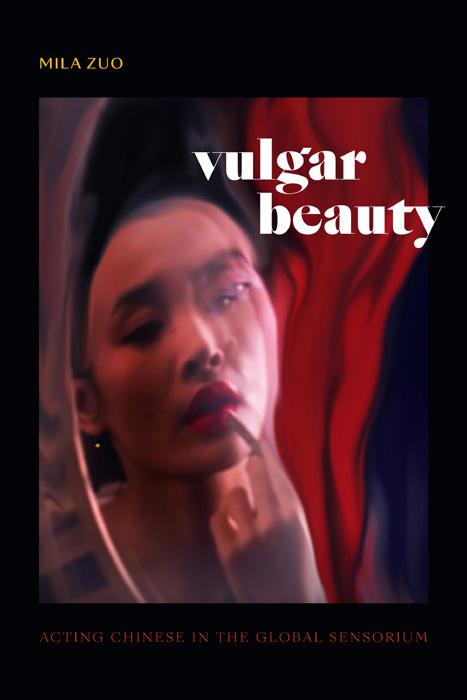
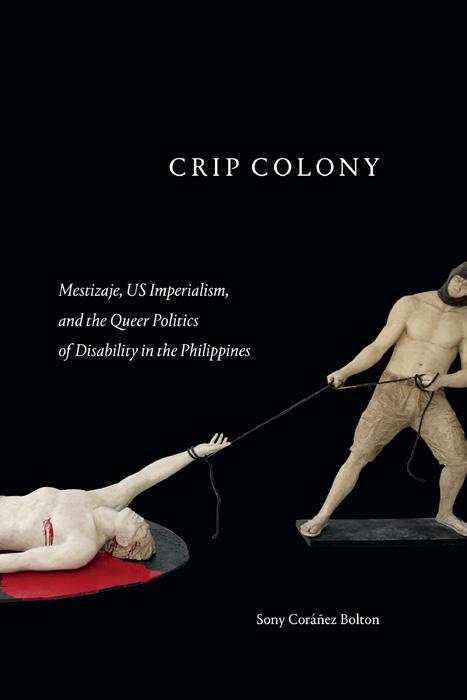
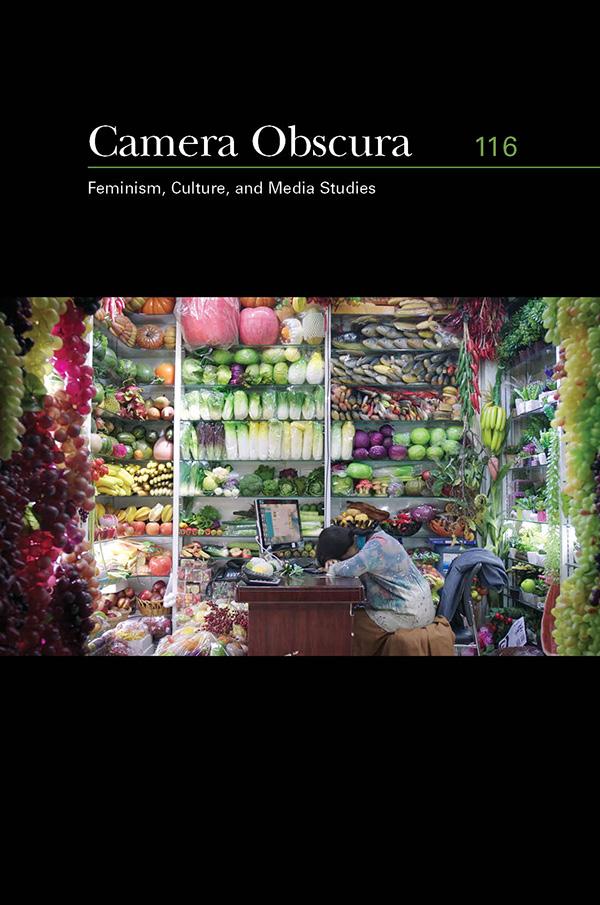

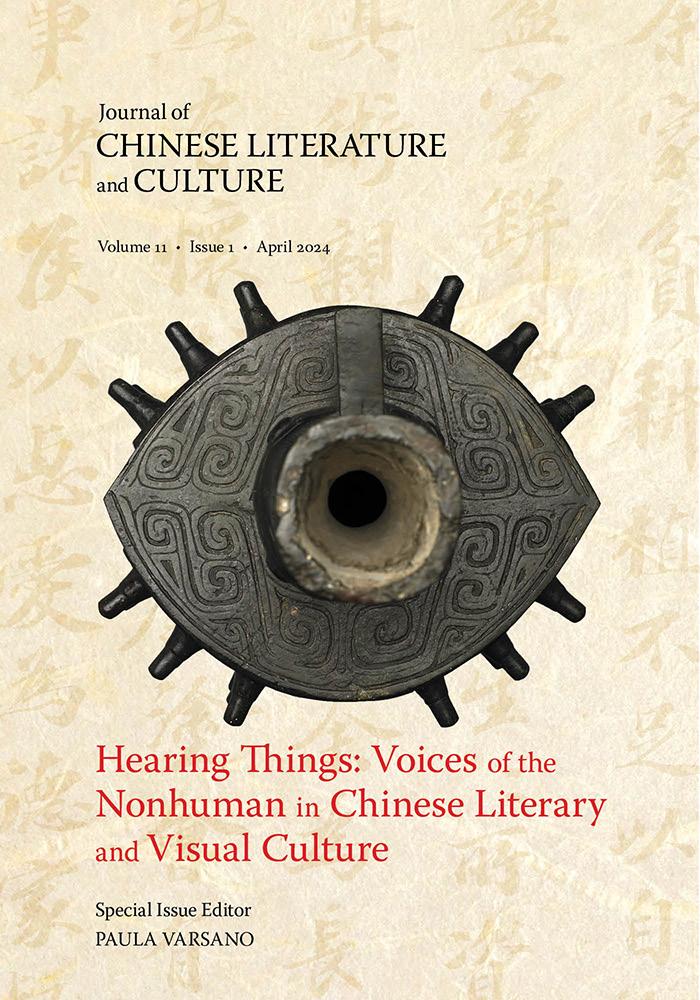
Agricultural History
Albert Way, editor
Quarterly
Official journal of the Agricultural History Society
American Literature
Priscilla Wald and Matthew Taylor, editors Quarterly
American Speech
A Quarterly of Linguistic Usage
Thomas Purnell , editor
Quarterly, plus annual supplement
Official journal of the American Dialect Society
Archives of Asian Art
Patricia Berger, editor
Two issues annually
boundary 2
an international journal of literature and culture
Arne De Boever, Leah
Feldman, R. A. Judy, Kara Keeling, and Christian Thorne, editors Quarterly
Camera Obscura
Feminism, Culture, and Media Studies
Bishnupriya Ghosh, Lalitha Gopalan, Lynne Joyrich, Homay King, Bliss Cua Lim, Constance Penley, Tess Takahashi, Patricia White, and Sharon Willis, editorial collective
Three issues annually
Common Knowledge
Jeffrey M. Perl , editor
Three issues annually
Comparative Literature
Michael Allan, editor Quarterly
Comparative Studies of South Asia, Africa and the Middle East
Manan Ahmed and Steven Pierce, editors
Three issues annually
Critical AI
Lauren M. E. Goodlad, editor
Two issues annually
Critical Times
Interventions in
Global Critical Theory
Ramsey McGlazer, editor
Three issues annually
Open access
Cultural Politics
Ryan Bishop, Mark Featherstone, Eva Haifa
Giraud, and Tania Roy, editors
Three issues annually
Demography
Sara R. Curran, editor
Six issues annually
Subscribe to Open Official journal of the Population Association of America
differences
A Journal of Feminist Cultural Studies
Elizabeth Weed, Ellen Rooney, Denise Davis, and Elizabeth A. Wilson, editors
Three issues annually
Duke Mathematical Journal
Hubert L. Bray and Alexander Kiselev, editors
Eighteen issues annually
Eighteenth-Century Life
Cedric D. Reverand II and Michael Edson, editors
Three issues annually
English Language Notes
Nan Goodman, editor
Two issues annually
Environmental Humanities
Dolly Jørgensen and Franklin Ginn, editors
Three issues annually
Open access
Ethnohistory
Denise I. Bossy and Robert C. Schwaller, editors Quarterly
Official journal of the American Society for Ethnohistory
Federal Sentencing Reporter
Douglas Berman and Steve Chanenson, editors Quarterly
French Historical Studies
Christine Haynes and Jennifer Ngaire Heuer, editors Quarterly
Official journal of the Society for French Historical Studies
Genre
Forms of Discourse and Culture
James Zeigler and Justin Sider, editors Three issues annually
GLQ
A Journal of Lesbian and Gay Studies
Chandan Reddy and C. Riley Snorton, editors Quarterly
Hispanic American Historical Review
Lauren H. Derby, Katherine M. Marino, Elizabeth O'Brien, Fernando Pérez-Montesinos, William Summerhill, and Kevin Terraciano, editors Quarterly
History of Political Economy
Kevin D. Hoover, editor Five issues annually, plus annual supplement
History of the Present
A Journal of Critical History
Joan Wallach Scott and Brian Connolly, editors Two issues annually
Illinois Journal of Mathematics
Steven Bradlow, editor Quarterly
Journal of Asian Studies
Joseph S. Alter, editor Quarterly
Official journal of the Association for Asian Studies
Journal of Chinese Literature and Culture
Xingpei Yuan and Zong-qi Cai, editors Two issues annually
Journal of Health Politics, Policy and Law
Jonathan Oberlander, editor Six issues annually
Journal of Korean Studies
Jisoo M. Kim, editor Two issues annually
Journal of Medieval and Early Modern Studies
David Aers and Sarah Beckwith, editors
Michael Cornett, managing editor
Three issues annually
Journal of Middle East Women’s Studies
Soha Bayoumi, editor Three issues annually
Official journal of the Association for Middle East Women’s Studies
Journal of Music Theory
Richard Cohn, editor
Two issues annually
Kyoto Journal of Mathematics
Osamu Fujino and Koji Fujiwara, editors Quarterly
Labor
Studies in Working-Class History
Julie Greene, editor Quarterly
Official journal of the Labor and Working-Class History Association
liquid blackness
journal of aesthetics and black studies
Alessandra Raengo and Lauren McLeod Cramer, editors
Two issues annually Open access
Meridians
feminism, race, transnationalism
Ginetta E. B. Candelario, editor
Two issues annually
the minnesota review
a journal of creative and critical writing
Janell Watson, editor Two issues annually
Modern Language Quarterly
A Journal of Literary History
Jeffrey Todd Knight, editor Quarterly
Monsoon
Journal of the Indian Ocean Rim
Rogaia Mustafa Abusharaf and Jeremy Prestholdt, editor
Two issues annually
New German Critique
An Interdisciplinary Journal of German Studies
Paul Fleming and Brad Prager, editors
Three issues annually
New Political Science
A Journal of Politics and Culture
Andy Scerri and Sarah M. Surak, editors Quarterly
Official journal of the Caucus for a Critical Political Science
Nka
Journal of Contemporary
African Art
Salah M. Hassan and
Chika Okeke-Agulu, editors Two issues annually
Notre Dame Journal of Formal Logic
Curtis Franks and Anand Pillay, editors Quarterly
Novel
A Forum on Fiction
Kevin McLaughlin, editor
Three issues annually
Official journal of the Society for Novel Studies
Pedagogy
Critical Approaches to
Teaching Literature, Language, Composition, and Culture
Jennifer L. Holberg and Marcy M. Taylor, editors Three issues annually
The Philosophical Review
Faculty of the Sage School of Philosophy at Cornell University, editors Quarterly
Poetics Today
International Journal for Theory and Analysis of Literature and Communication
Milette Shamir and Irene Tucker, editors Quarterly
positions asia critique
Suzy Kim, editor Quarterly
Prism
Theory and Modern Chinese Literature
Zong-qi Cai, editor Three issues annually
Public Culture
Arjun Appadurai, Vyjayanthi Rao, and Erica RoblesAnderson, editors Three issues annually
QTR: A Journal of Trans and Queer Studies in Religion
Joseph A. Marchal and Melissa M. Wilcox, editors Two issues annually Open access
Qui Parle
Critical Humanities and Social Sciences
Editorial Board of Qui Parle, editors Two issues annually
Radical History Review
RHR Editorial Collective, editors Three issues annually
Romanic Review
Elisabeth Ladenson, editor Three issues annually
Small Axe
A Caribbean Journal of Criticism
David Scott, editor Three issues annually
Social Text
Jonathan Beller, Amber Jamilla Musser, and David Sartorius, editors Quarterly
South Atlantic Quarterly Michael Hardt, editor Quarterly
Sungkyun Journal of East Asian Studies
Ross King, editor Two issues annually Open access
Theater
Tom Sellar, editor Three issues annually
Trans Asia Photography
Deepali Dewan, Yi Gu, and Thy Phu, editors Two issues annually Open access
TSQ: Transgender Studies Quarterly
Dylan McCarthy Blackston, micha cardenás, Ciara Cremin, Francisco J. Galarte, Abraham B. Weil, and Jules Gill-Peterson, editors Quarterly
Twentieth-Century Literature
Lee Zimmerman, editor Quarterly
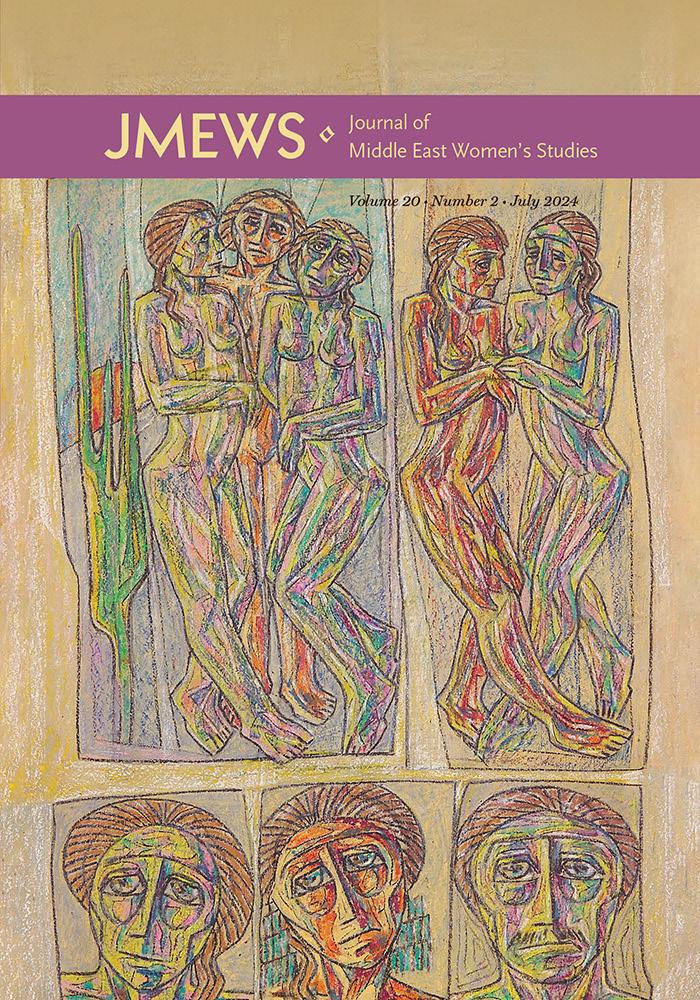
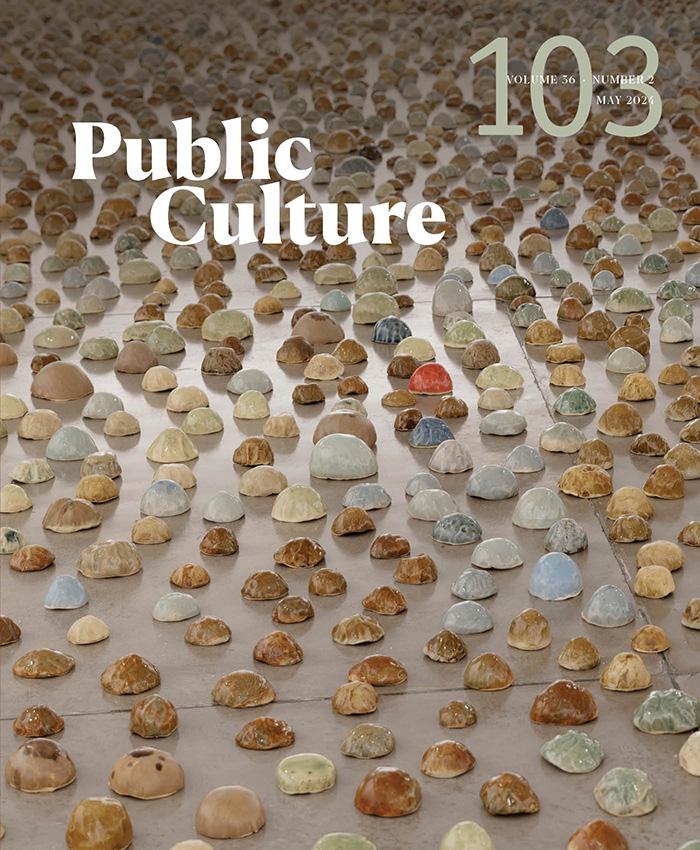
Duke University Press journals are available to bookstores through standing order; call 888.651.0122. For information on ordering individual subscriptions (including postage rates for subscriptions outside of the United States) or to order individual back issues, call 888.651.0122 (within the United States and Canada) or +1 919.688.5134, or email subscriptions@dukeupress.edu

2021, paper, $30.95/£23.99 978-1-4780-1771-4
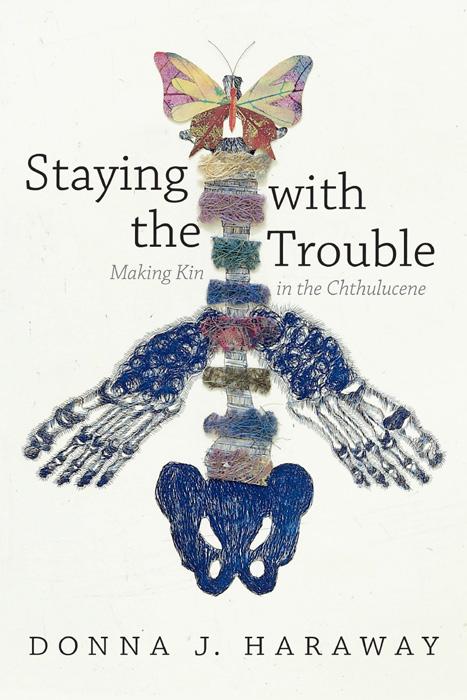
2016, paper, $28.95/£22.99 978-0-8223-6224-1

2023, paper, $27.95tr/£21.99 978-1-4780-1925-1

2017, paper, $28.95/£22.99 978-0-8223-6319-4

2017, paper, $24.95tr/£18.99 978-0-8223-6900-4
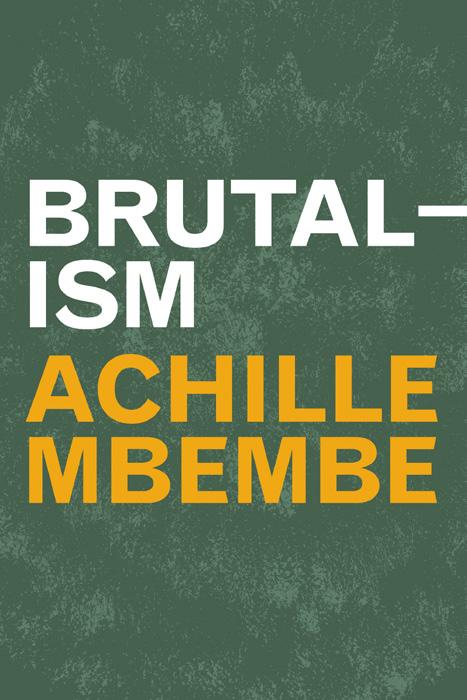
2024, paper, $25.95/£19.99 978-1-4780-2558-0
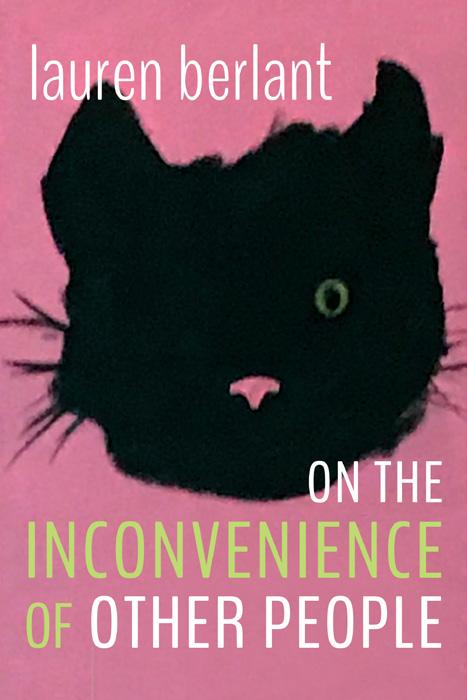
2022, paper, $25.95/£19.99 978-1-4780-1845-2
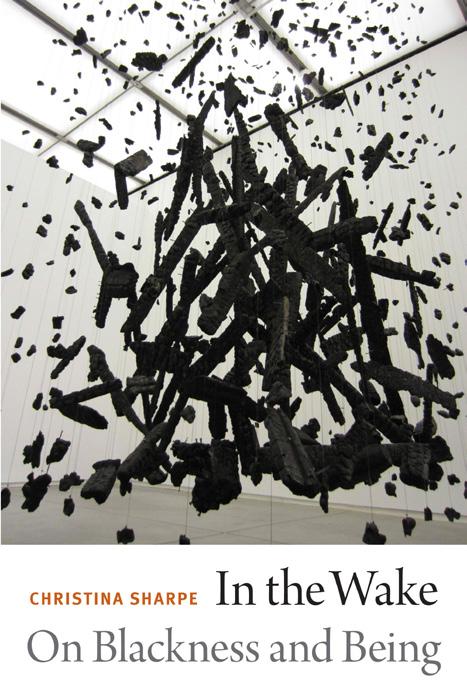
2016, paper, $25.95tr/£19.99 978-0-8223-6294-4
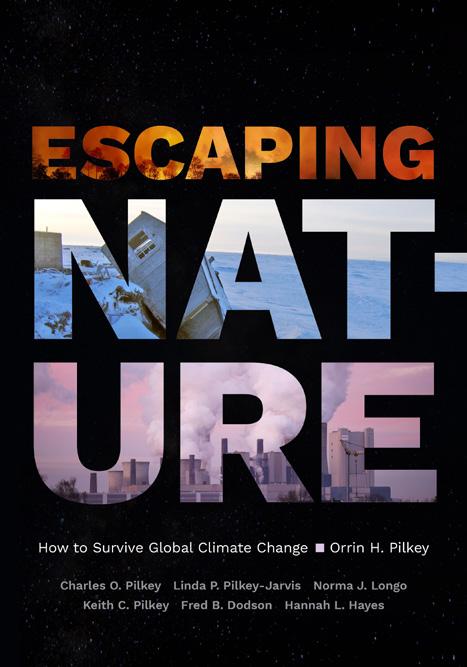
2024, paper, $28.95tr/£22.99 978-1-4780-2544-3

2011, paper, $26.95/£20.99 978-0-8223-5111-5
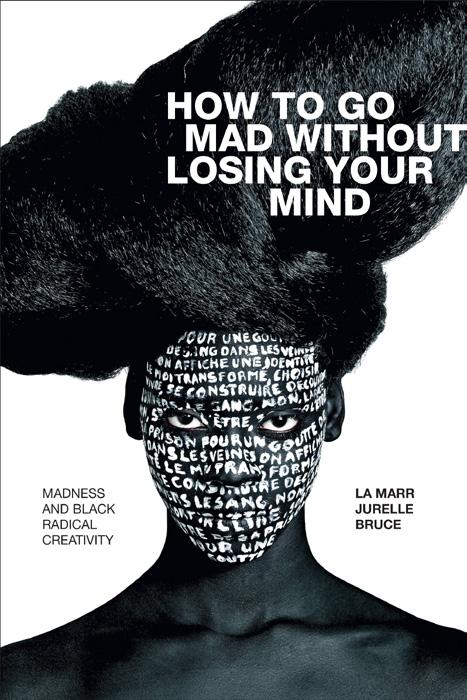
2021, paper, $29.95/£23.99 978-1-4780-1087-6

2021, paper, $25.95/£19.99 978-1-4780-1413-3
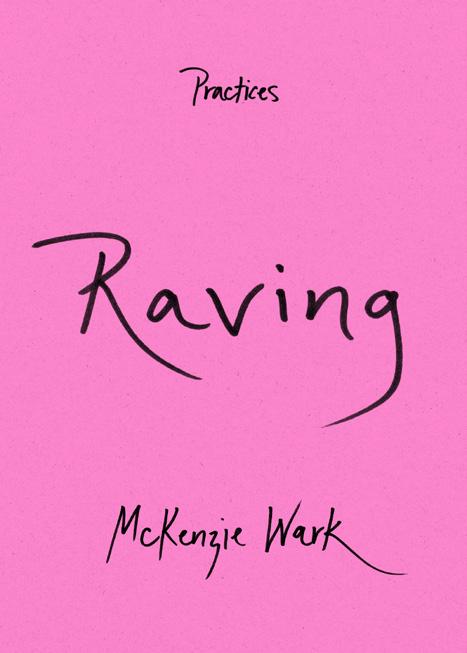
2023, paper, $15.95tr/£12.99 978-1-4780-1938-1

2024, paper, $26.95tr/£20.99 978-1-4780-2559-7
Remembering Fredric Jameson 1934-2024
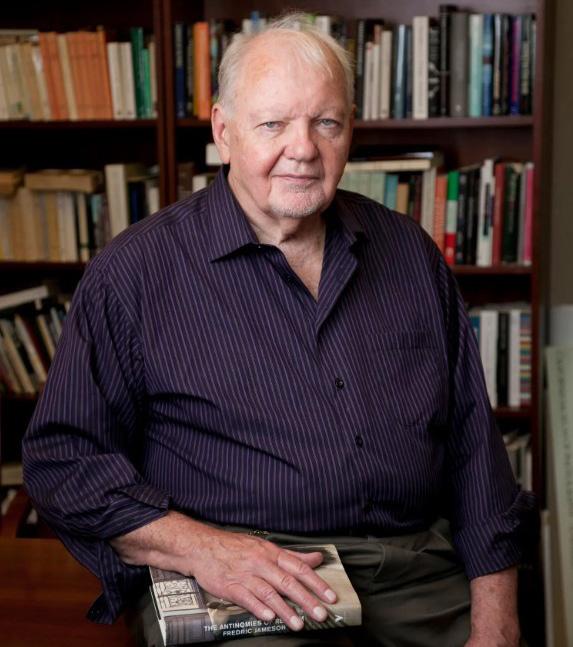

2023, paper, $19.95tr/£15.99 978-1-4780-2551-1

2023, paper, $26.95tr/£20.99 978-1-4780-2548-1
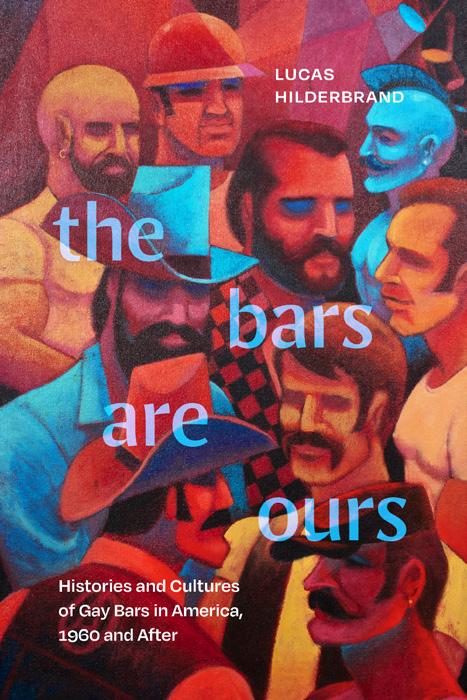
2023, paper, $32.95tr/£25.99 978-1-4780-2495-8
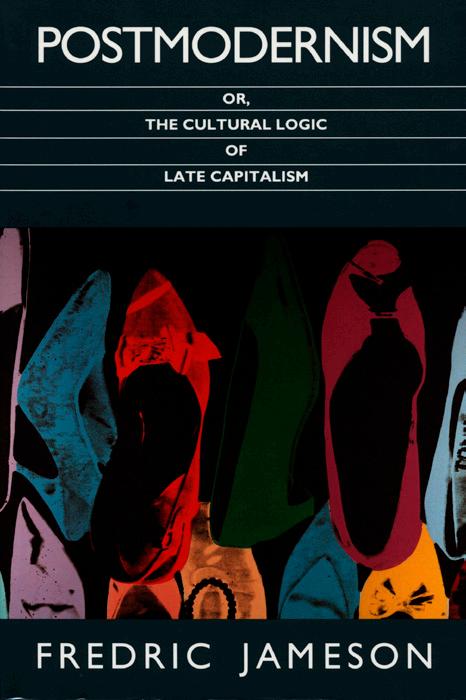
1992, paper, $30.95tr/£23.99 978-0-8223-1090-7
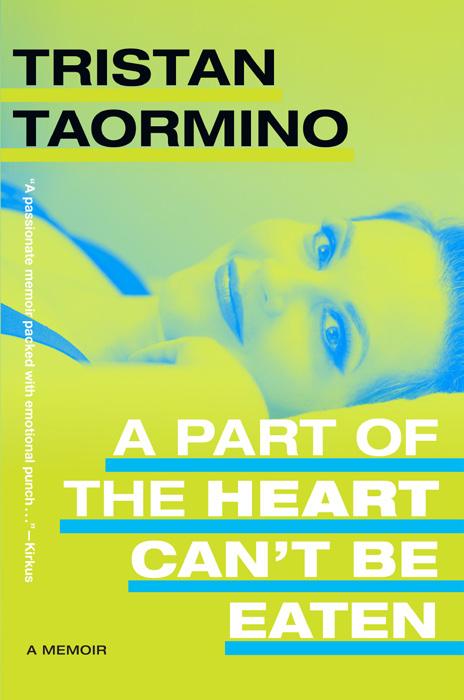
2023, cloth, $29.95tr/£23.99 978-1-4780-2022-6
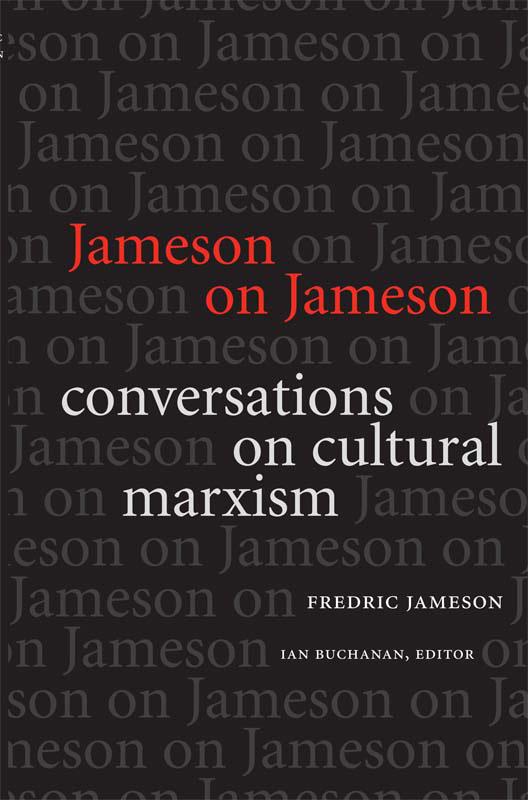
2007, paper, $27.95/£21.99 978-0-8223-4109-3
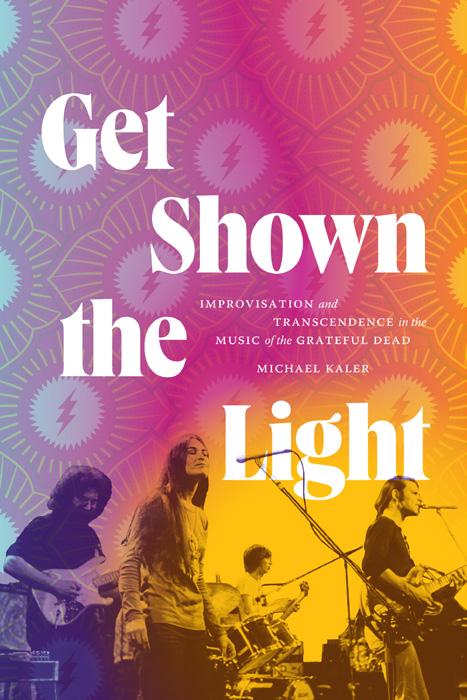
2023, paper, $28.95tr/£22.99 978-1-4780-2497-2
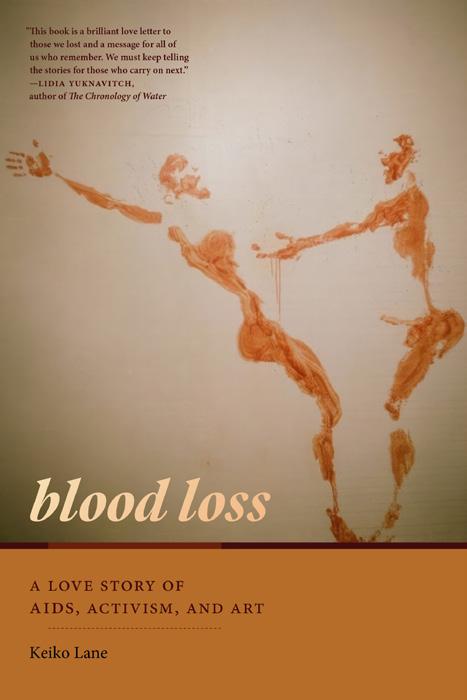
2024, paper, $26.95tr/£20.99 978-1-4780-3079-9
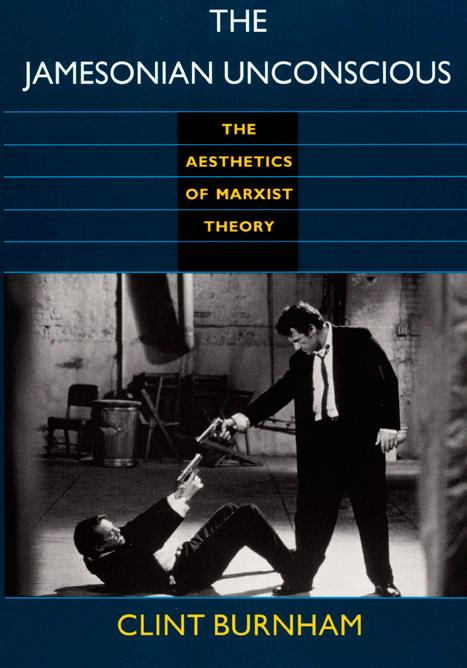
1995, paper, $27.95/£21.99 978-0-8223-1613-8
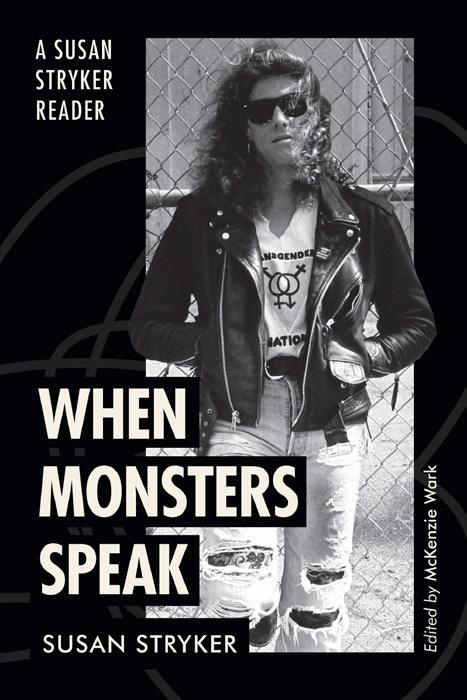
2024, paper, $25.95tr/£19.99 978-1-4780-3047-8

2024, paper, $25.95/£19.99 978-1-4780-3066-9
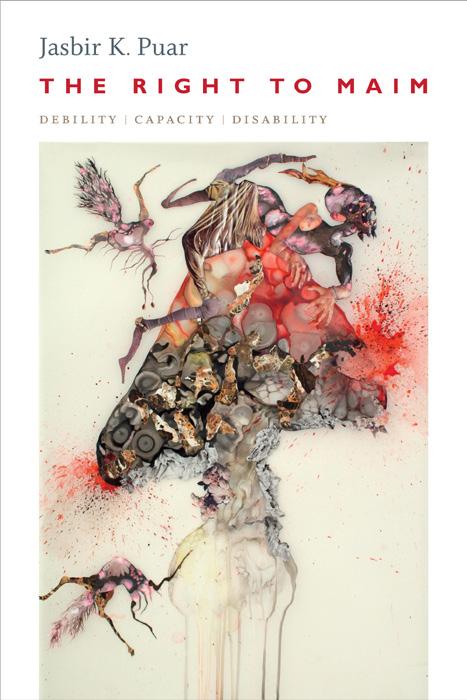
2017, paper, $27.95/£21.99 978-0-8223-6918-9
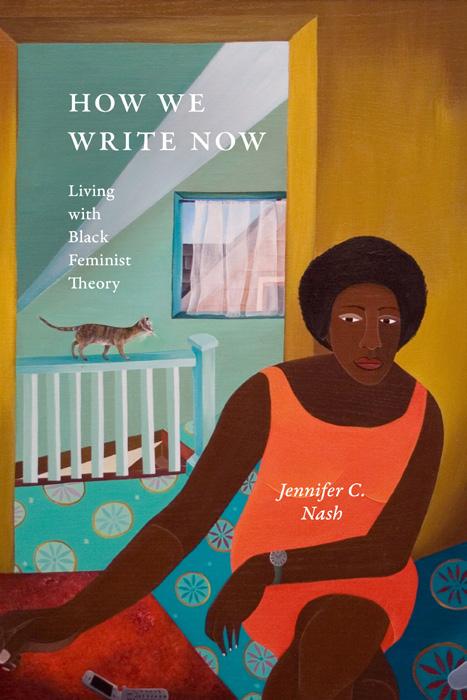
2024, paper, $24.95/£18.99 978-1-4780-3046-1

2024, paper, $28.95tr/£22.99 978-1-4780-3055-3

2022, paper, $24.95/£18.99 978-1-4780-2500-9

2024, paper, $23.95tr/£17.99 978-1-4780-3109-3
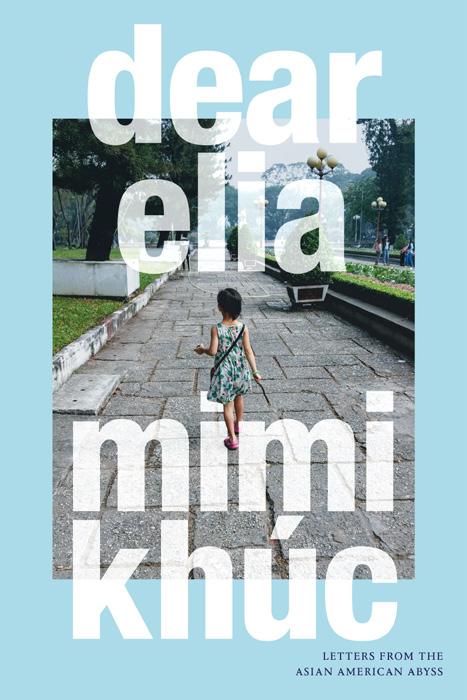
2024, paper, $27.95tr/£21.99 978-1-4780-2567-2
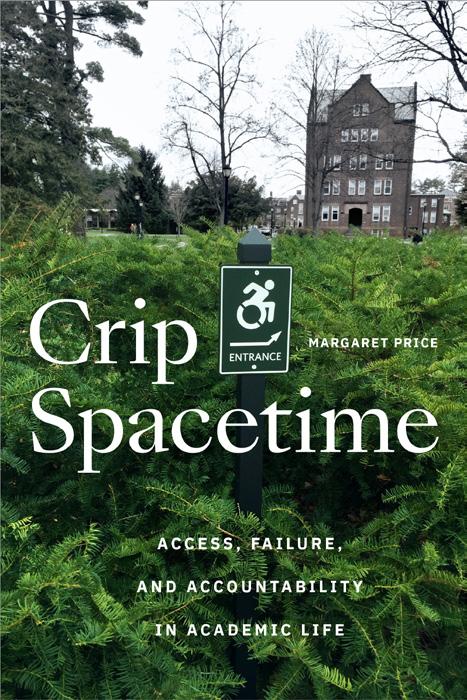
2024, paper, $26.95tr/£20.99 978-1-4780-3037-9

2024, cloth, $29.95tr/£23.99 978-1-4780-2671-6

2024, paper, $31.95tr/£24.99 978-1-4780-3062-1

2024, paper, $26.95/£20.99 978-1-4780-3075-1
All prices and discounts are subject to change without notice. Books are short discount except when tr, indicating trade discount, follows the price.
No authorization is required. Books in saleable condition will be credited at full invoice price if returned within two years of invoice date. Invoice information is required. Books returned beyond this time period or those returned without invoice information will be credited at 50% of list price. Permanently defaced books, for example, those marred by non-removable labels, do not meet the necessary criteria and will not be accepted. Books received in damaged or defective condition must be returned within 90 days, and the reason for the return must be clearly stated in order to receive full credit.
Please Send Returns To:
Duke University Press Warehouse 120 Golden Drive Durham, NC 27705
Orders and Inquiries
For orders: phone 888-651-0122 fax 888-651-0124
8:30–4:30 Eastern Time orders@dukeupress.edu
For editorial and other matters: phone 919-687-3600
8:30–5:00 Eastern Time
Libraries
Libraries and institutions will be billed on receipt of official purchase order.
For exam or desk copies, place your request through the book or journal issue’s page on our website.
Review Copies
Book review editors and members of the media can request review copies at dukeu.press/ReviewCopy or by emailing bpublicity@dukeupress.edu.
International Licensing Inquiries
booktranslations@dukeupress.edu
Mailing Opt Out
To opt out of mailings from Duke University Press, contact orders@dukeupress.edu
Sales Representation
UNITED STATES
Columbia University Press Sales Consortium
Catherine Hobbs, Sales Consortium Manager phone 804-690-8529 ch2714@columbia.edu
OTHER INQUIRIES
Jennifer Schaper Sales Manager jennifer.schaper@duke.edu
index
Abourahme, Nasser 19
Agina, Añulika 47
Amador, Emma 45
Arvas, Abdulhamit 37
Atanasoski, Neda 31
Auyero, Javier 46
Berger, Stefan 27
Berman, Douglas 24
Berry, Maya J. 45
Biancorosso, Giorgio 39
Billé, Franck 30
Blas, Zach 31
Blaser, Mario 44
Boswell, Phoebe 8
Brumfield, William Craft 15
Brzezinski, Max 14
Candelario, Ginetta E. B. 26
Chanenson, Steven 24
Chaudhuri, Soma 3
Choi, Vivian Y. 34
Climenhaga, Lily 28
Cox, Jessie 13
Dávila, Arlene 13
Deb, Basuli 26
de Graaf, Jan Arend 27
Dixon, Patrick 27
Dovey, Lindiwe 47
Dubois, Laurent 8
Elias, Amy J. 12
Ellapen, Jordache A. 49
Elyachar, Julia 36
Eng, David L. 17
Enwezor, Okwui 10, 11
Fignolé, Jean-Claude 8
Fink, Leon 27
Fowler, Caroline 16
Gainty, Caitjan 41
Gil'Adí, Maia 43
Glover, Kaiama L. 8
Goldman, Loren 25
Goshadze, Mariam 49
Guillermoprieto, Alma 2
Gupta, Akhil 35
Gupta, Atreyee 11
Gutierrez, Kathleen Cruz 33
Harding, Sandra 33
Hartman, Saidiya 8
Ho, Michelle H. S. 38
Hoffman, Amy 1
Huffer, Lynne 9
Hundle, Anneeth Kaur 50
Husain, Atiya 21
Janzen, Philip 48
Jazeel, Tariq 28
Jue, Melody 31
Kaur, Ravinder 25
Kim, Han Sang 26
Kim, Jina B. 23
Kratz, Corinne A. 39
Kushner, Tony 1
Lennon, Myles 29
Lesser, Jeffrey 42
Lomax, Tamura 4
Luibhéid, Eithne 18
Ma, Zhiying 50
Mahdavi, Pardis 6
Mankekar, Purnima 35
Mansoor, Jaleh 16
Marso, Lori Jo 22
Massumi, Brian 19
Meyers, Todd 41
Muñoz-Arbeláez, Santiago 46
Munster, Anna 32
Nading, Alex M. 42
Oliveira, Janaína 8
Ortega, Mariana 23
Pandey, Gyanendra 36
Parvin, Nassim 31
Patashnik, Eric M. 27
Perez, Justin 22
Pickens, Therí Alyce 4
Pickering, Andrew 29
Pieprzak, Katarzyna 48
Pierce, Joseph M. 8
Ramirez, Yasmin 13
restrepo rhodes, heidi andrea 44
Rhee, Jennifer 31
Rivera Garza, Cristina 8
Rodriguez Medina, Leandro 33
Roper, Danielle M. 43
Scerri, Andrew J. 24
Scott, Joel 7
Sellar, Tom 28
CANADA
Lexa Publishers’ Representatives
Mical Moser phone 718-781-2770 micalmoser@me.com
Fulfillment and Distribution
University of Toronto Press
Distribution Division 5201 Dufferin Street
Toronto, ON M3H 5T8
Tel: 416-667-7791
Fax: 416-667-7832
Toll Free: 1-800-565-9523
Toll Free Fax: 1-800-221-9985 utpbooks@utpress.utoronto.ca
ALL OTHER INTERNATIONAL SALES AND DISTRIBUTION
Combined Academic Publishers, Ltd. (CAP)
phone 44 (0) 1423 526350 combinedacademic.co.uk enquiries@combinedacademic.co.uk (Books are stocked in the UK and are available at sterling prices.)
Servián, Sofía 46
Sharpe, Christina 8
Shelford, April 25
Smith, Crystal Simone 5
Smith, Jen Rose 20
Smith, Maya Angela 14
Smith, Terry 10
Soppelsa, Peter S. 25
Stengers, Isabelle 35
Surak, Sarah M. 24
Tausig, Benjamin 38
Thomas, Michael W. 47
Tomba, Massimiliano 25
Troconis, Irina R. 47
Vaid, Jyotsna 1
Vaid, Urvashi 1
Vercauteren, Lena 28
Ward, Jane 3
Weinstein, Barbara 25
Weisenfeld, Gennifer 40
Weiss, Peter 7
Western, Tom 28
Whitt, Sarah A. 21
Wiener, Margaret J. 35
Wilson, Rob 34
Wong, Alvin K. 37
Yi, Sohoon 26
Yoon, Hyaesin 32
Zeiderman, Austin 30
Zurn, Perry 18
